Selected works 2021 - 2024
A B A B I
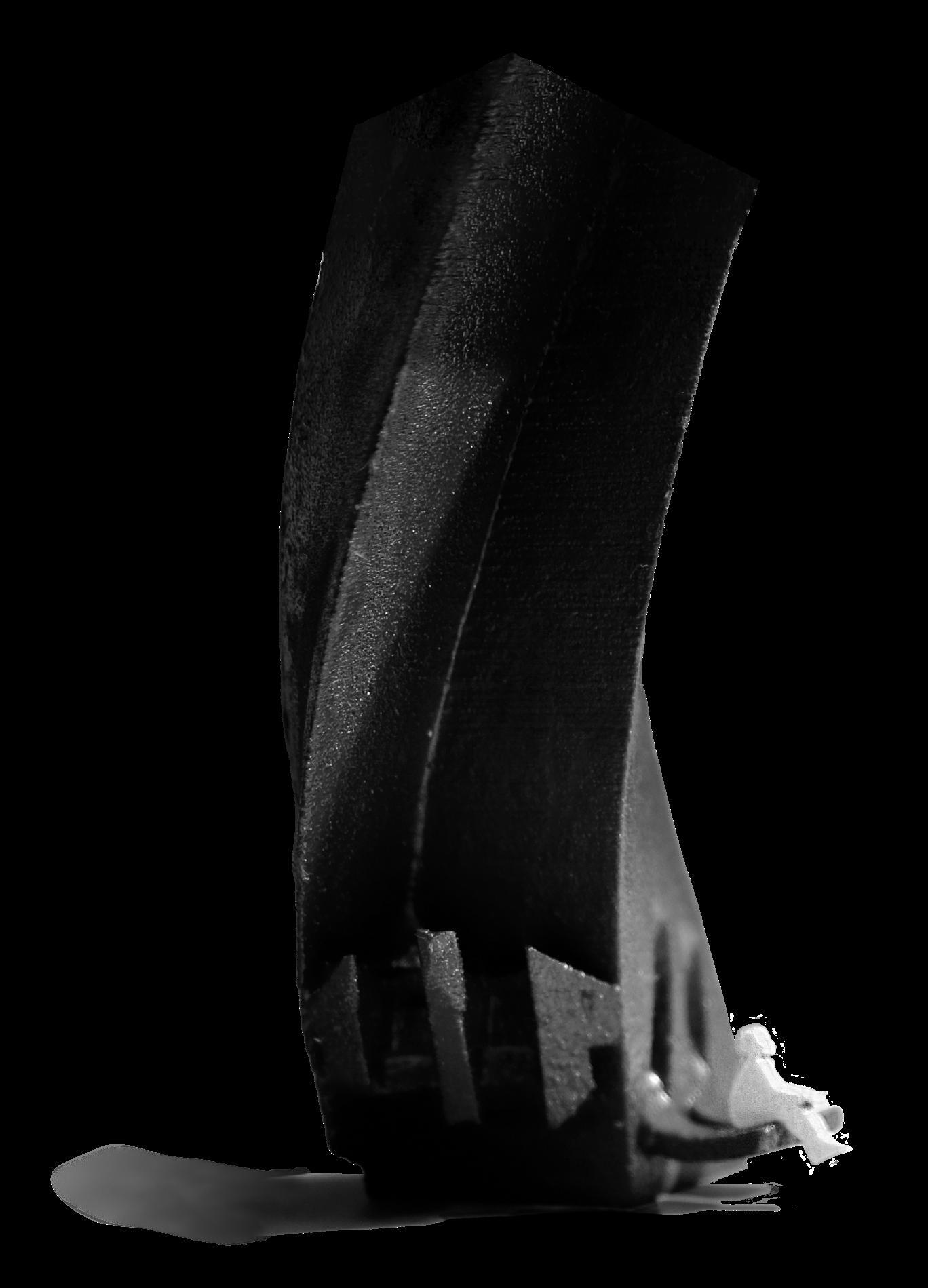

Selected works 2021 - 2024
A B A B I

+966506628560 - Abdullaharch18@gmail.com - Linkedin: Abdullah Hababi
University College London, The Bartlett School of Architecture
Masters of Architecture in Urban Design
University of Toronto, John H. Daniels Faculty of Architecture, Landscape and Design
Honours Bachelor of Arts with high distinction in Architectural studies (Specialist in technology of architecture, landscape and urbanism)
Deans List Scholar 2020 - 2021, 2021-2022, 2022-2023
Cumulative GPA: 3.78/4.0
International Baccalaureate Program High School Diploma
British International school of Jeddah
Architect and Urban Design Trainee (Intern)
- Worked with the Design & Development team to develop Design Guidelines for major urban development projects to help guide future development projects within Jeddah.
- Created and curated a comprehensive presentation for a major infrastructural project, effectively conveying design concepts and visual elements to the client.
- Gained valuable experience in researching and integrating Hejazi local cultural and architectural elements to enhance the authenticity and appropriateness of design guidelines.
Spatial Planner and Interior Designer (Intern)
London, UK 2023 - 2024
Toronto, Canada
2019 - 2023
Jeddah, Saudi Arabia
2006 - 2019
Jeddah, Saudi Arabia
July 2023 - September 2023
- Developed client relationship management skills based on their requirements, experiences, knowledge, and cultural backgrounds.
- Gained proficiency in Integrating Client Budget into spacial planning, design, and functionality.
- Created multiple suitable options of spaces that provide function for the interior ideas of clients by bringing their ideas to life visually.
Architectural Designer (Intern)
- Provided multiple design solutions for private beach house facades.
- Conceptualized a harmonious landscape fit for the tropical aesthetic requirements of the Private beach house residence.
Jeddah, Saudi Arabia
May 2022 - June 2022
Jeddah, Saudi Arabia
July 2021 - August 2021
English
Arabic
Spanish
3D Printing
Laser cutting
CNC machine operator
Lidar Scanning
Photography
Model making
3D scanning
Woodworking
Data and site Analysis
Presentation Curation
Research
Visual Communication
Communication
Guideline Consulting
Leadership
ML Data Analysis
SOFTWARE
Rhino 3D
Grasshopper
AutoCAD
Adobe Illustrator
Adobe Photoshop
Adobe Lightroom
Adobe InDesign
Adobe After Effects
Adobe Premiere Pro
Sketchup
V-RAY
Lumion
Twinmotion
Metashape
Cloud Compare
QGIS

UNIVERSITY OF TORONTO STUDENT STUDY CENTER
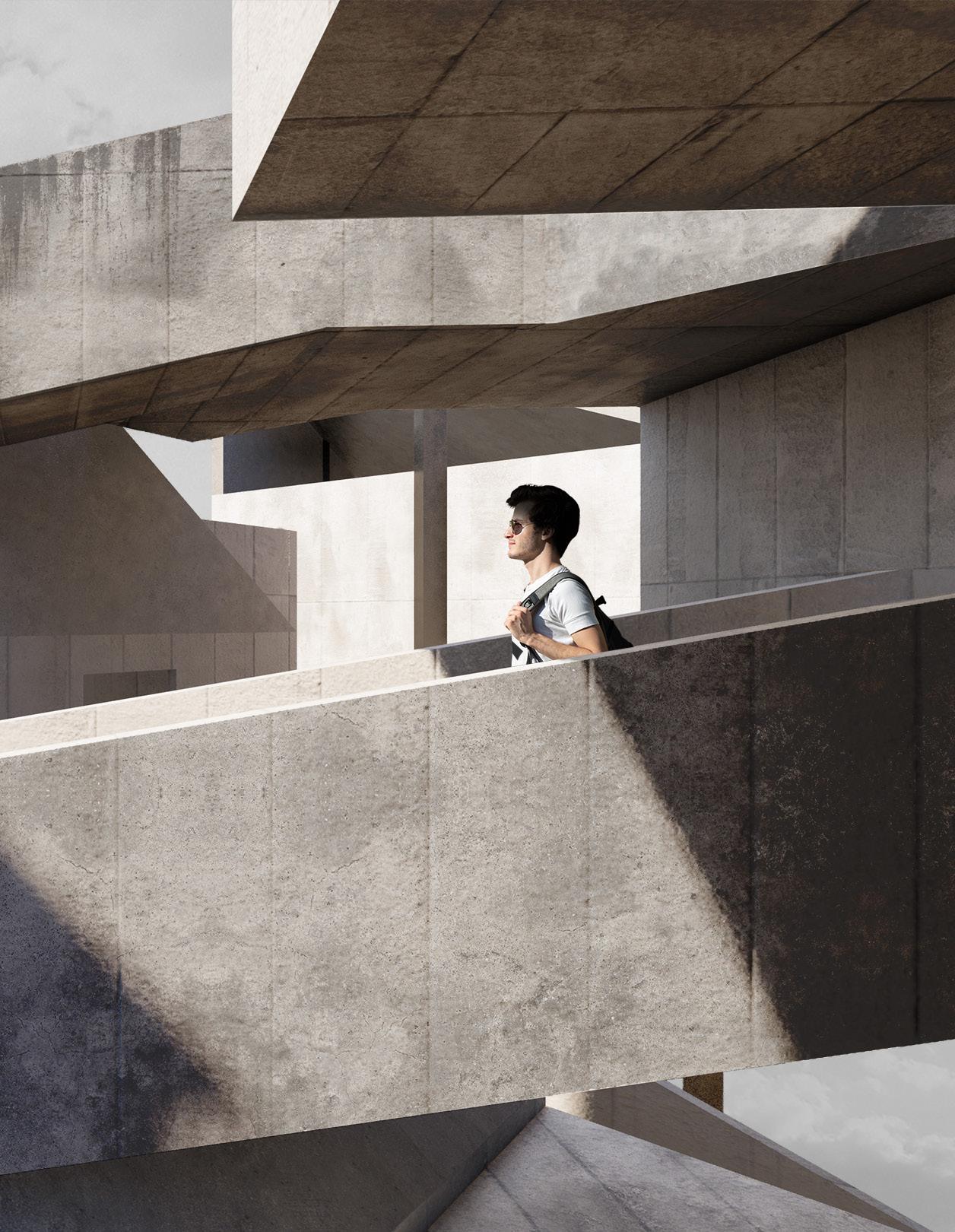
Year: 2021 Location: Toronto
Intertwined is defined as the connection of two or more objects closely with one another. The word consequentially functions as the driving force behind the formal and design elements of this university of Toronto study center. As a result, this experience of a study center that is closely connected through the curated binding of the different components of the structure, such as the room massings, ramps, and flat platforms, was created. The users experience the center as a space of opportunity where they can traverse in different and multiple directions similar to that of an interconnected labyrinth. The center takes into consideration it’s surroundings, context and location as room sizes, room placements, and window openings were based on the view and direction of the large varsity track northeast of the site and the view of the greenery and trees at St. Hilda’s college south east of the site.
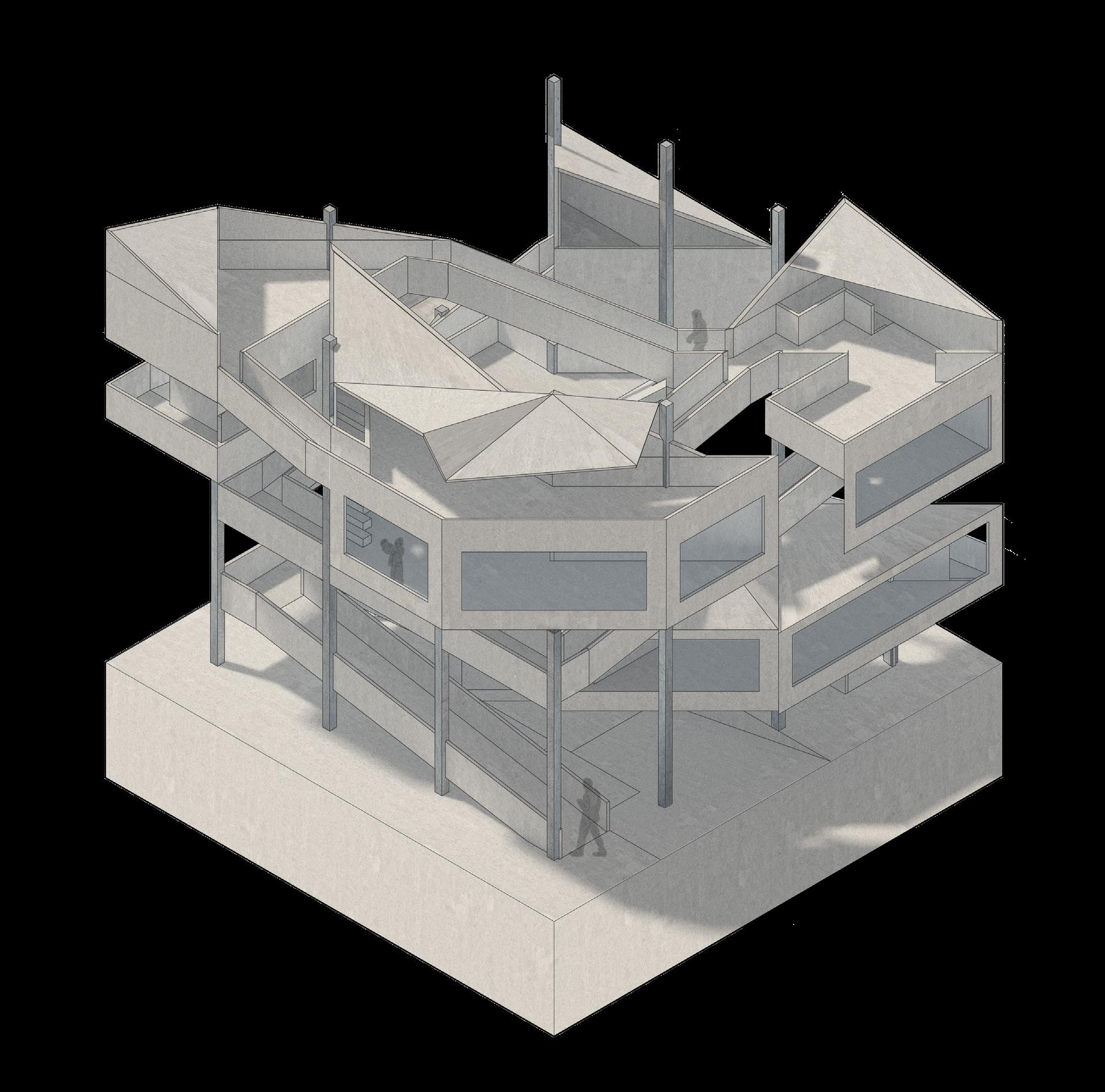
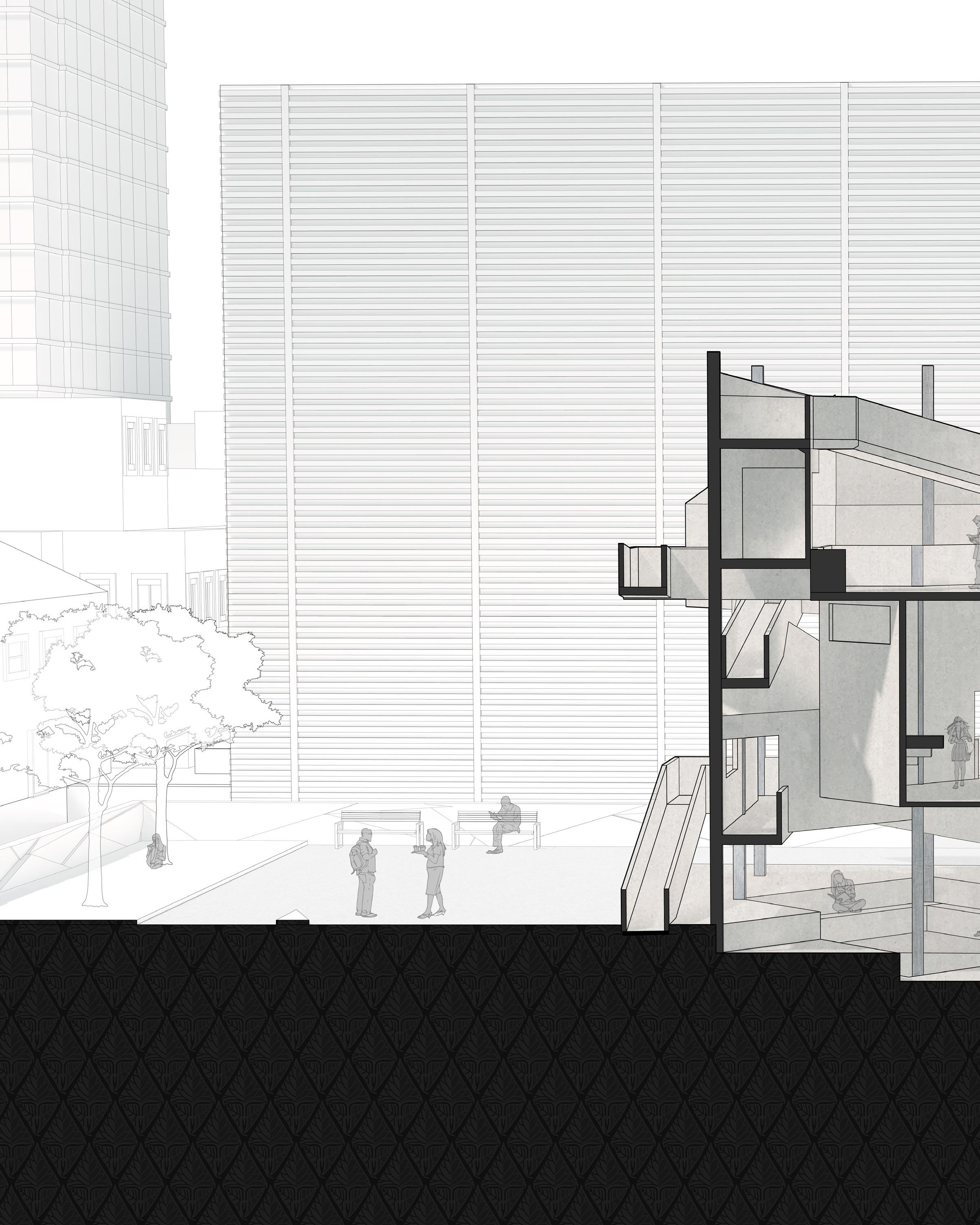
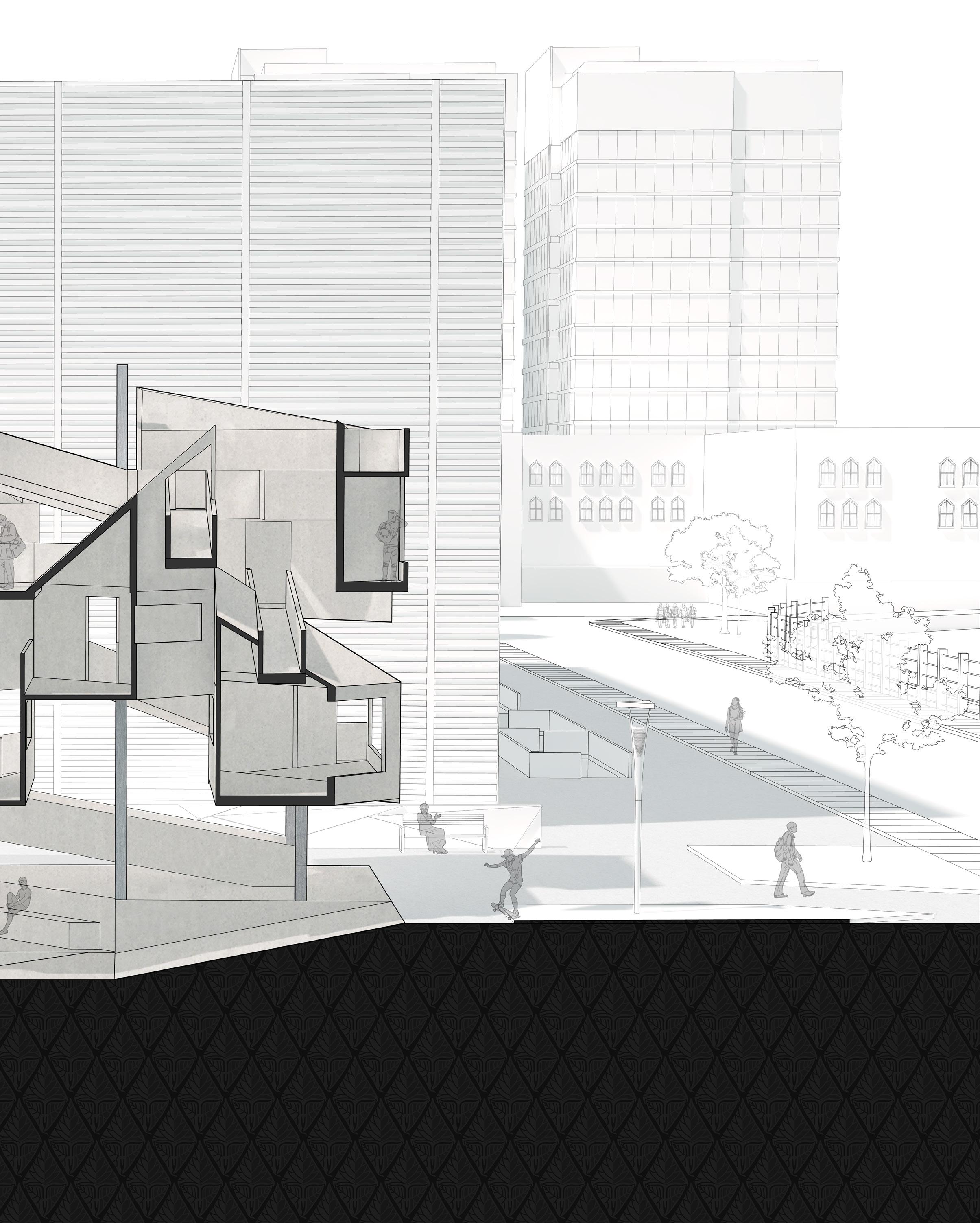
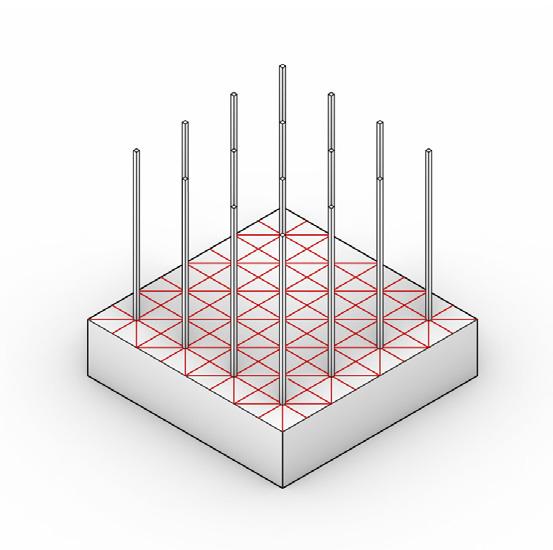
Step 1: Grid system on base created
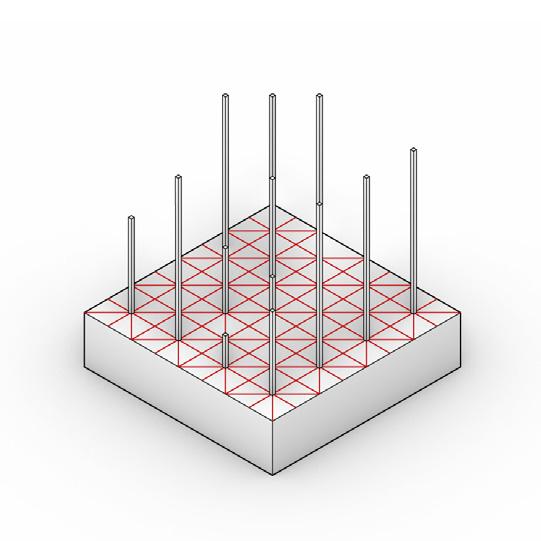
Step 2: Column heights adjusted
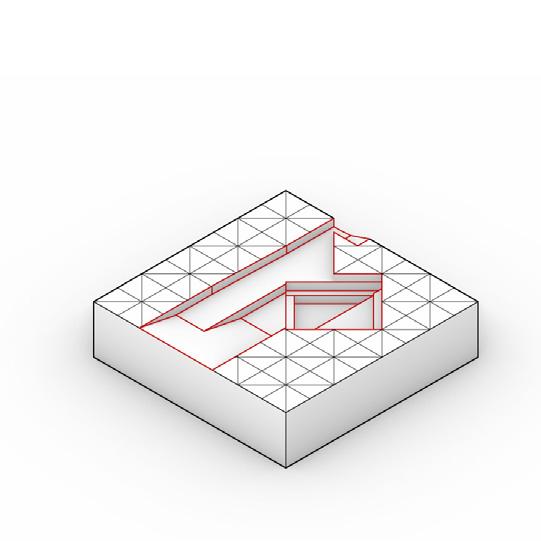
Step 3: Underground seating area carved using grid system
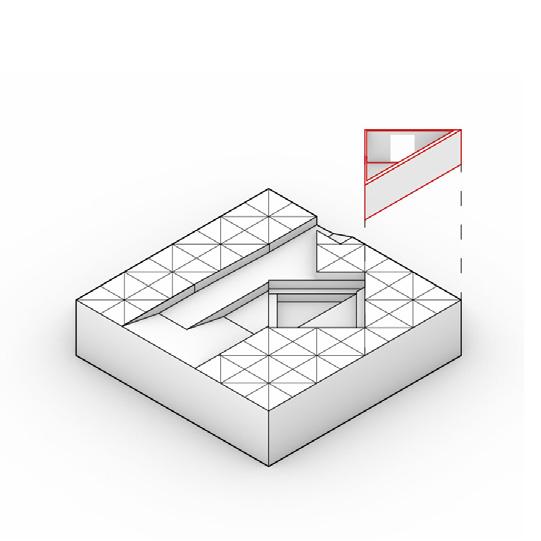
Step 4: Room massing extruded using grid system polygons
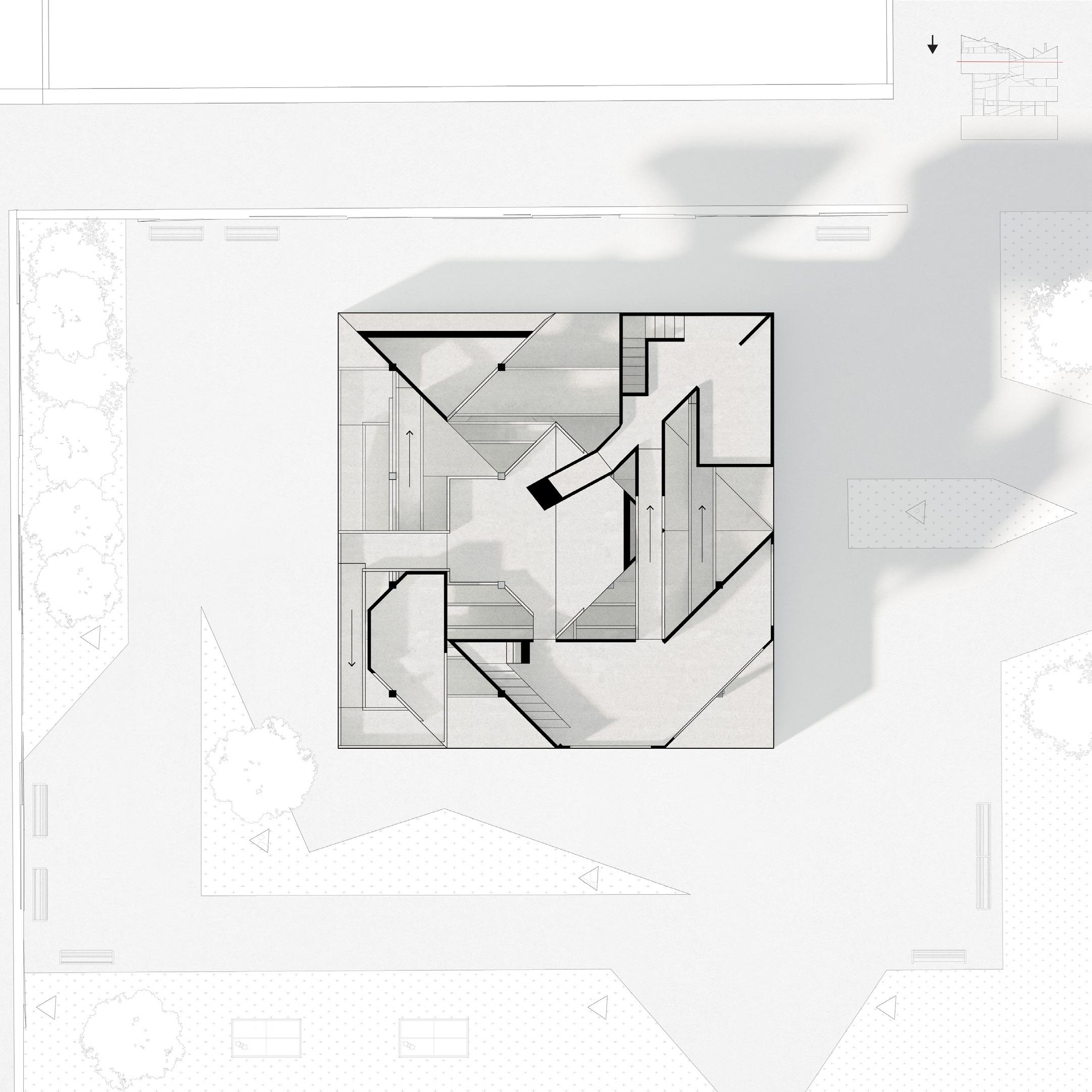

Step 5: Room massing extruded into multiple levels
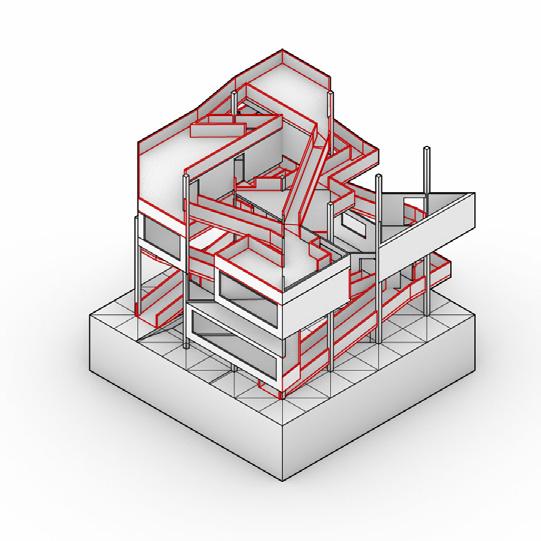
Step 6: Ramps and flat platforms added to connect room massings
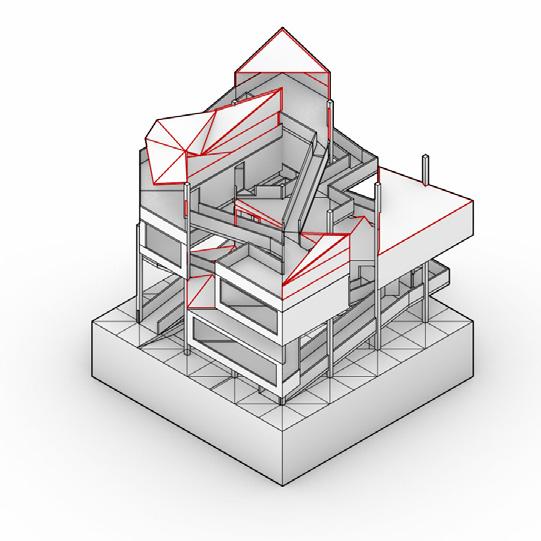
Step 7: Shading added atop exterior seating areas
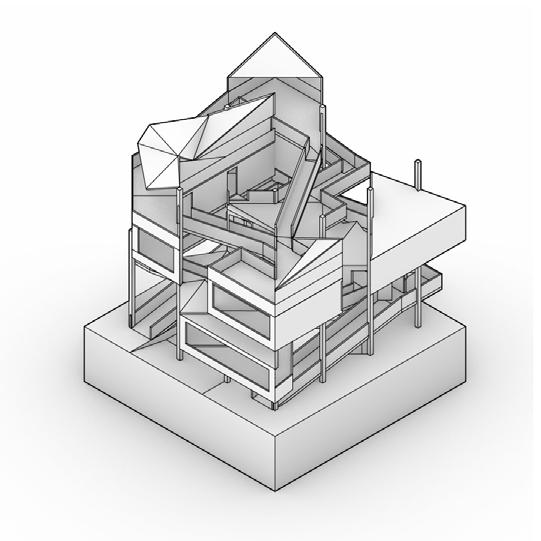
Step 8: Intertwined Study Center
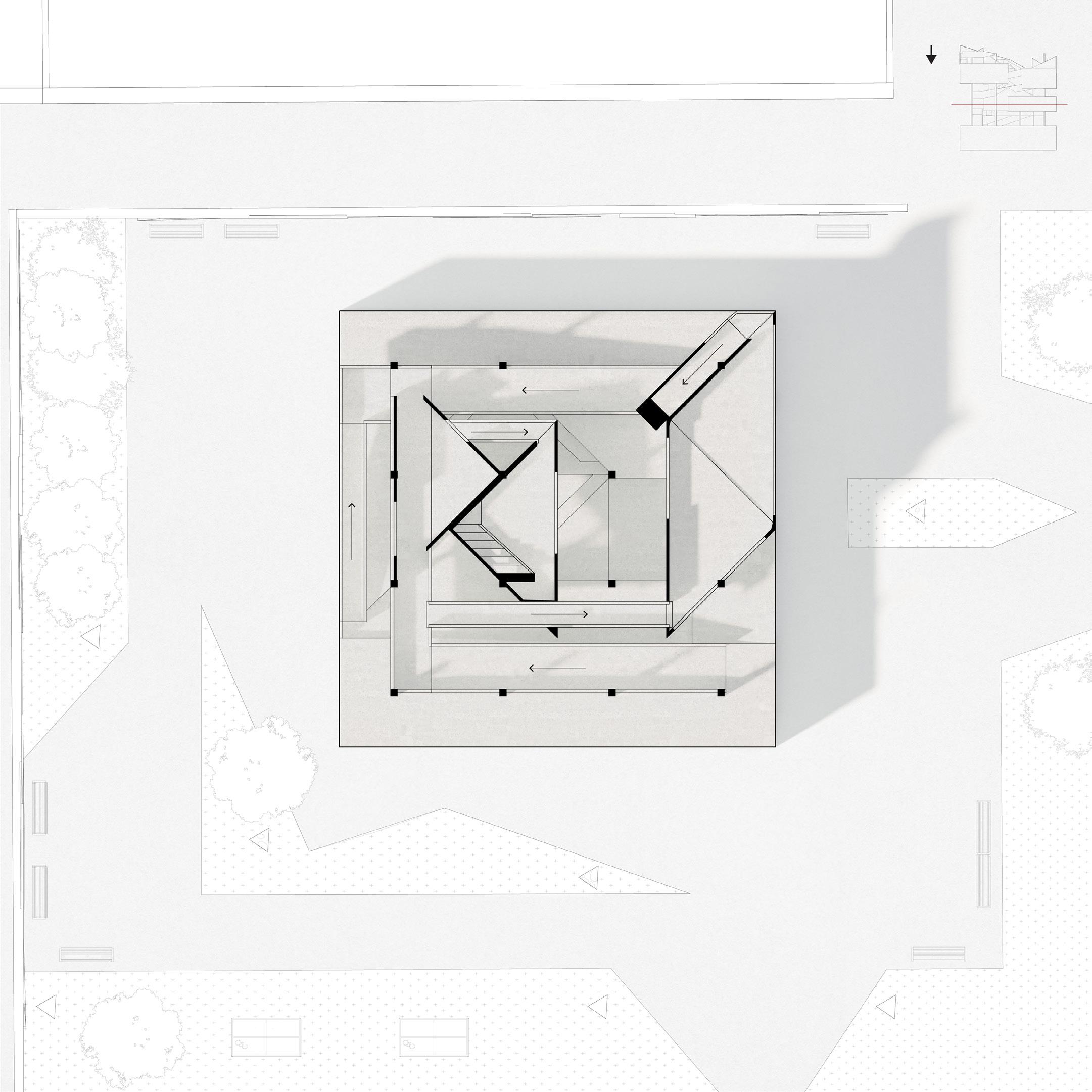
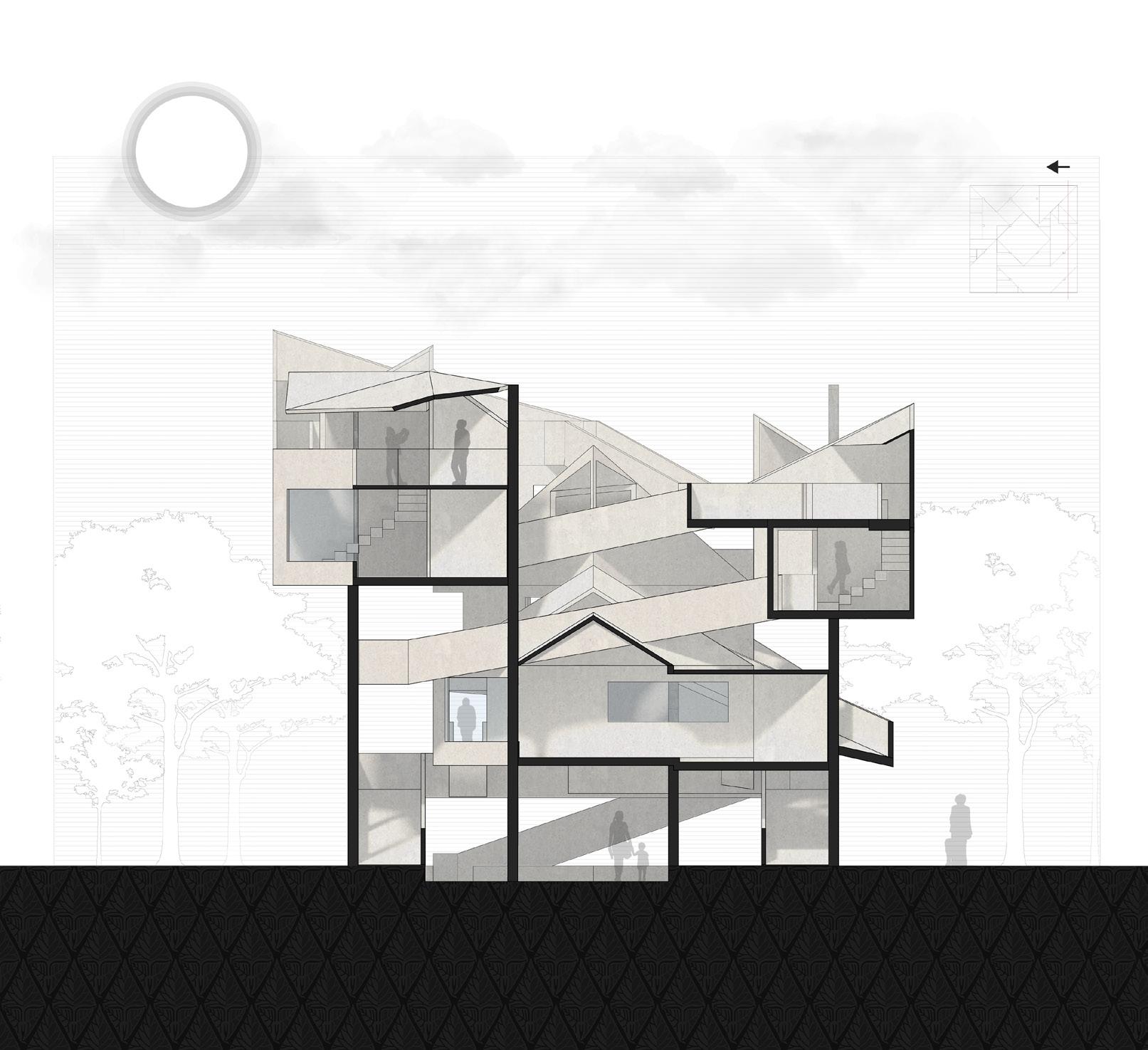
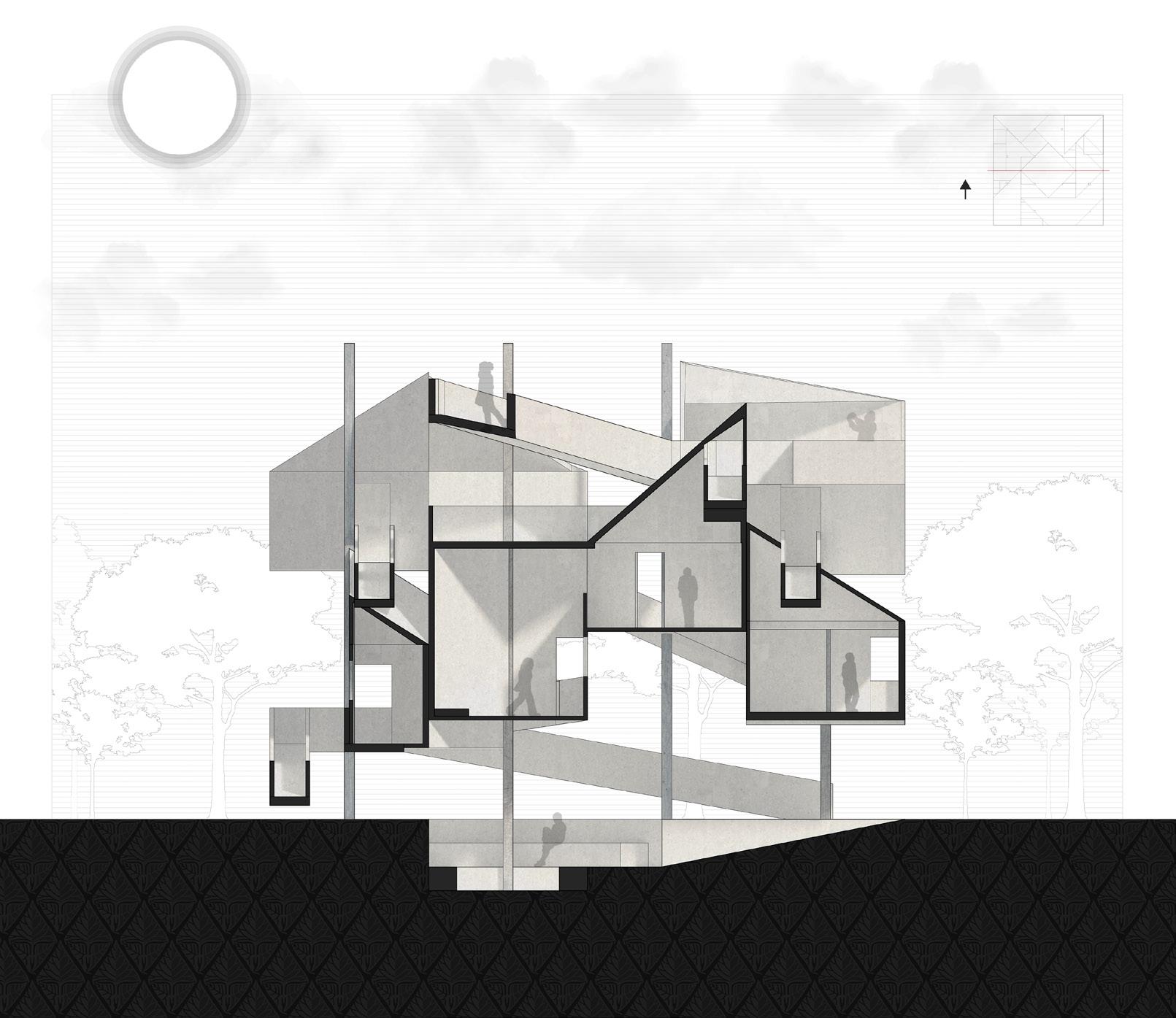

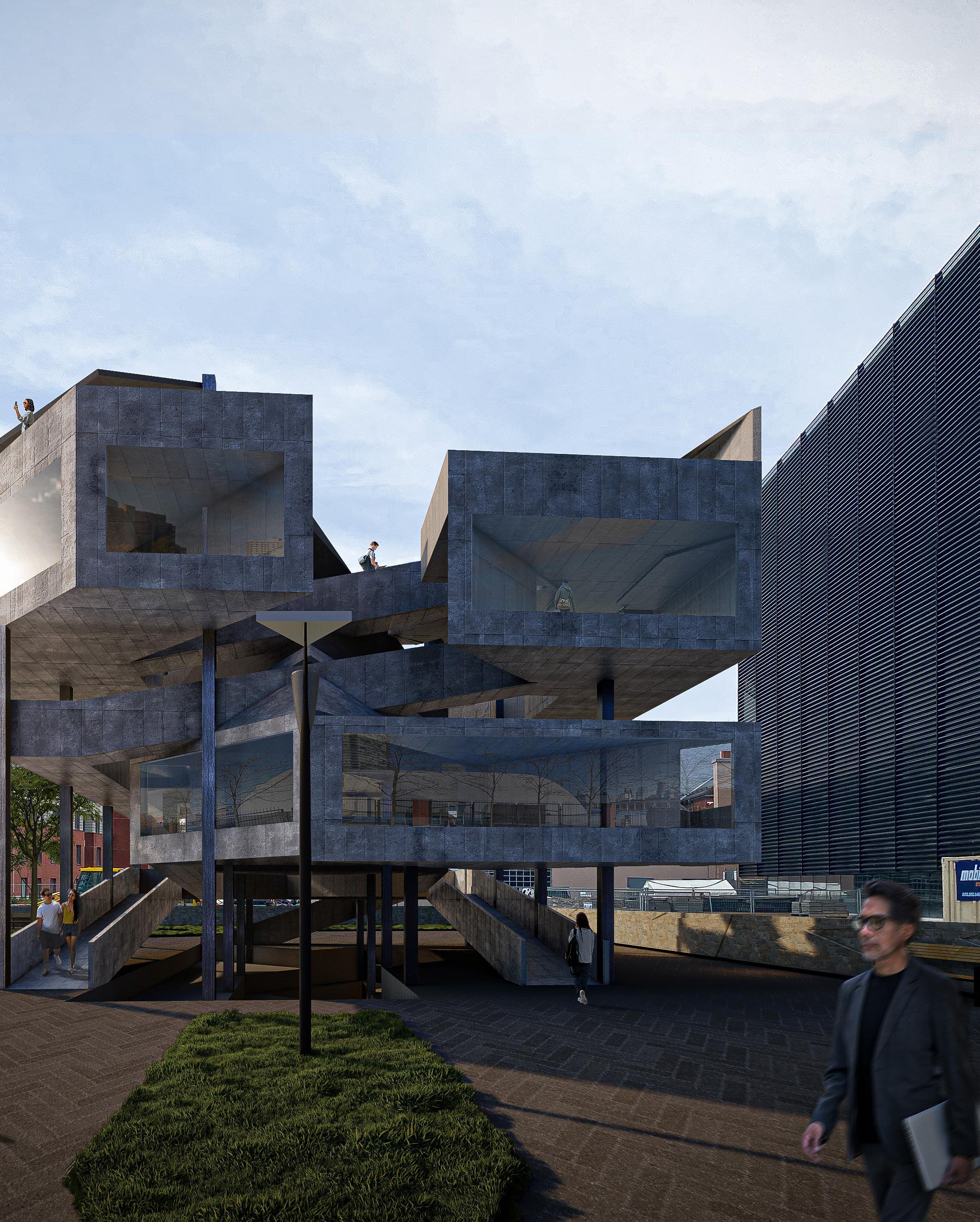
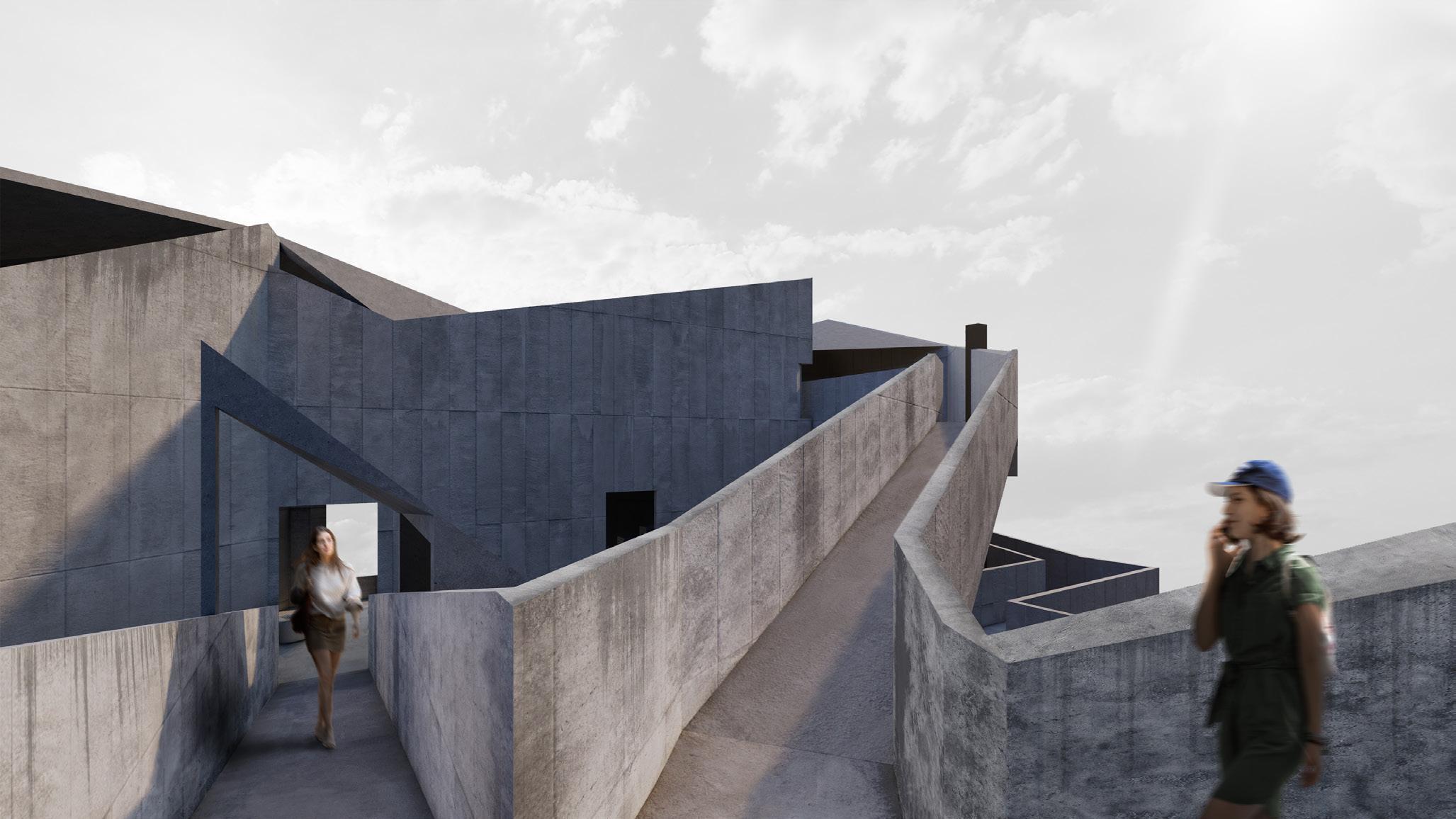
Plentiful network of ramps and paths create an immersive intertwined experience
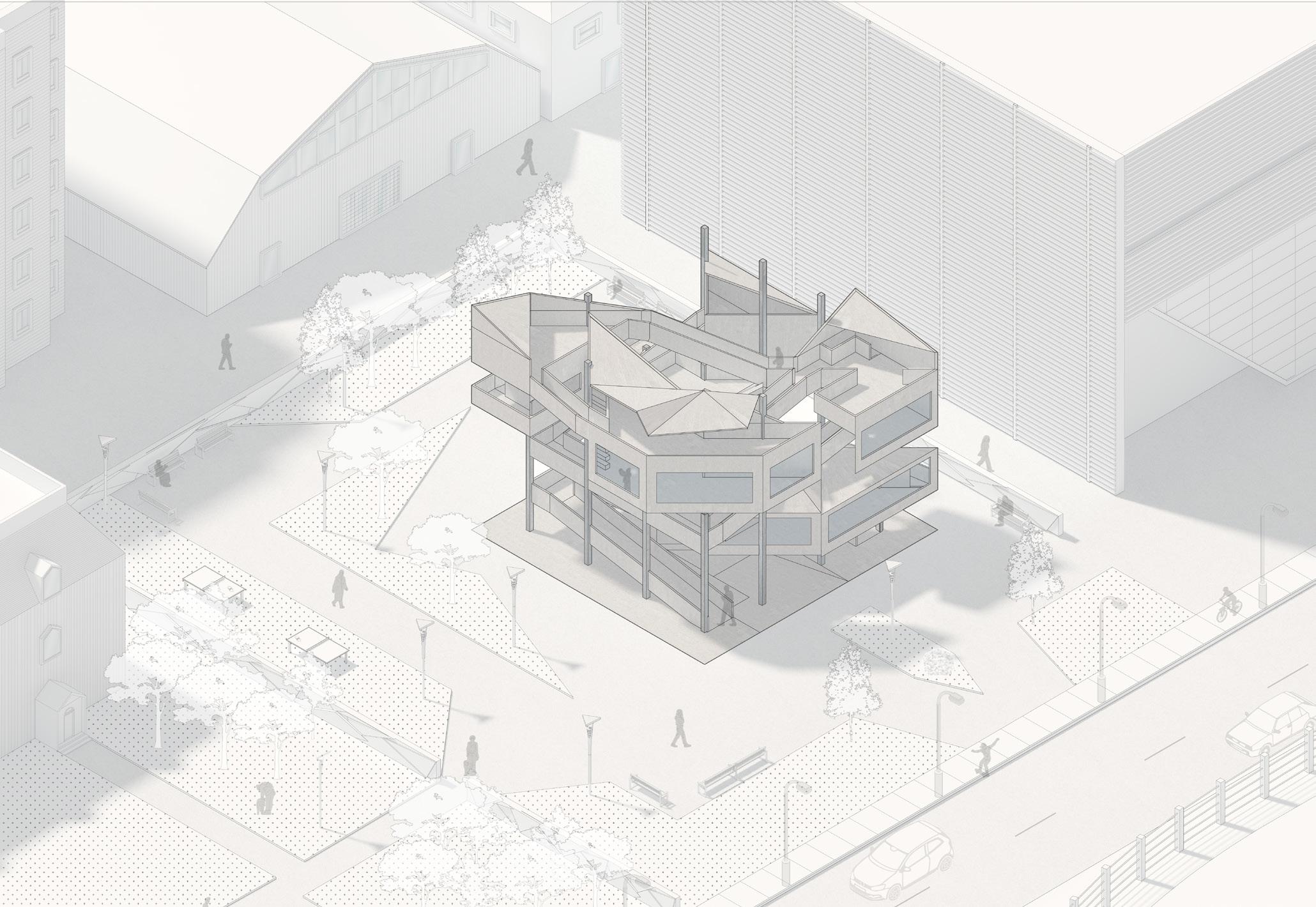
Isometric with surrounding context
• Shades for exterior seating areas
• Various study spaces
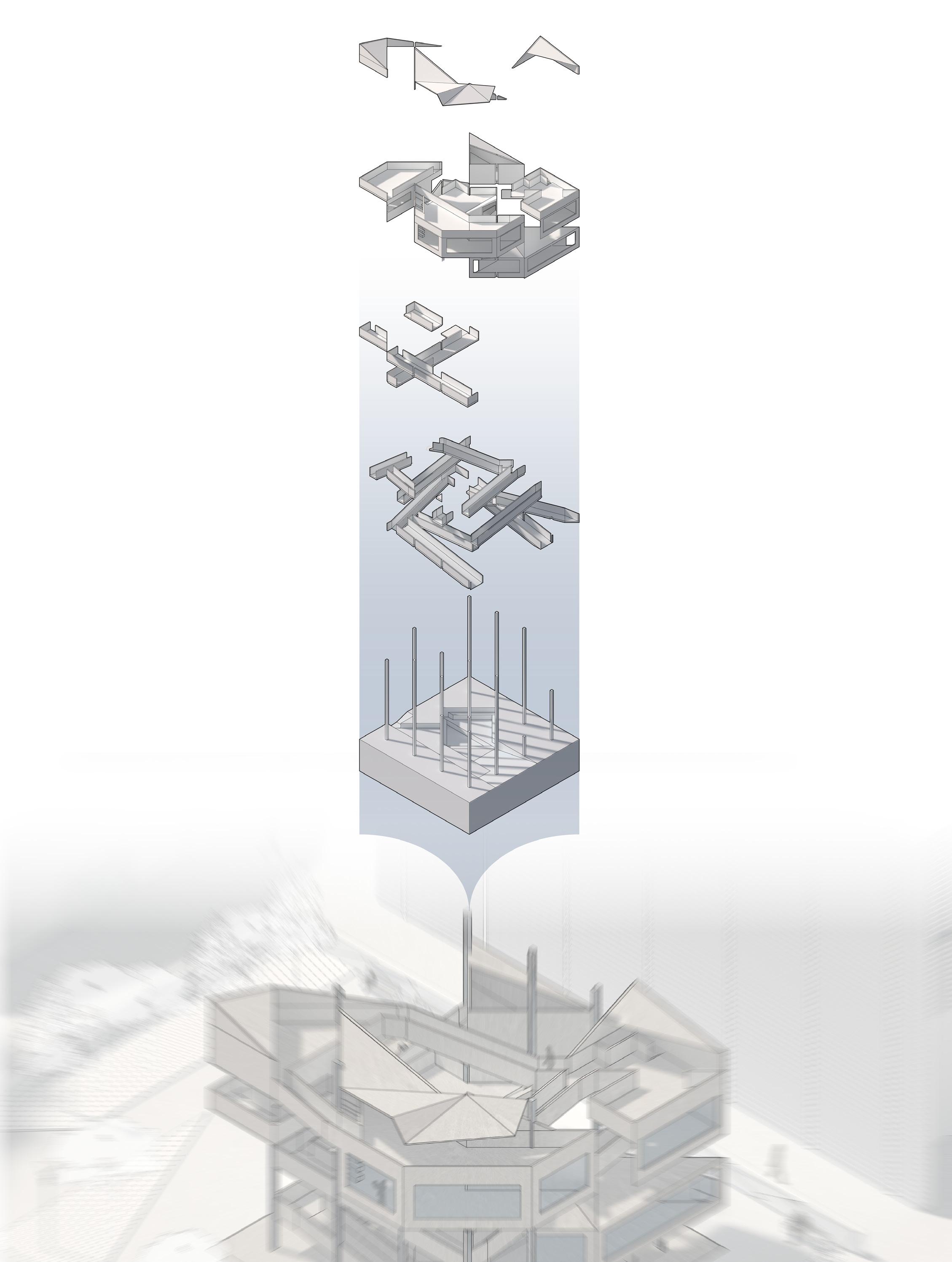
• Flat platforms
• Ramps
PROGRAM
• Base
• Underground seating
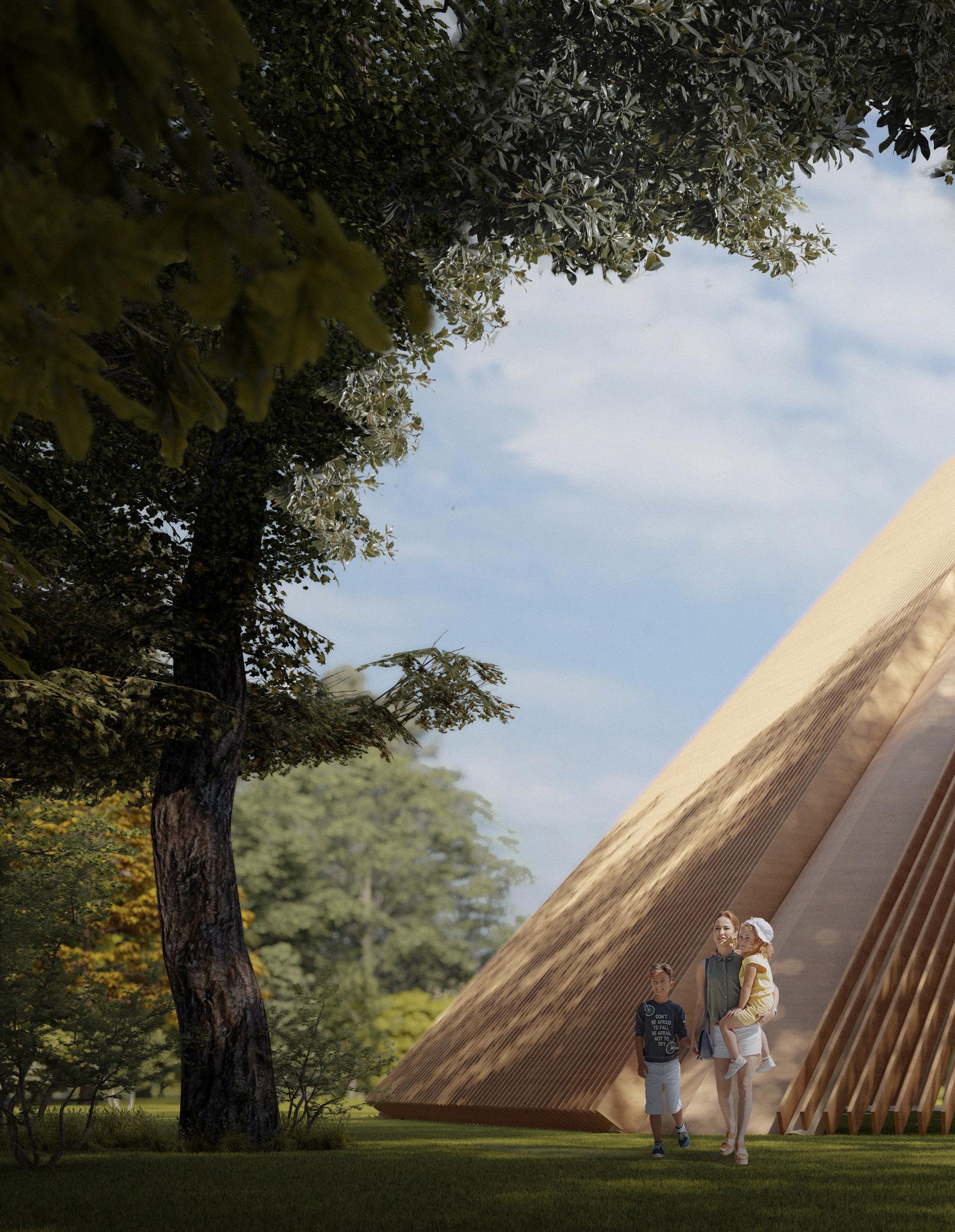
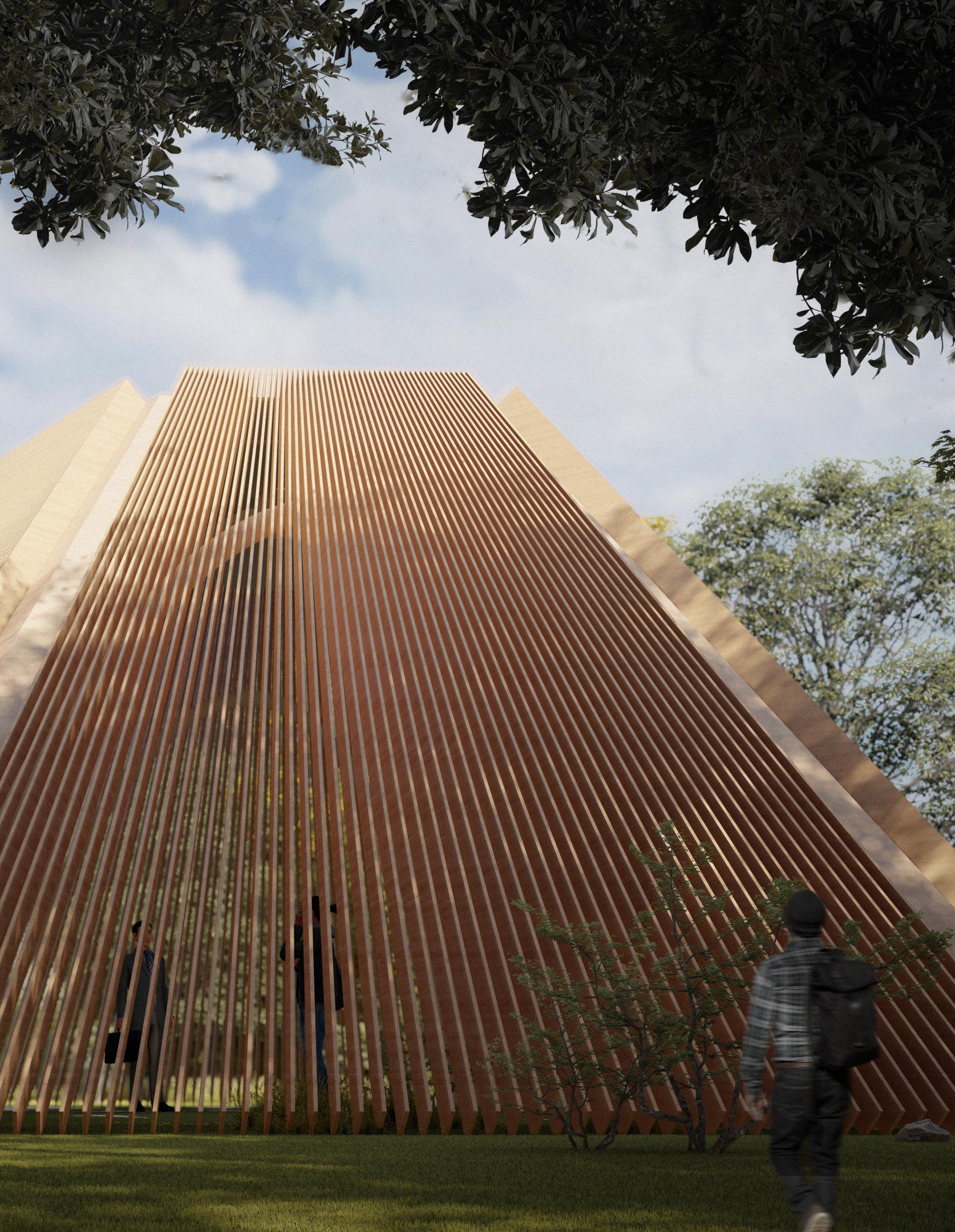
Year: 2021 Location: Toronto
Type: Academic Collaboration
KINETIC TRANSFORMATION PAVILION
Using the Burke Brise Soleil as the principal inspiration and precedent study, this project envisions the creation of a pavilion with dynamic facades. The project consists of multiple key elements and systems that facilitate the kinetic nature of the pavilion. The fin system as well as the series of mechanisms designed by our group allow for the kinetic fin system to function and therefore for movement to occur. The kinetic fin facade functions to move upwards and outwards via a rotating arch that meets the fins and thus pushes them upwards. The fins mold to the shape of the arch as they’re pushed upwards, creating a tunnel-like space. The kinetic wall facade could be closed or open at any degree necessary up until its maximum opening of 45 degrees. The extension of the project (02.B) consists of manipulating this kinetic facade onto a multipurpose fence.
*Work done in collaboration with Huzaifa Chughtai and Abdelrahman Merdan consists of physical model-making, and pavilion design. Some Drawings and night render were done jointly with Huzaifa, and the rest was done by me.
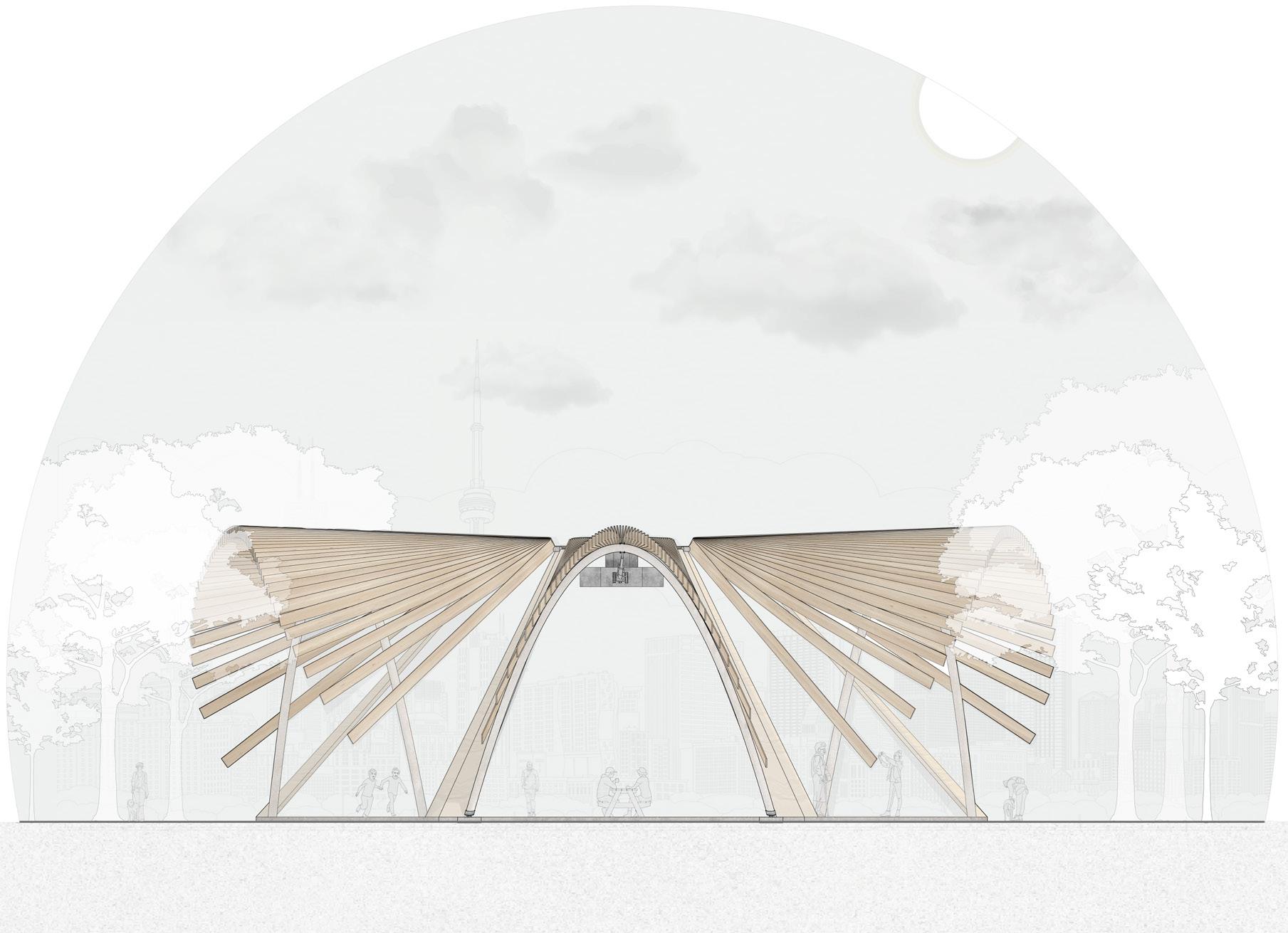
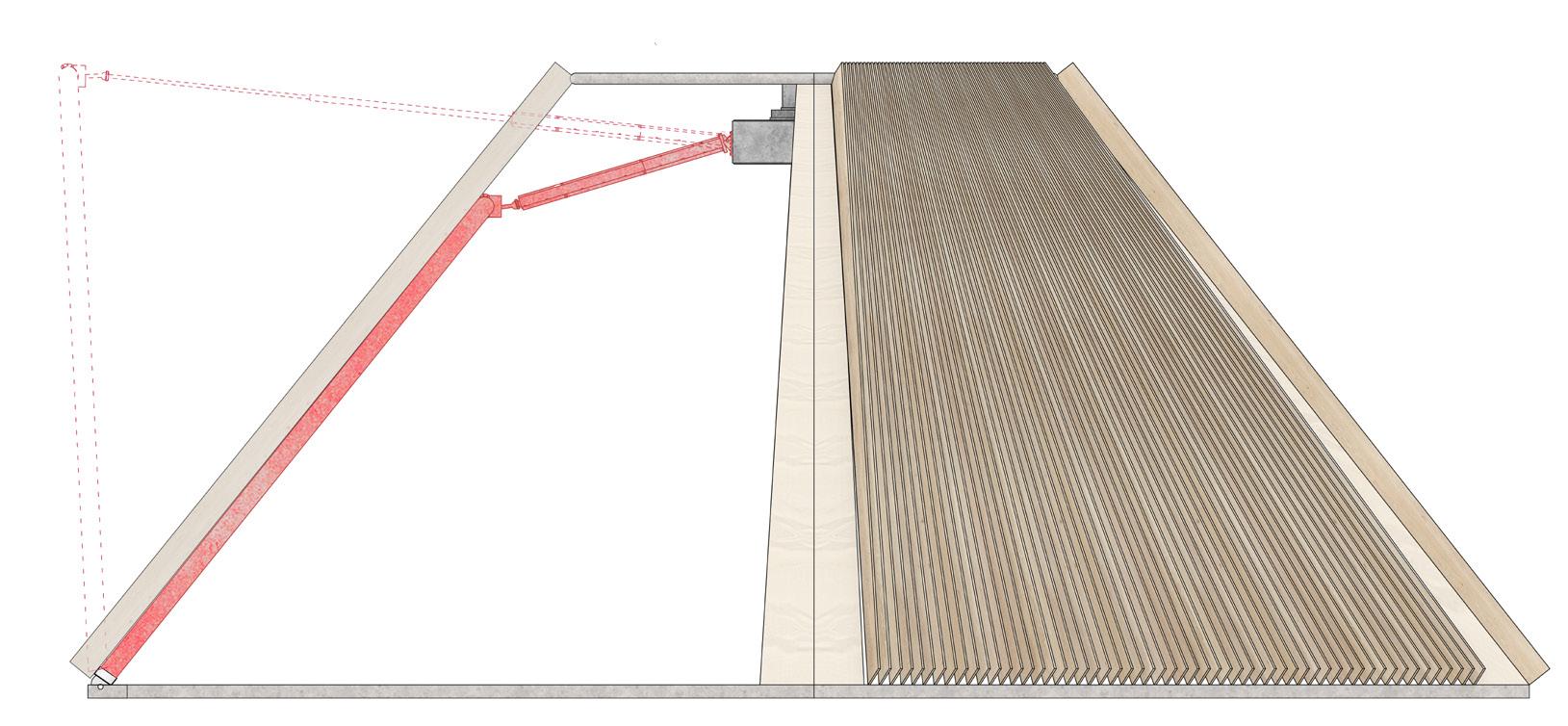
The structure’s components (Arch and Fins) move through its main kinetic system of a hydraulic actuator. The hydraulic actuator is suspended from the ceiling of the pavilion and is connected to the arch in its lowered resting state. In a contracted state, the actuator keeps the arch lowered which in turn keeps the fins lowered. However, Once the actuator extends, it pushes the arch outwards which in turn lifts and raises the fins.

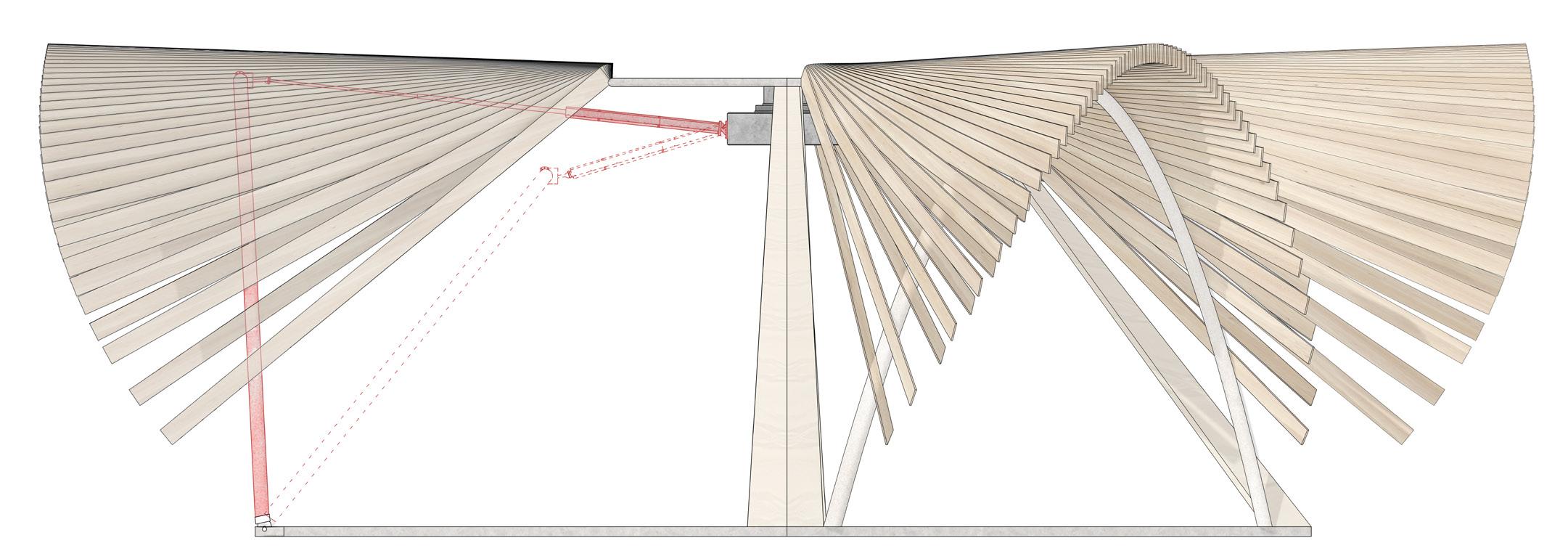
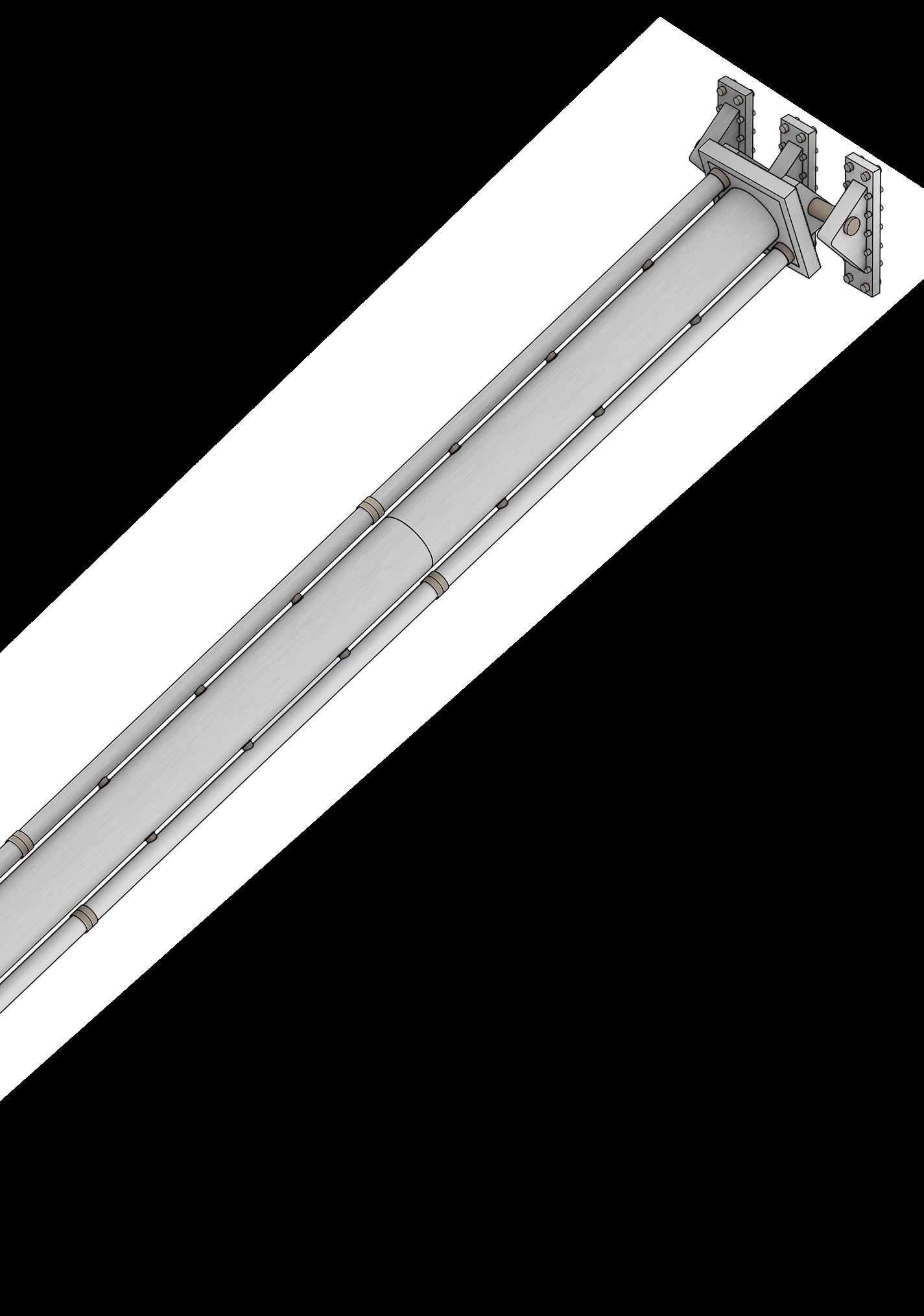
1. Connector
2. Connector Rod
3. Ball point
4. Ball point joint
5. Screws
6. Extension Tube (Inner tube - Shortened for diagram purposes)
7. Small tab to connect Pressure canister
8. Pressure canister
9. Outer Tube
10. Hinge Joint
11. Mechanism wall attachment
12. Bolts
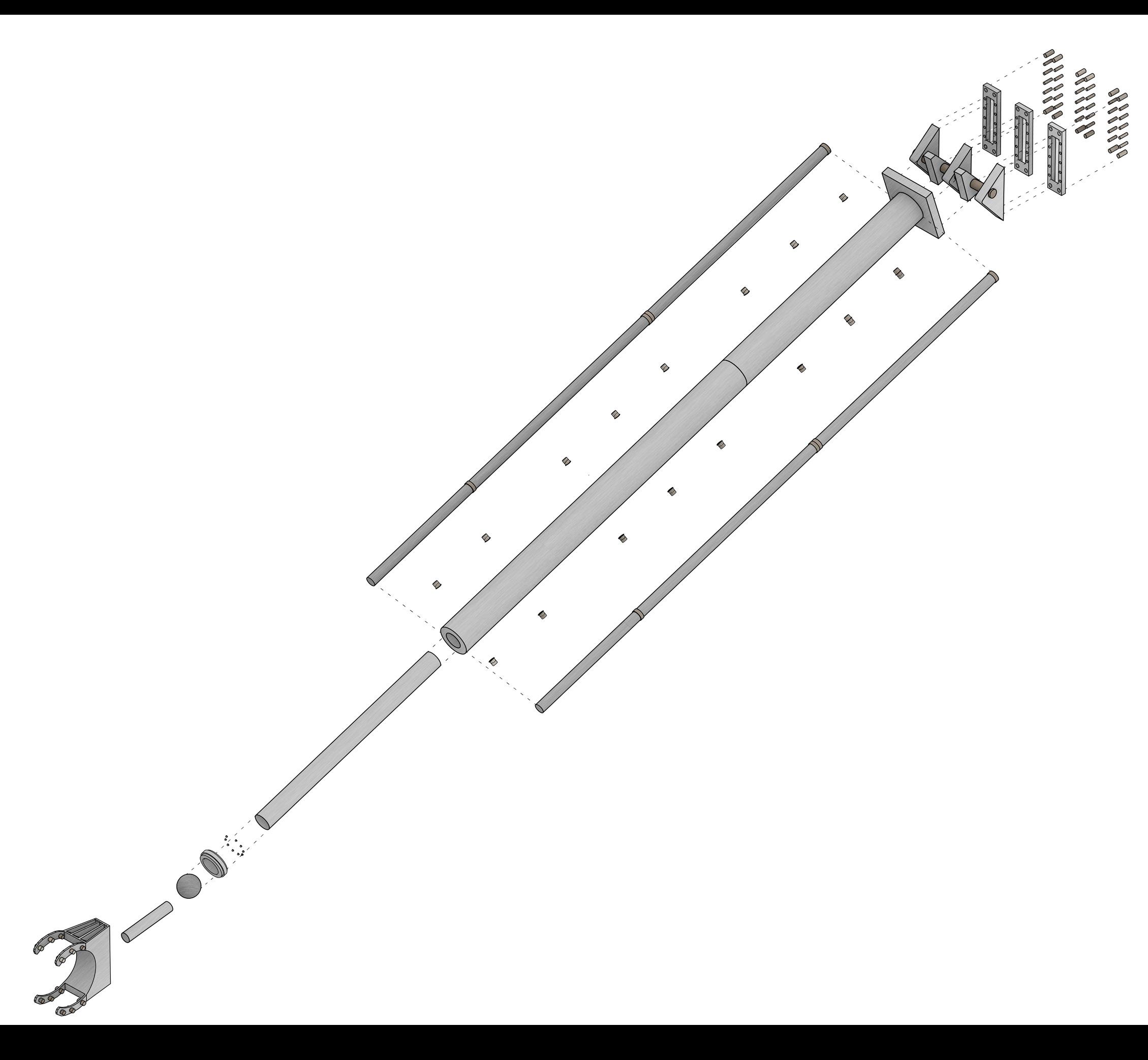
(A): Isometric of Actuator mechanism
(B): Exploded isometric of Actuator mechanism
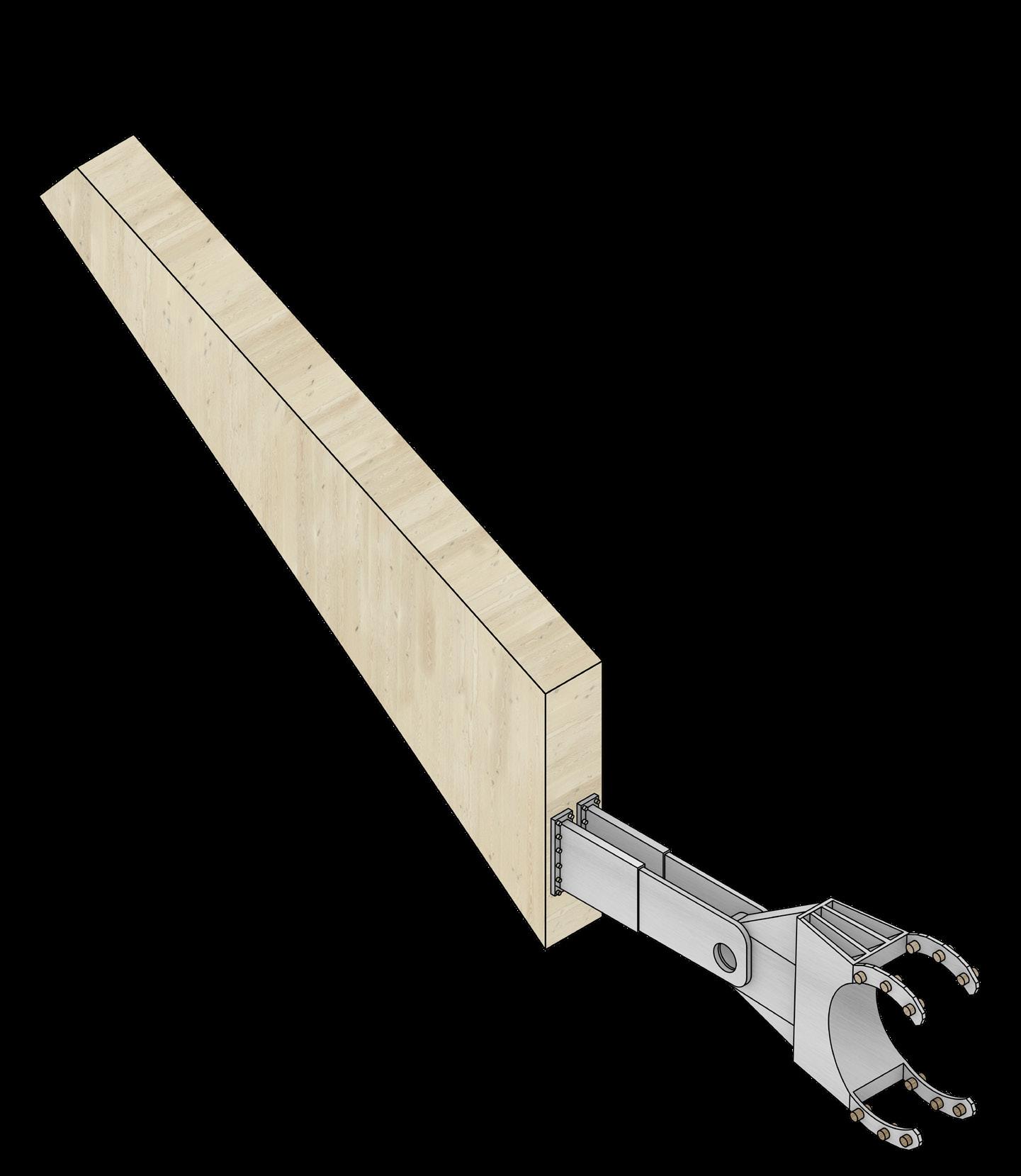
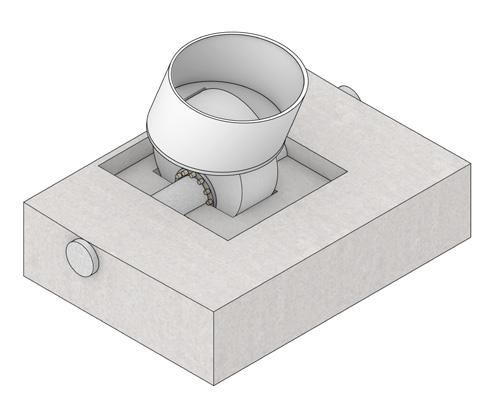
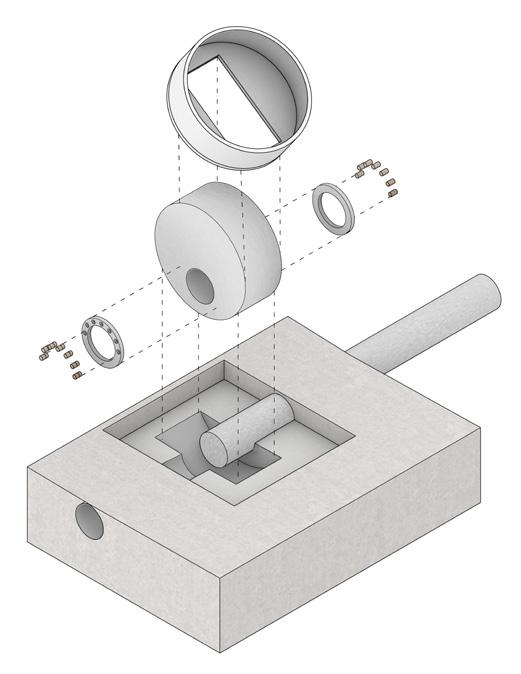
LEGEND:
1. Bolts
2. Connector
:
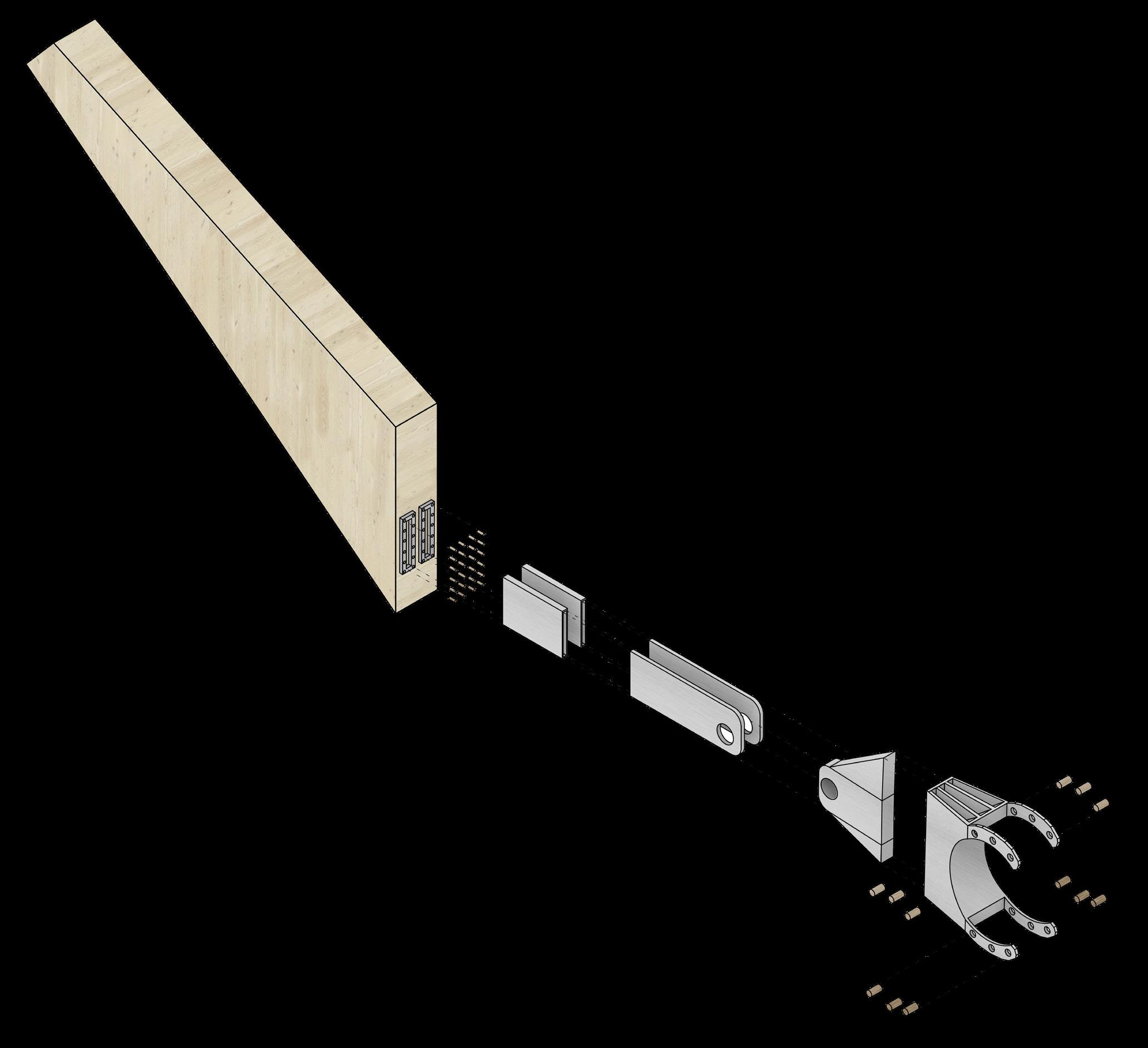
3. Hinge component ( Attached to Connector)
4. Hinge component (Rotates to allow raising of fins)
5. Hinge slider (Slides on hinge component to accomodate for fin raising)
6. Bolts
7. Fin Mechanism attachment
8. Segment of fin (B): Exploded Isometric of fin hinge mechanism
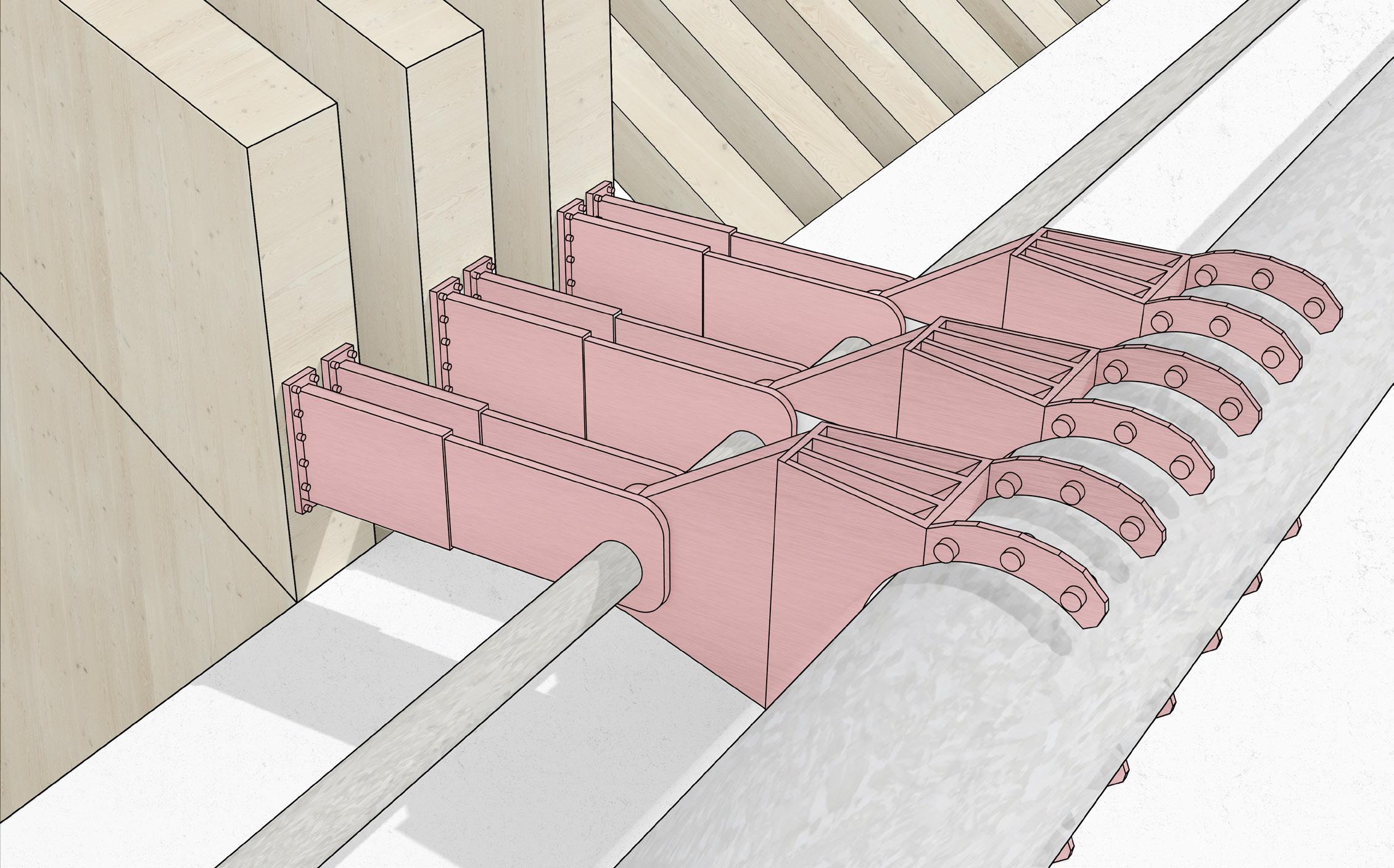
Above: Perspective of Fin mechanism in lowered state (closed)
Below: Perspective of Fin mechanism in raised state (open)
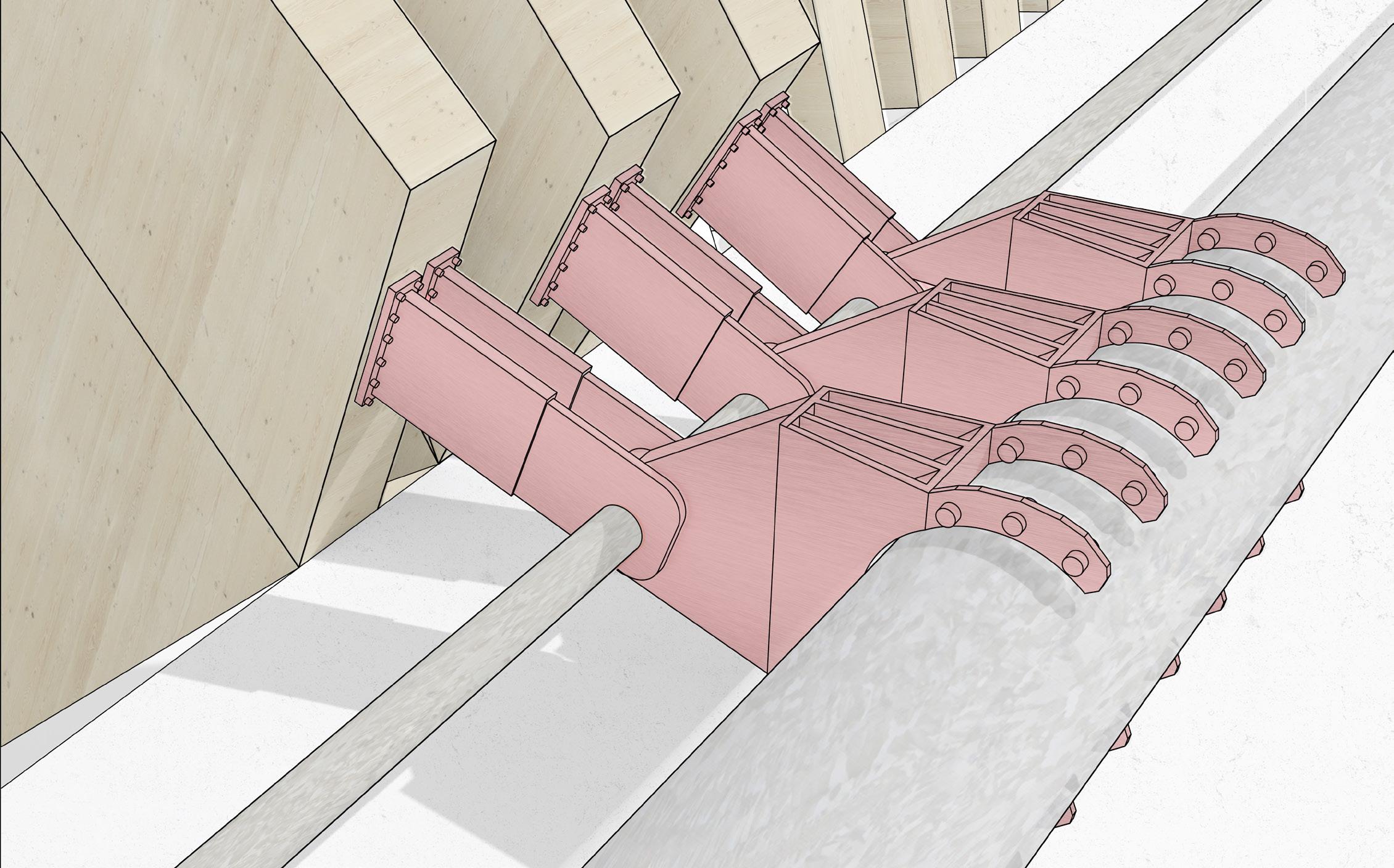
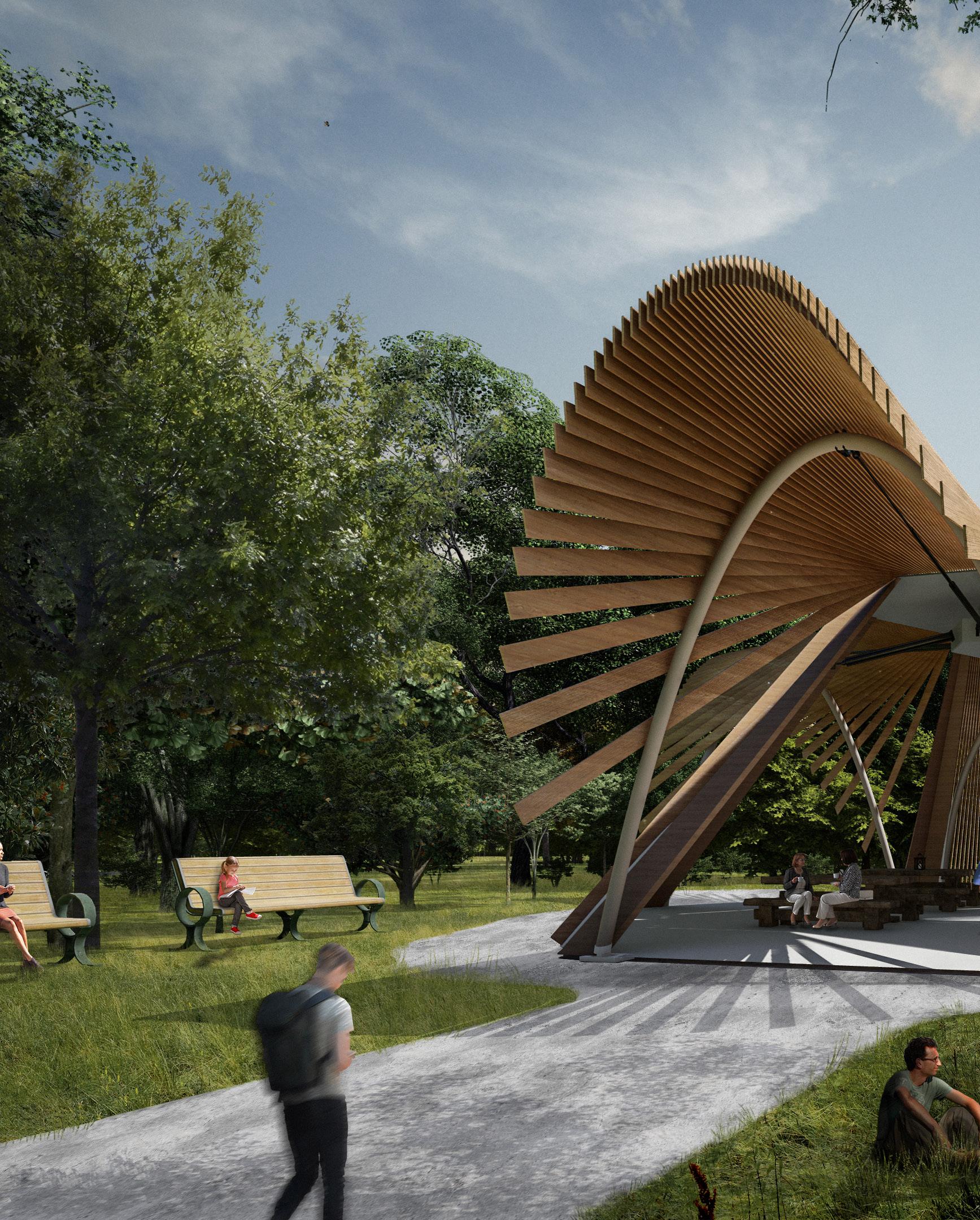

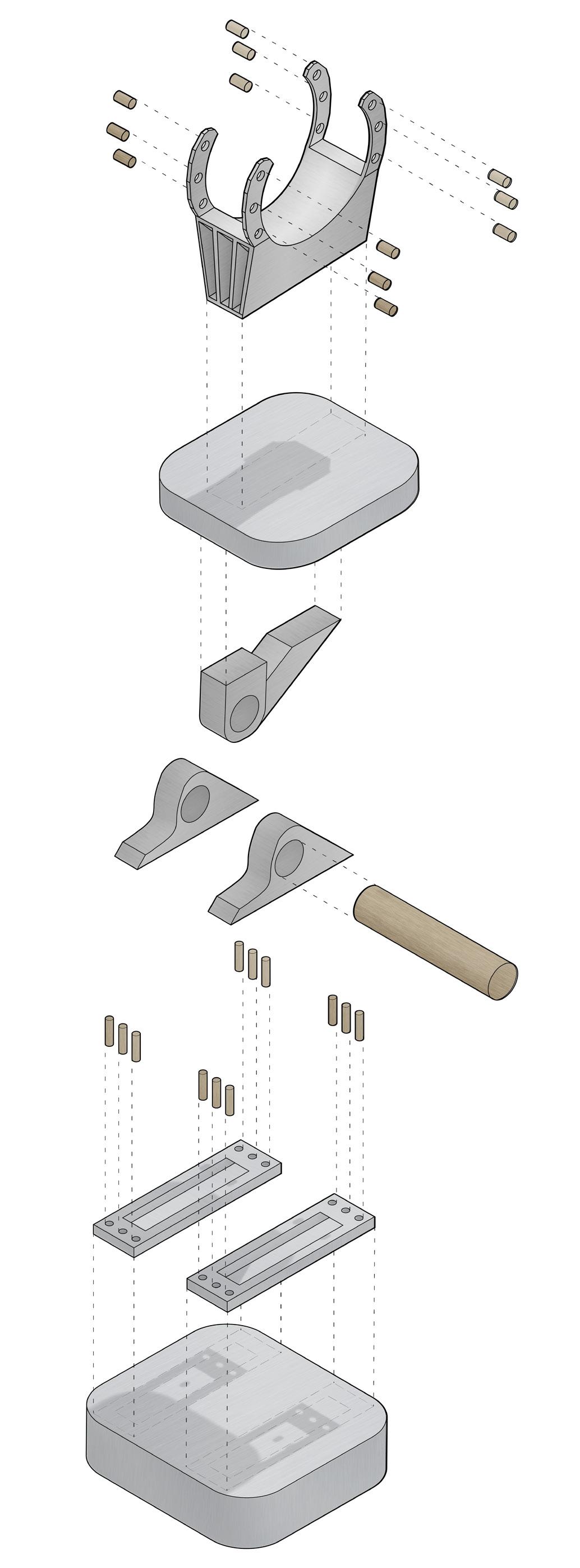
1. Pad attaching hinge mechanism to fin
2. Fin mechanism attachment
3. Bolts
4. Fixed rod (Allows rotating hinge to rotate around it)
5. Rotating hinge joint component
6. Fixed hinge joint component
7. Flat pad attaching hinge mechanism to connector
8. Bolts
9. Connector (connects hinge mechanism to structural pipe from where it hangs)
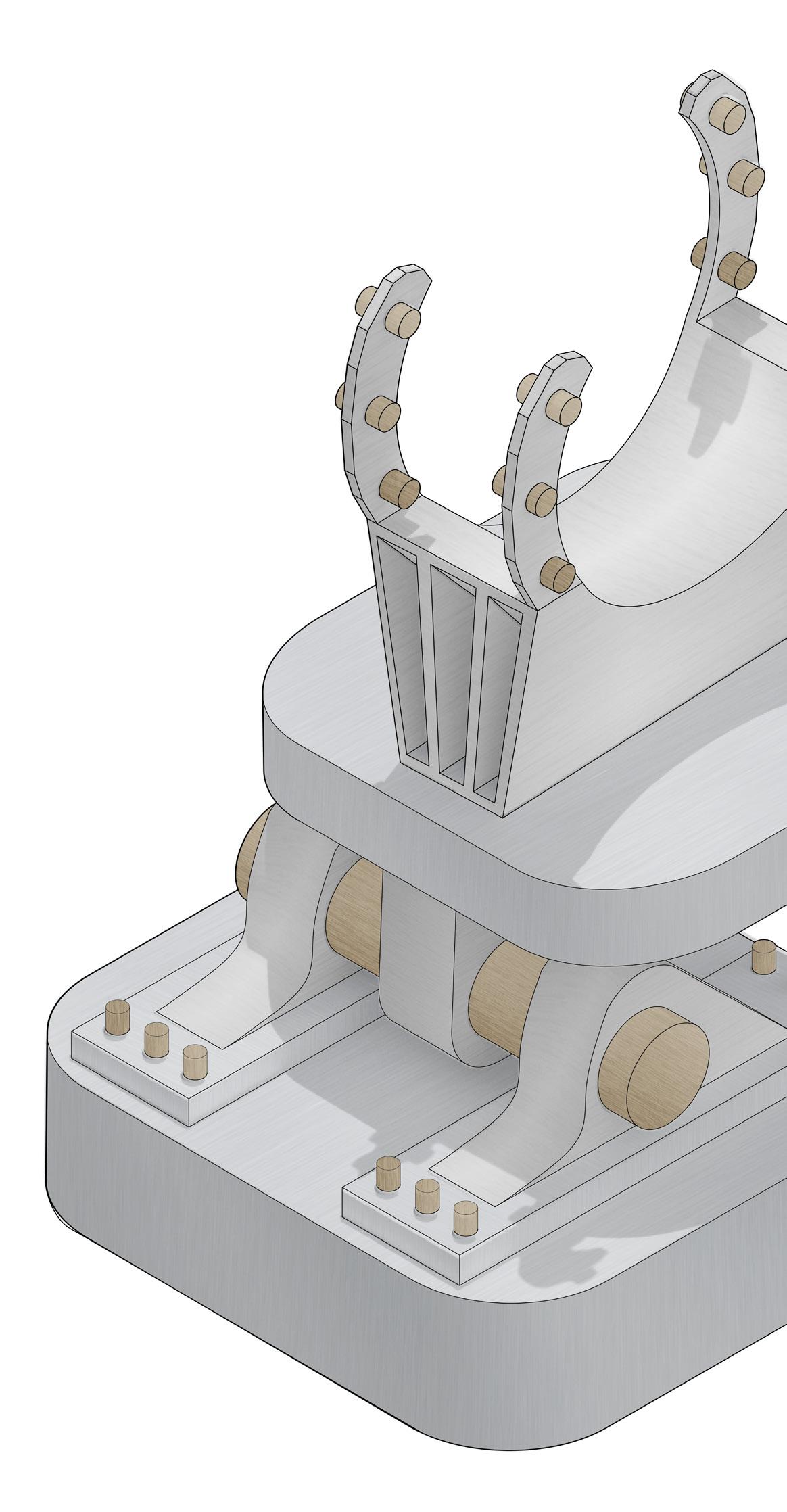
(A): Exploded Isometric of hinge mechanism
(B): Isometric of hinge mechanism

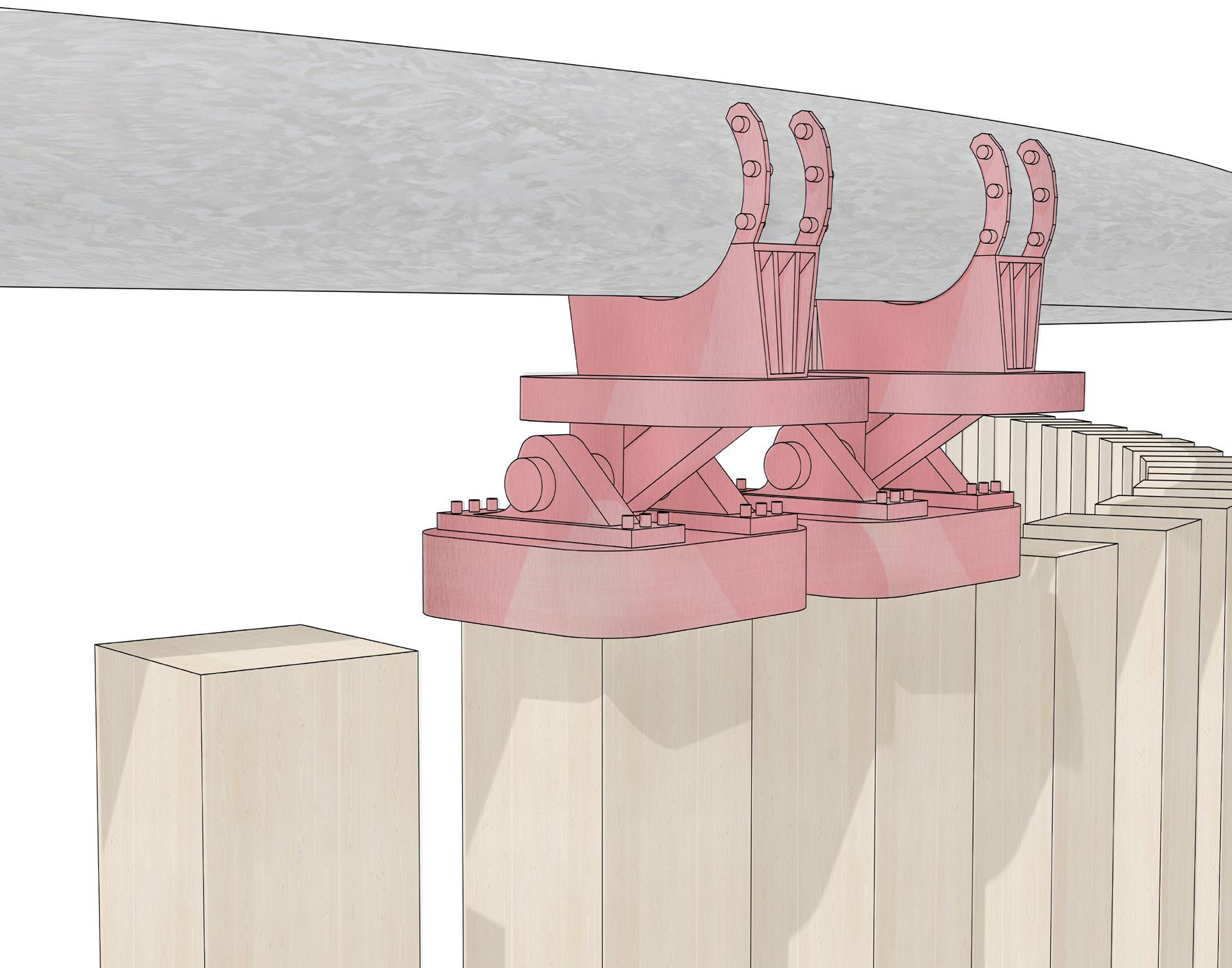
Above: Perspective of Fin mechanism in lowered state (closed)
Below: Perspective of Fin mechanism in raised state (open)
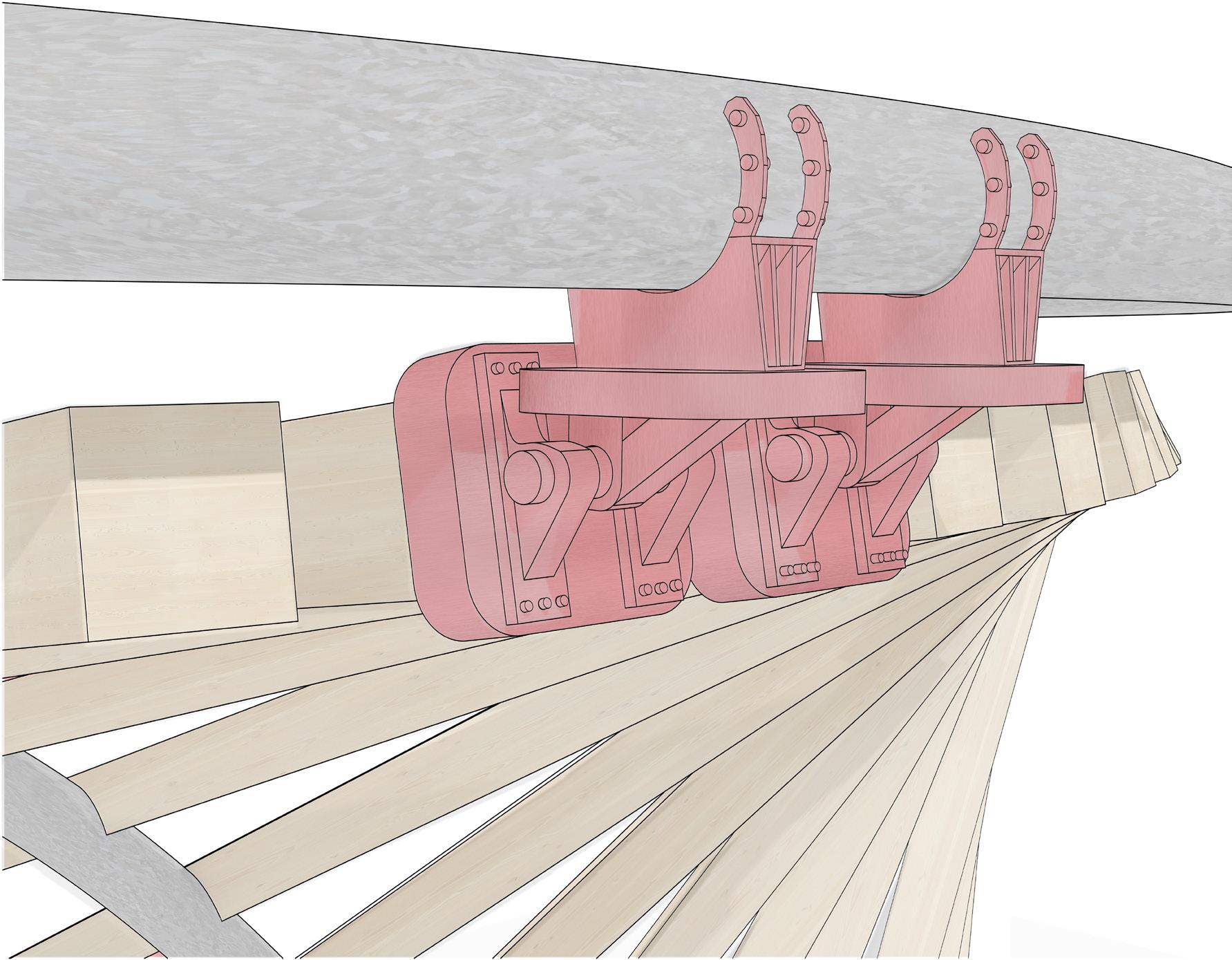

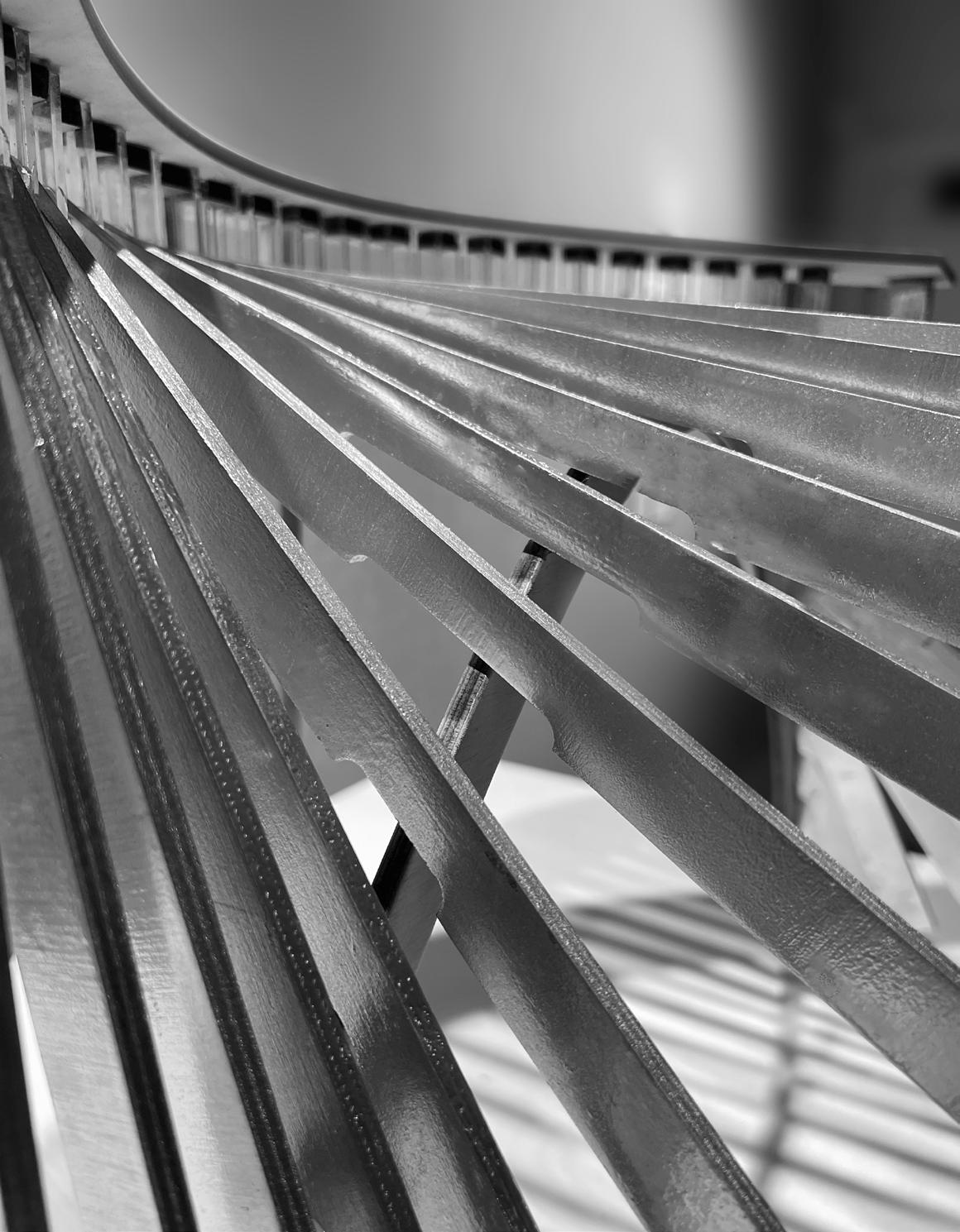
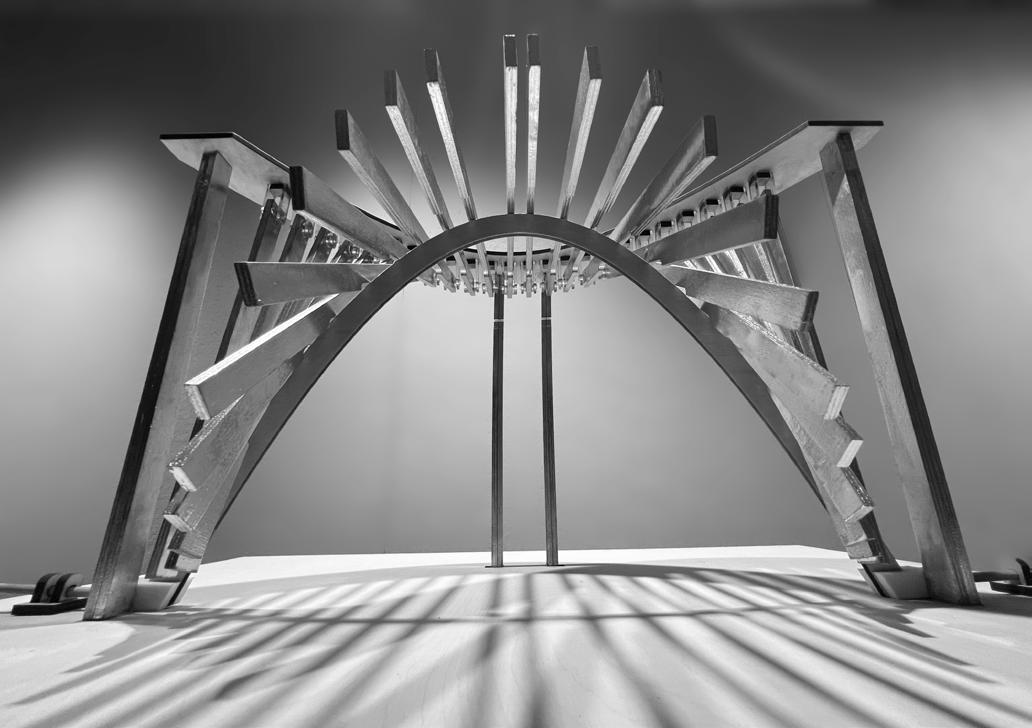
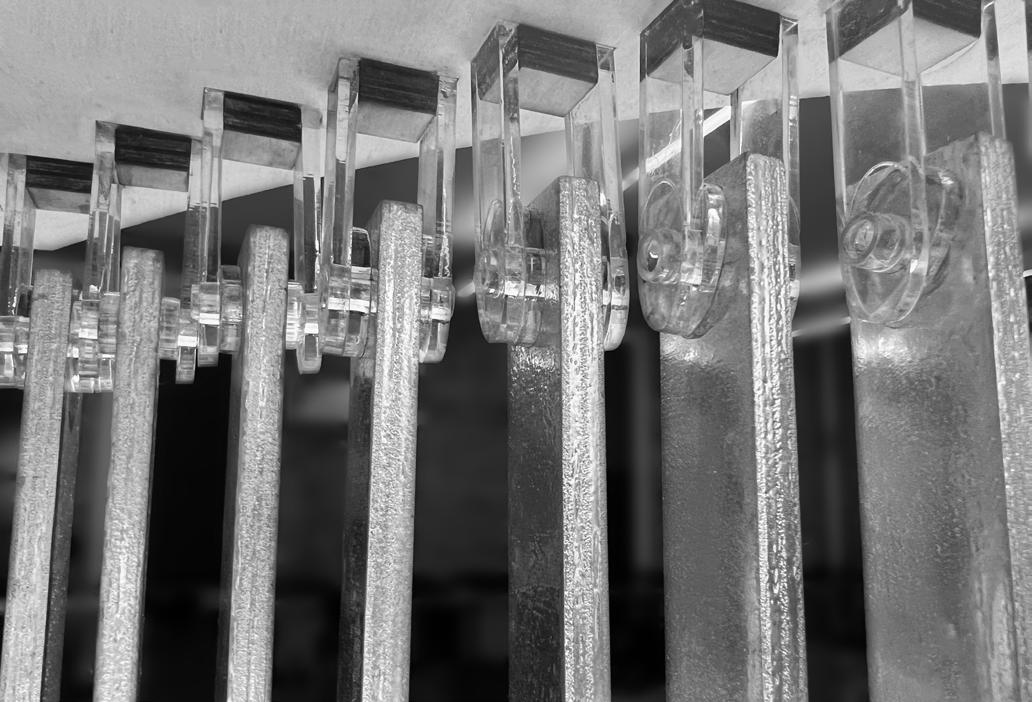
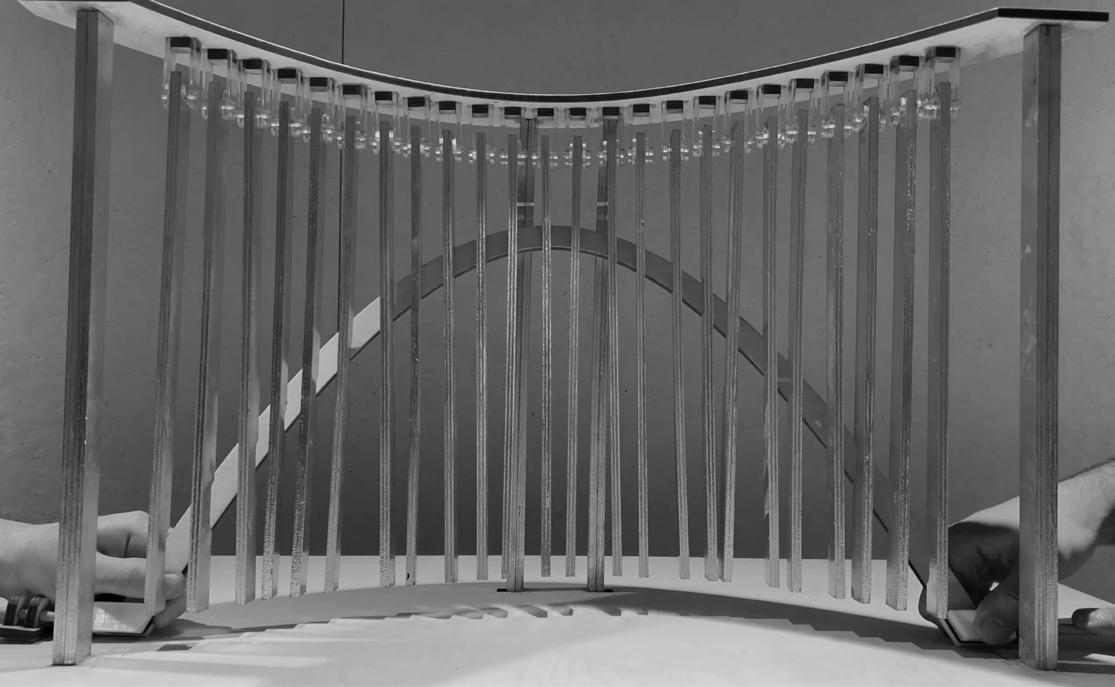
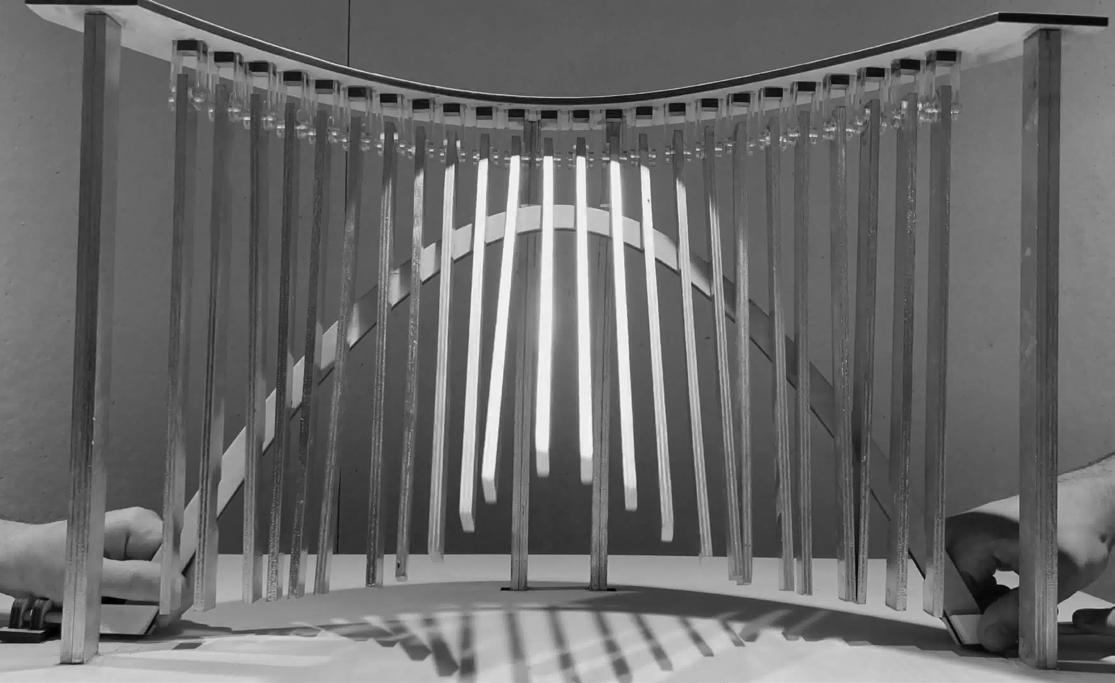

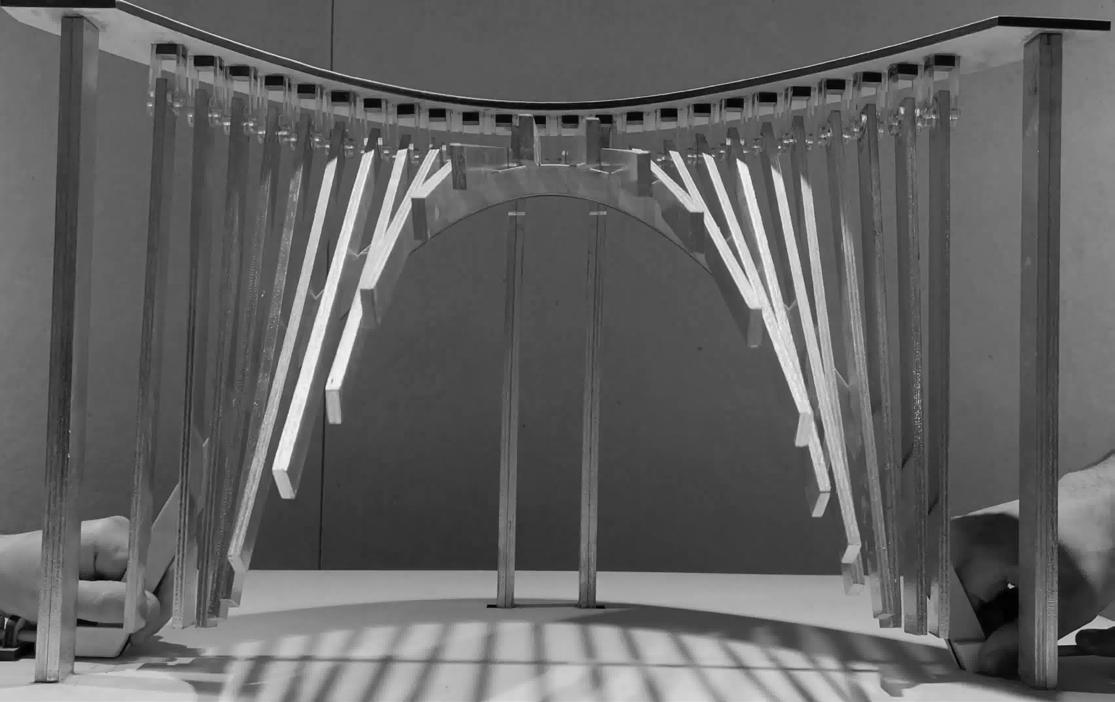
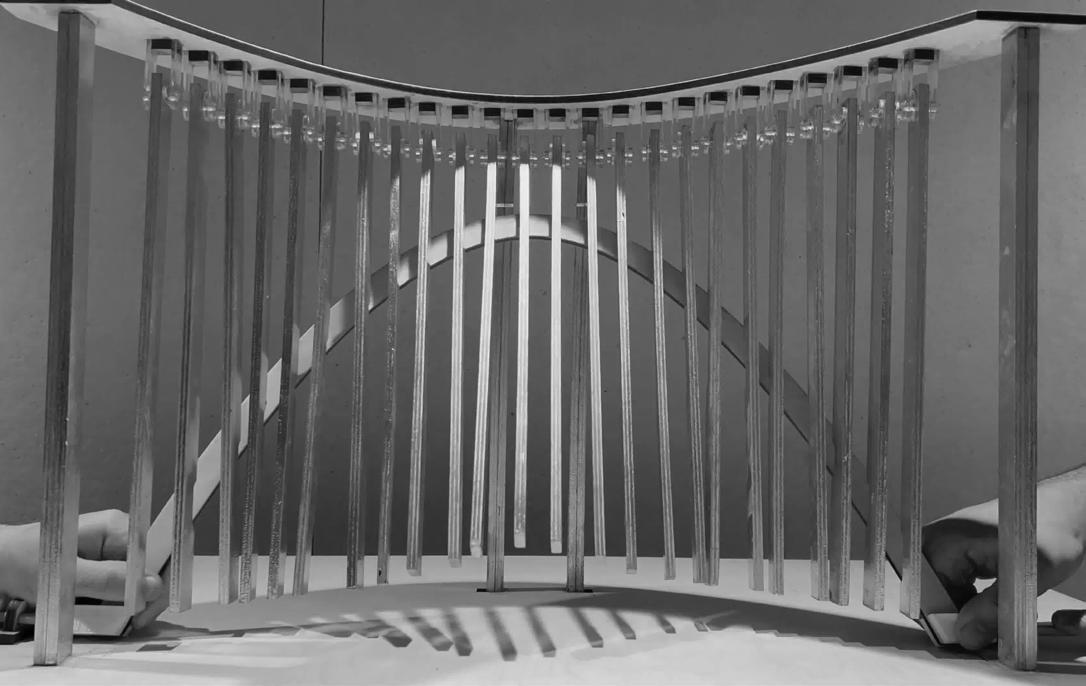
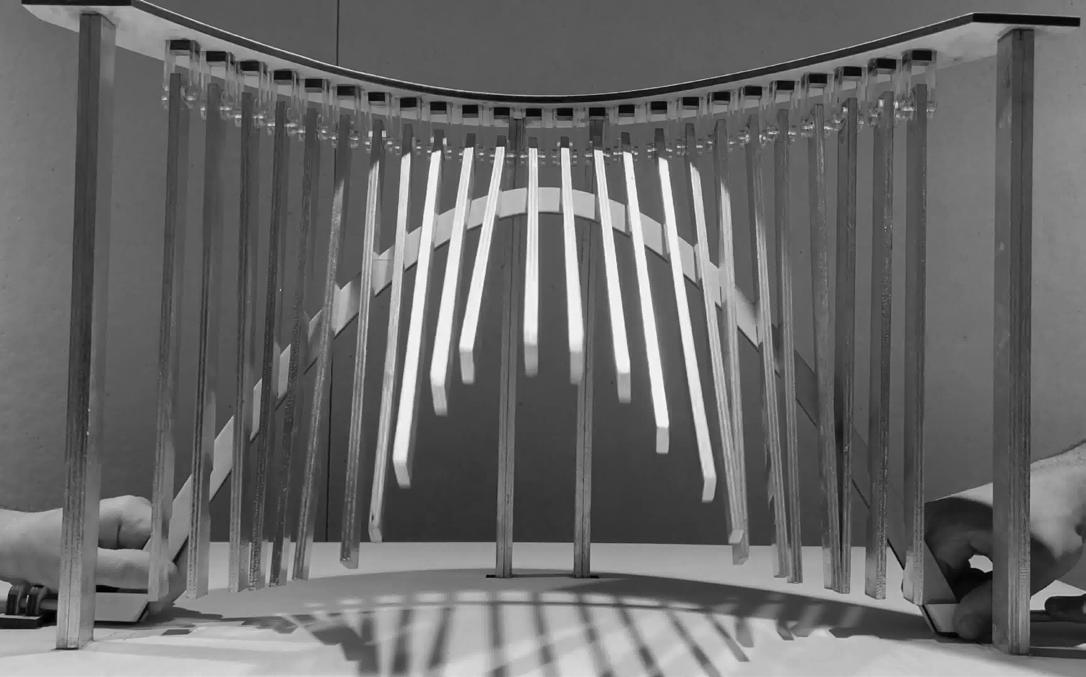
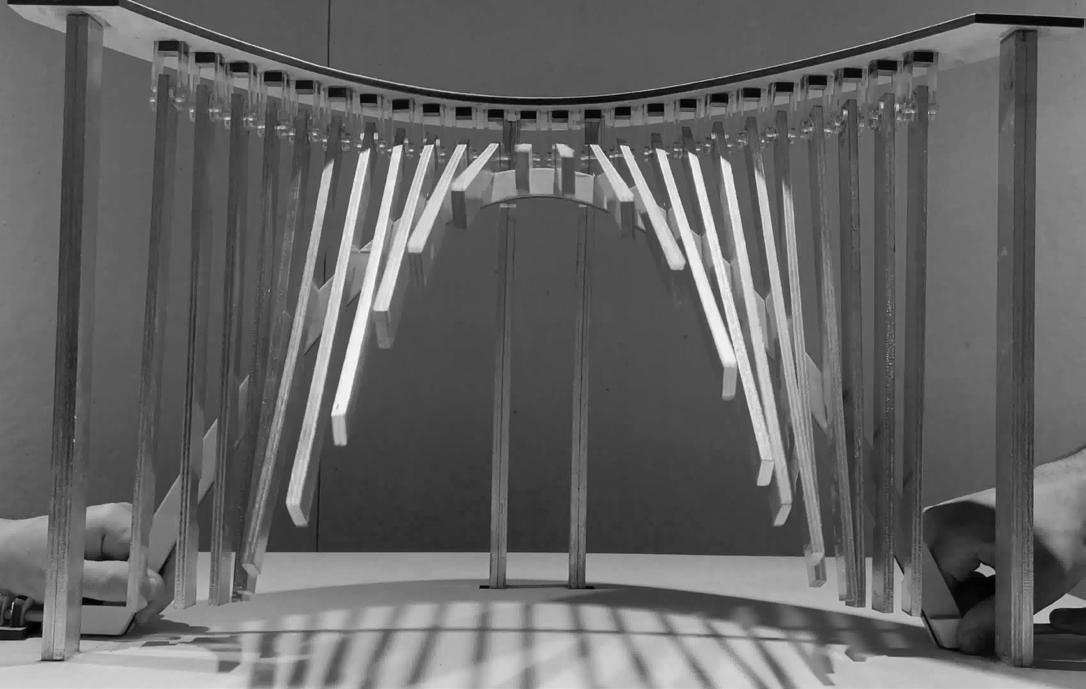
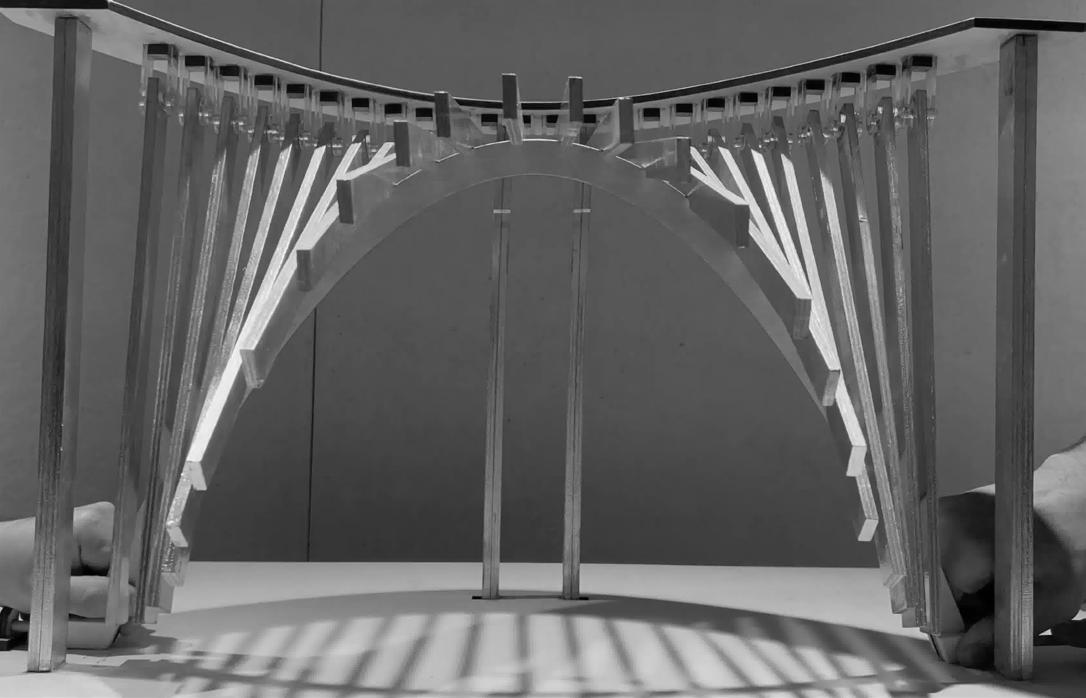
Elevation of fence in lowered state (closed)
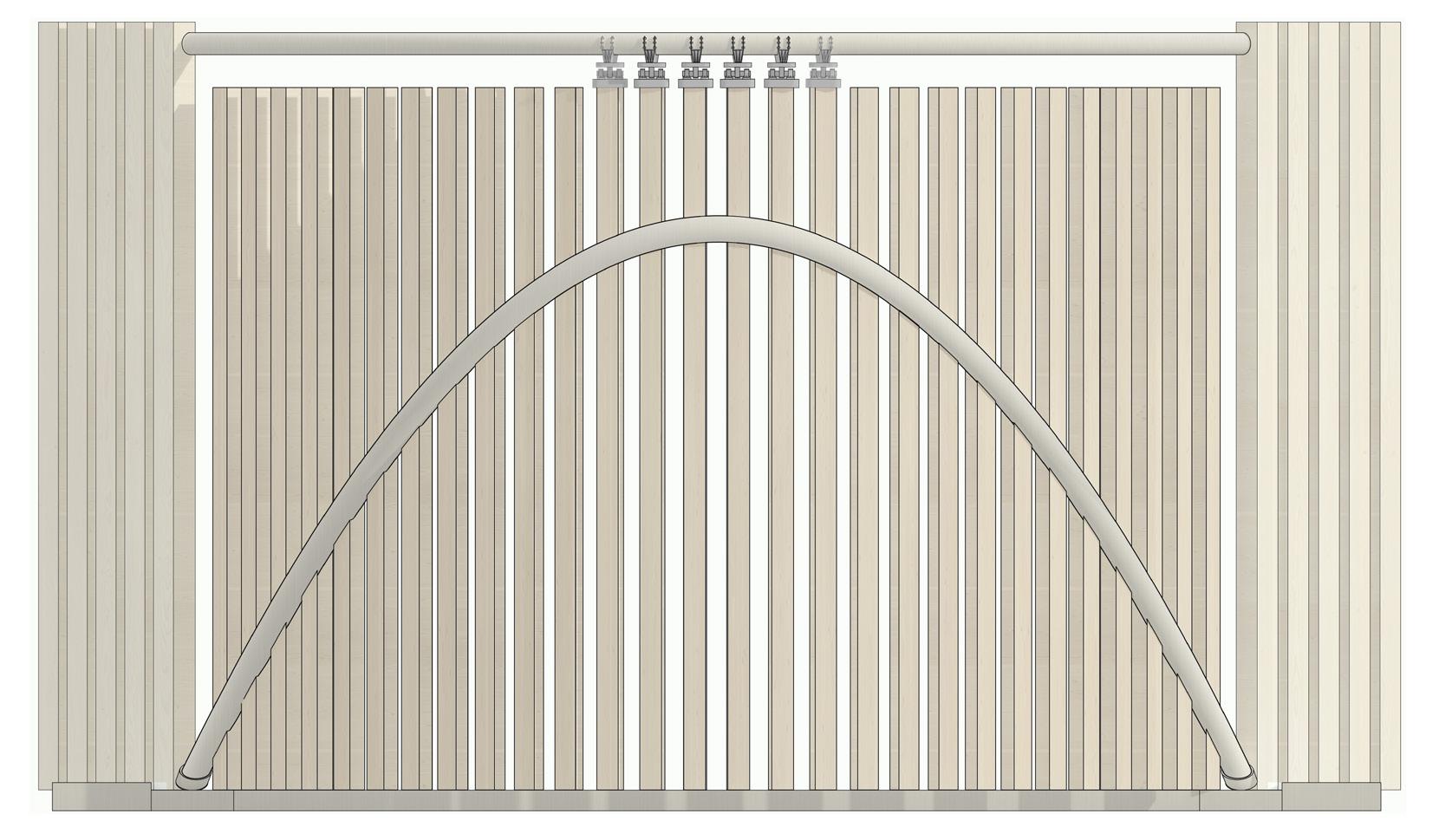

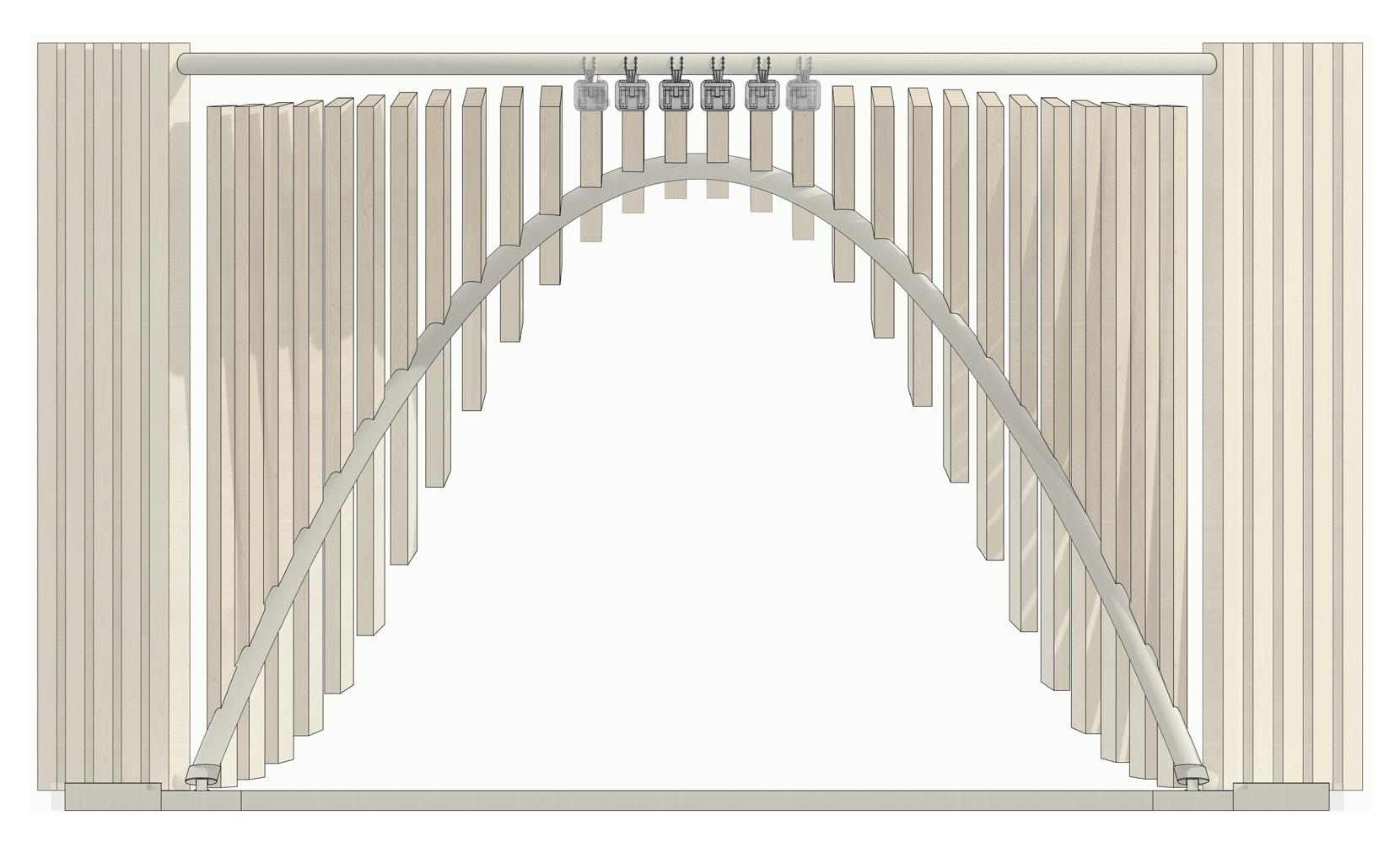
Elevation of fence in raised state (open)

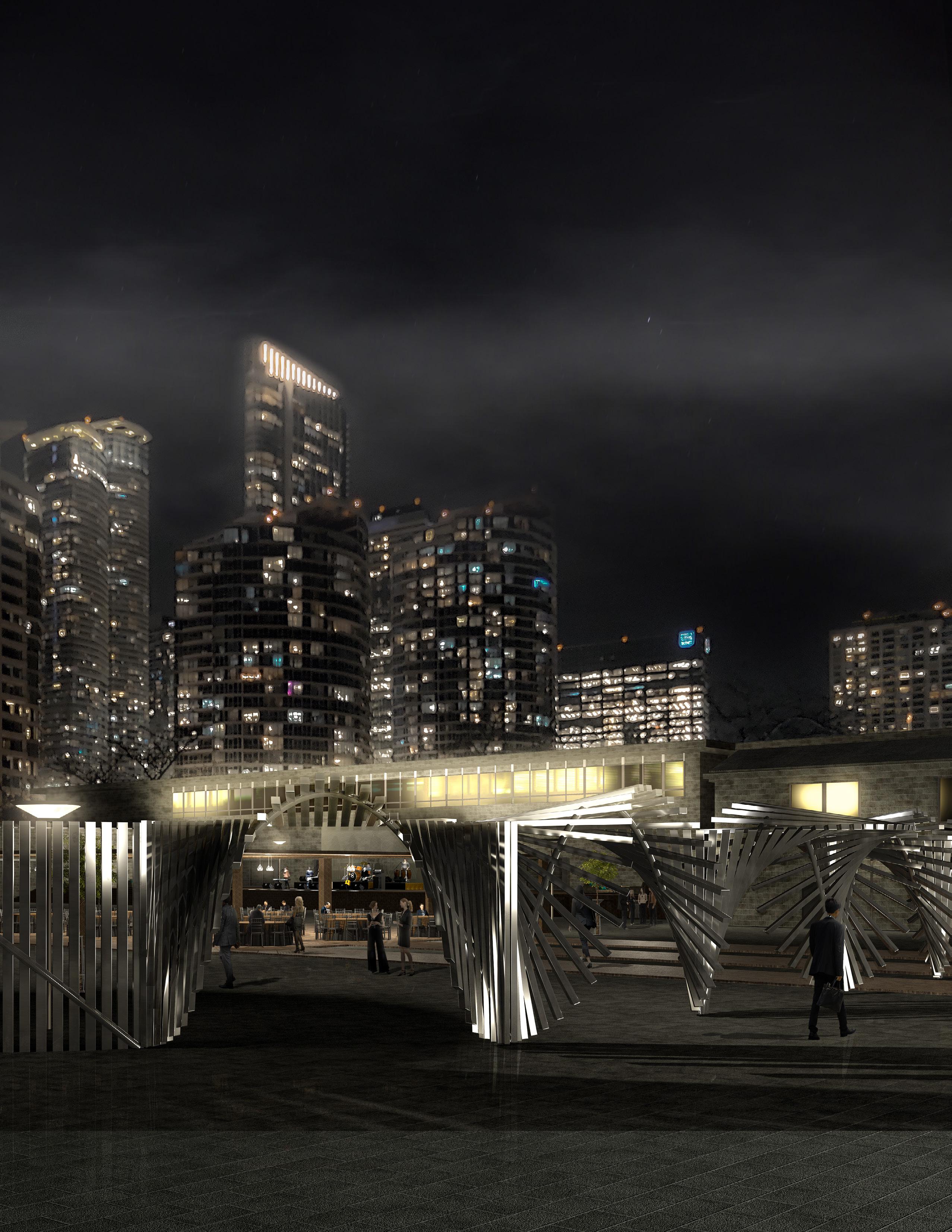
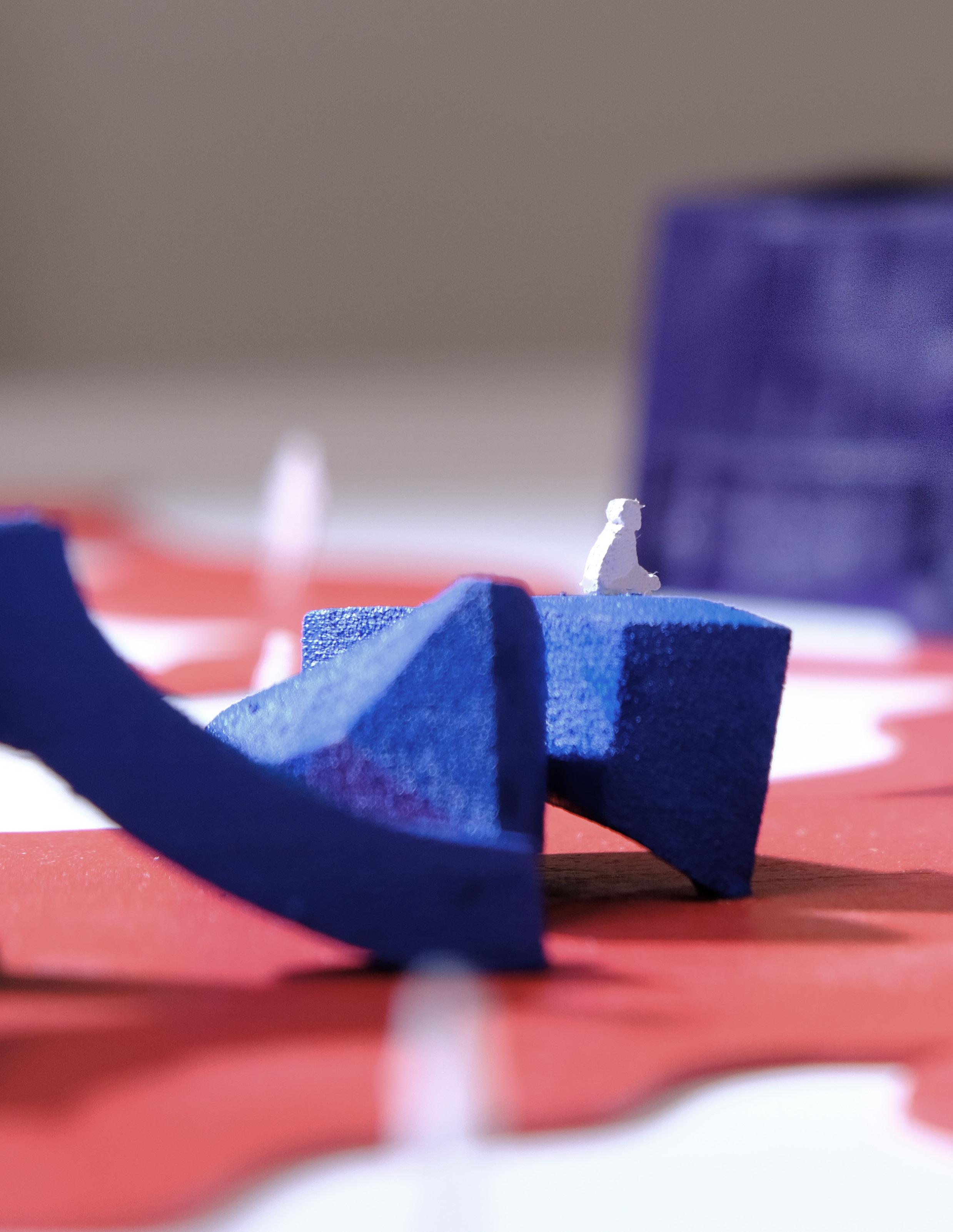
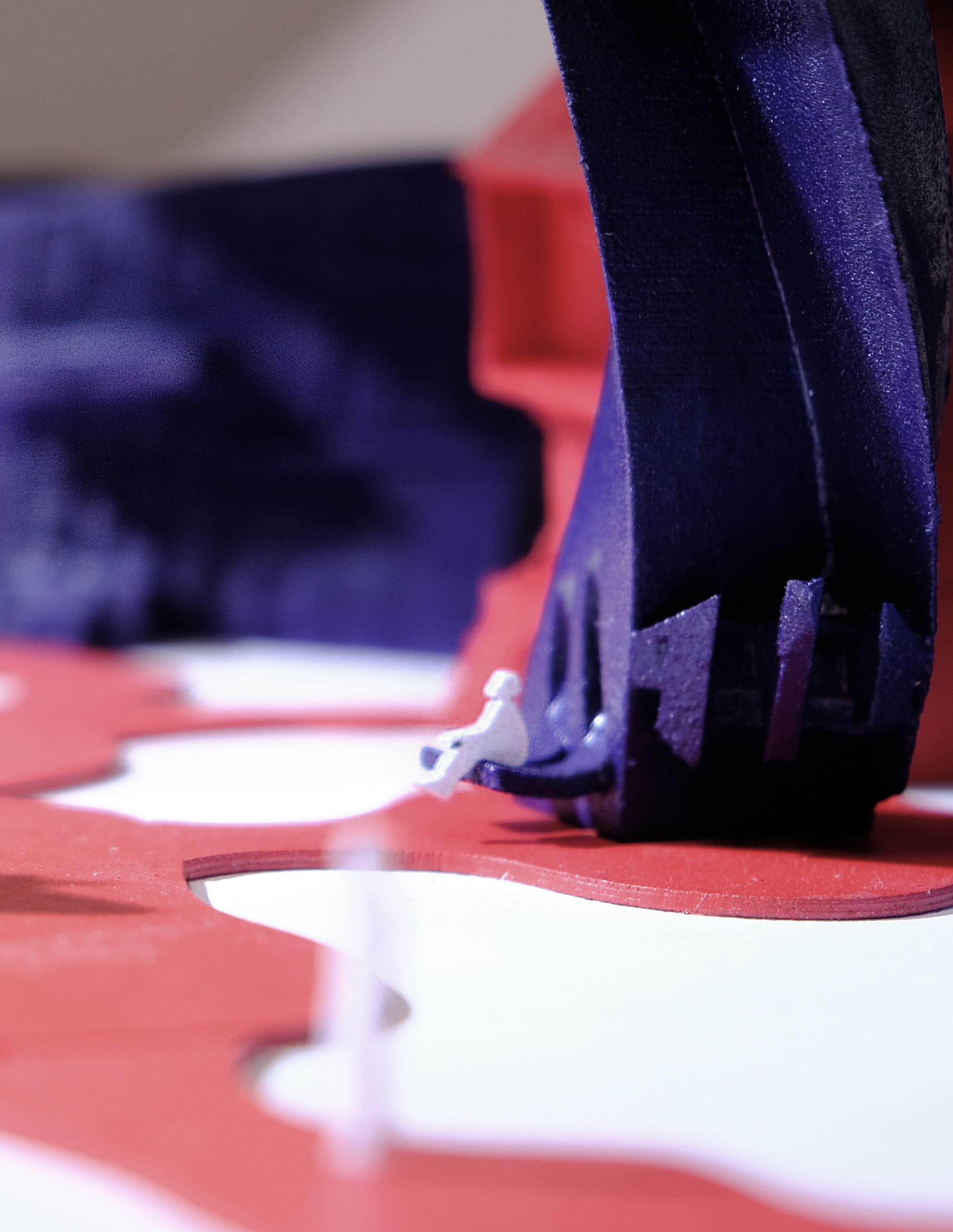
Year: 2022
Location: Toronto
Type: Academic Collaboration
Located at the intersection between Vaughan road and Winona drive, this food market in Toronto was inspired by Jelly as the foundation behind its design decisions and elements. The market's design methodolody and form influence were guided by the physical and material properties of Jelly as its various forms of distortions were applied onto the market. The market consists of an entire block within a neighborhood and includes a variety of spaces which allows it to function as an all-inclusive space for the community.
*Work done in collaboration with Huzaifa Chughtai consists of physical model-making, and market design. Diagram of design methodolody and Jelly model testing was done by me.
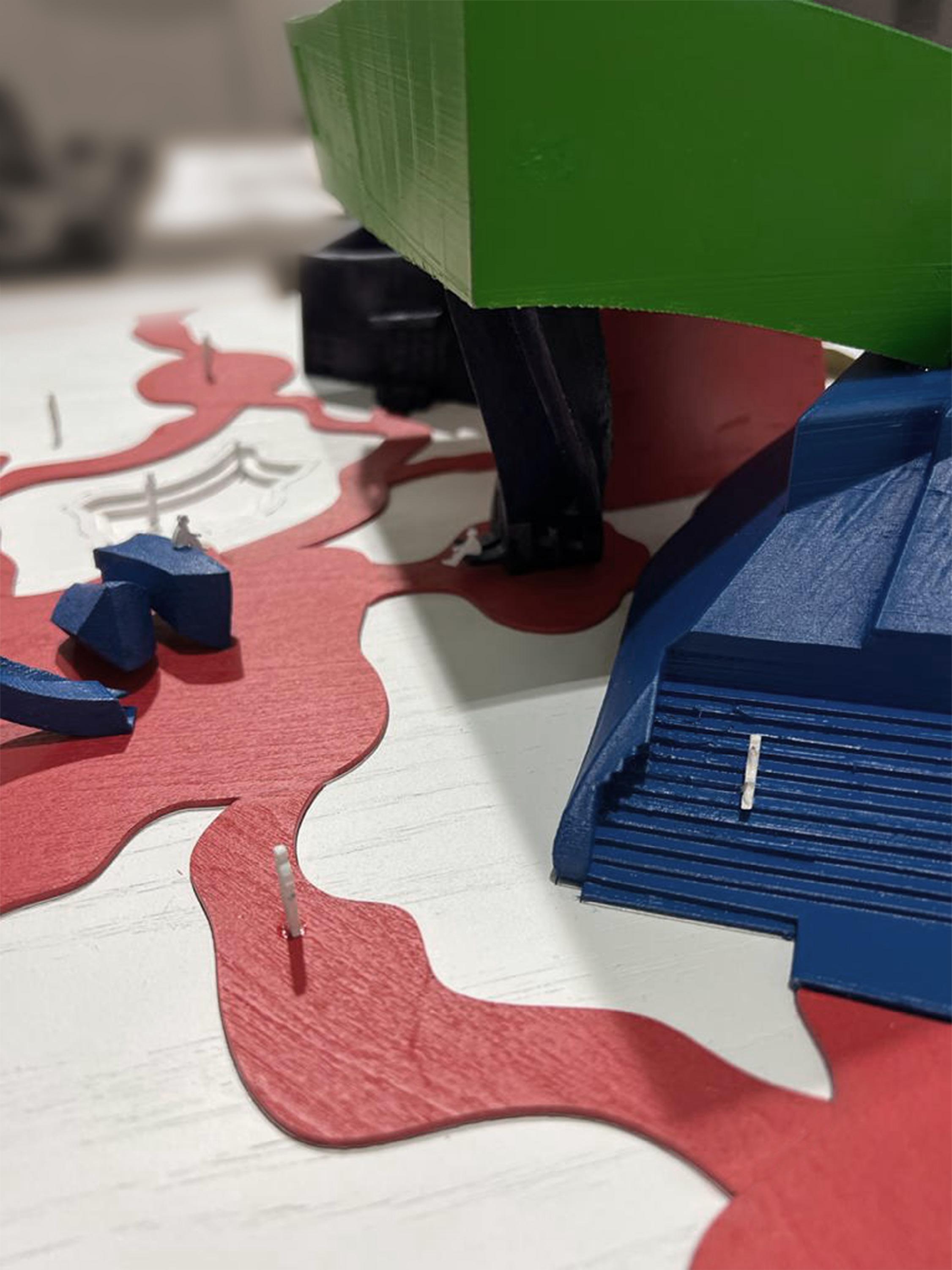
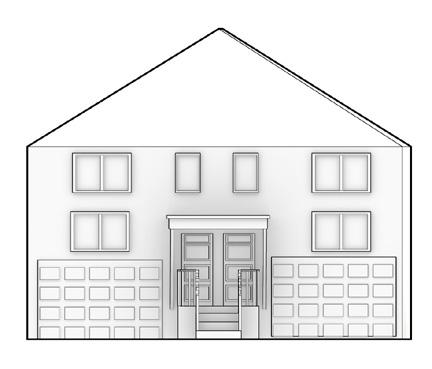
No Distortion
3 Different Jelly combinations were tested by experimenting with the amount of Gelatin, Water and Glycerin used in each test. The degree of distortion of the jelly informed the shape and distortion of the buildings and elements in the market.
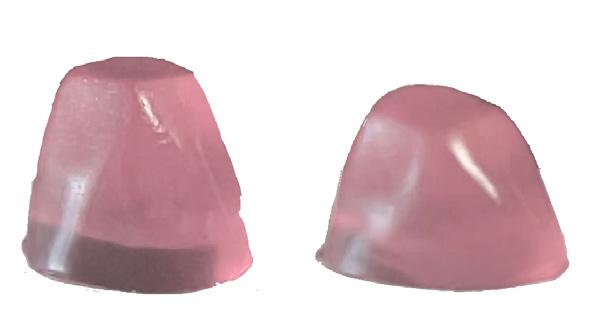
2 Packs of Gelatin
200ml Water
50ml Glycerin
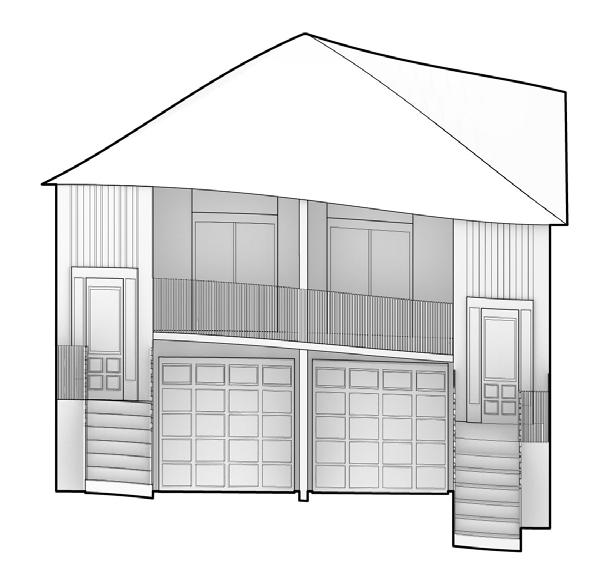
These model images are comprised of an experimental jelly glycerin model. Its purpose was to examine the distortion and composition based on its size and volume
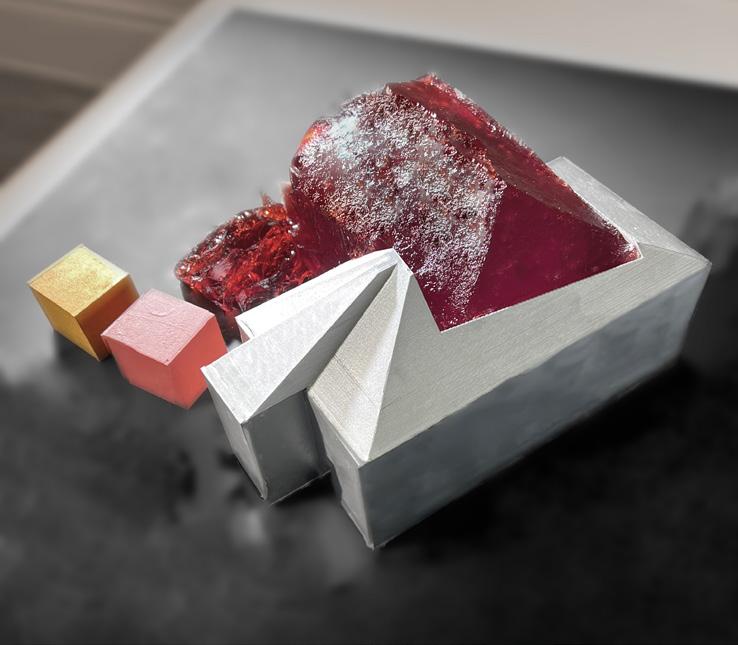
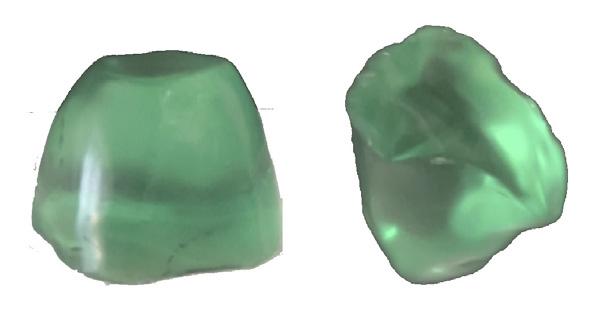
1 Pack of Gelatin
200ml Water
50ml Glycerin
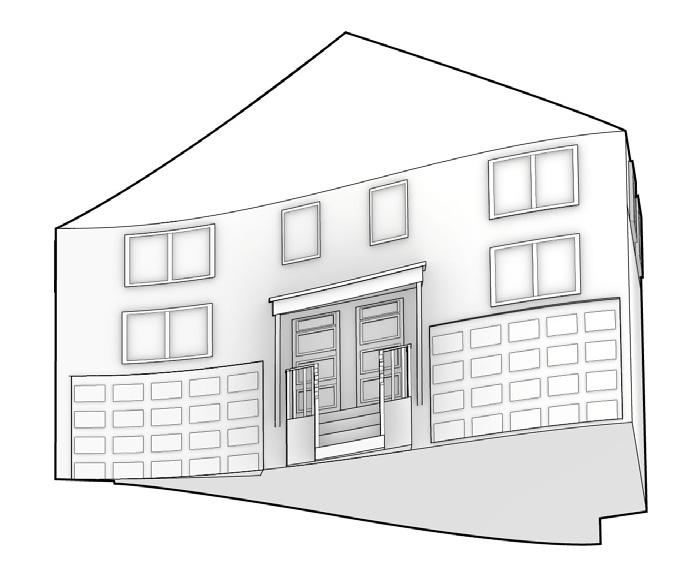

1/2 Pack of Gelatin
200ml Water
0ml Glycerin
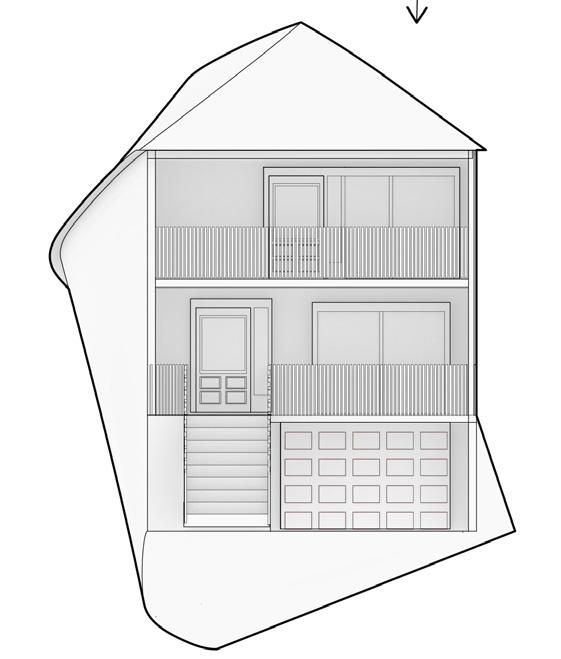

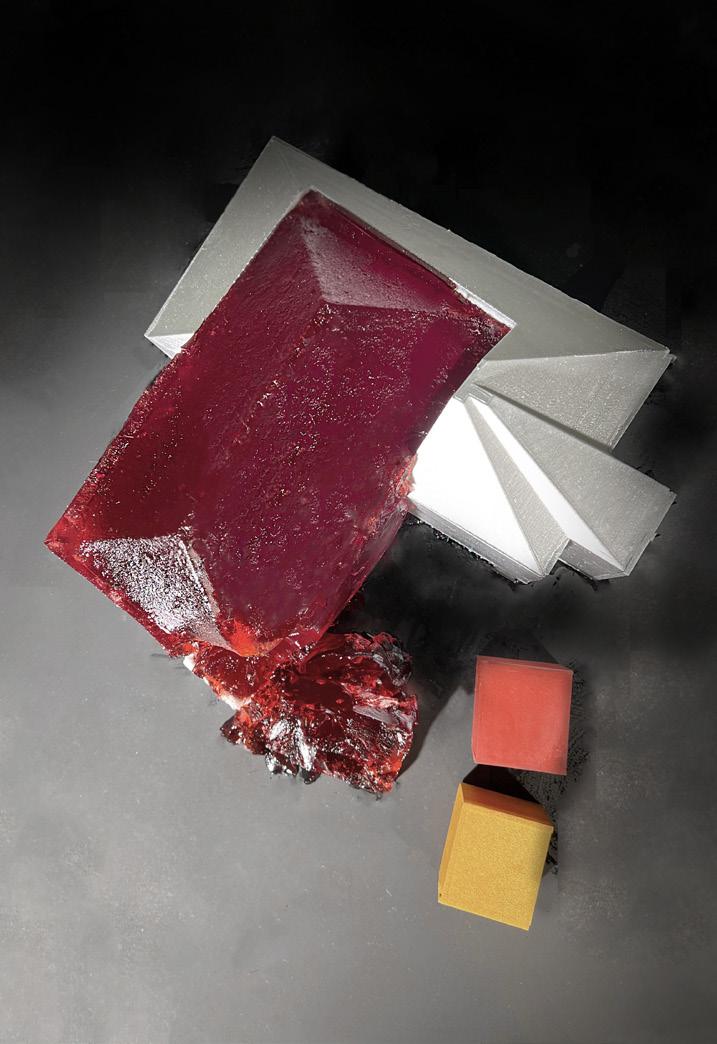
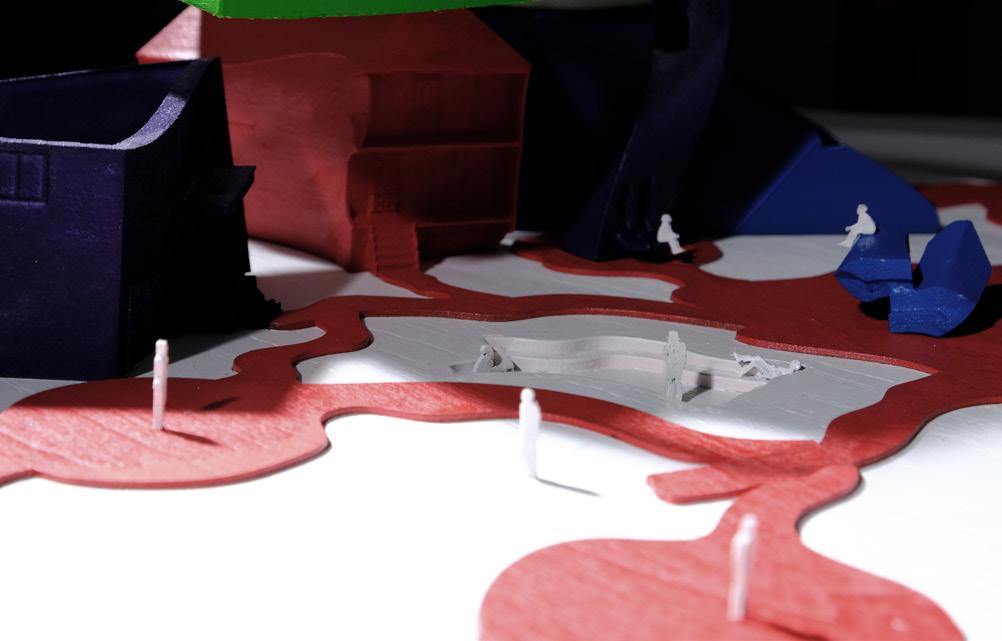
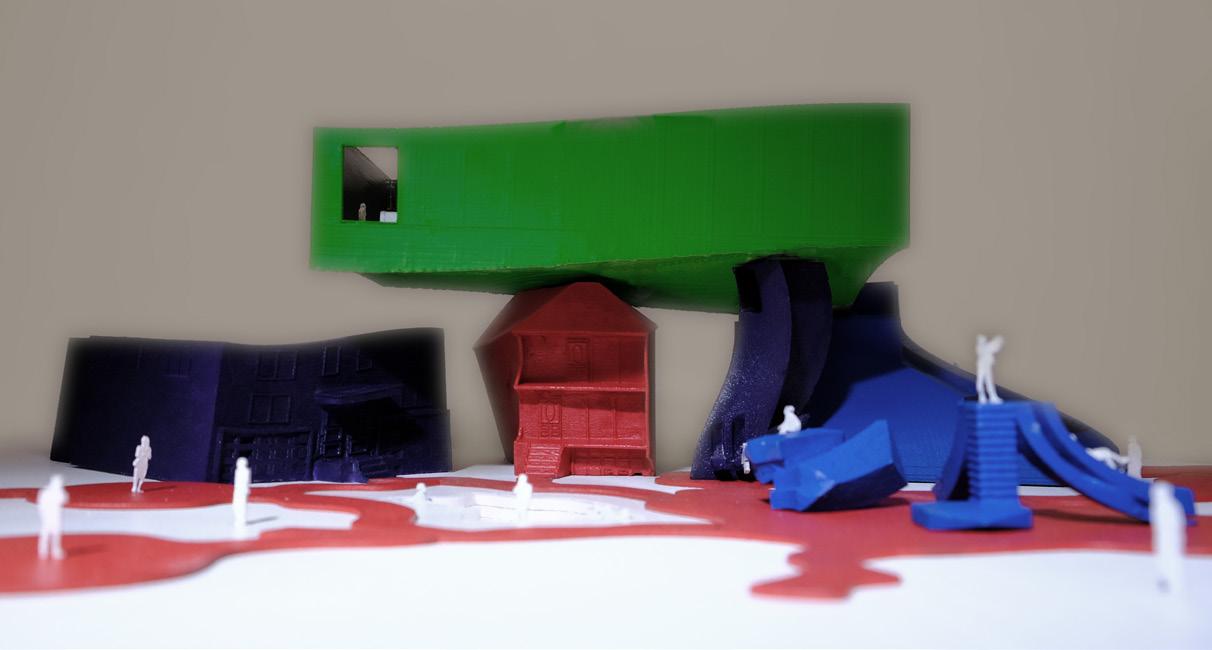
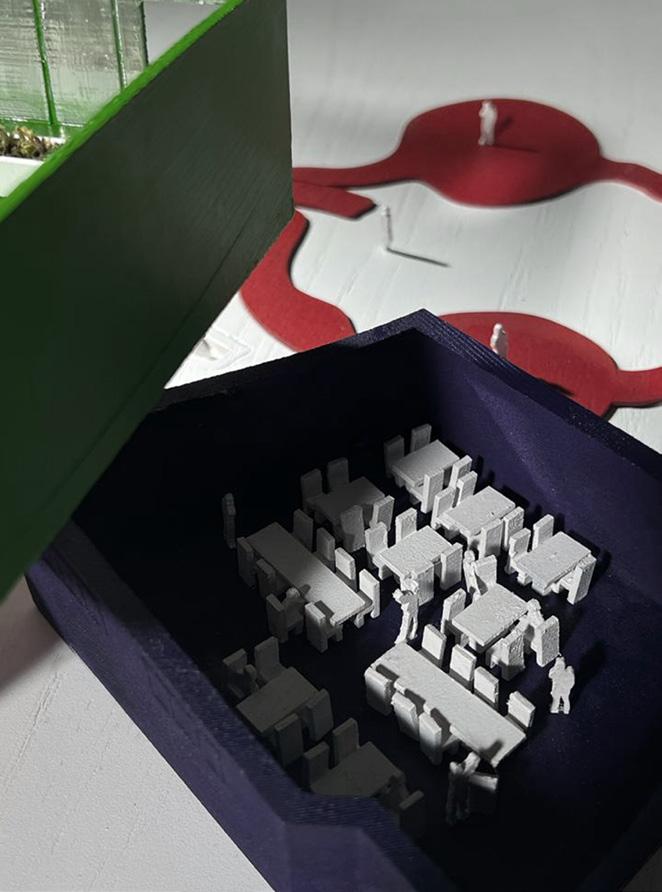

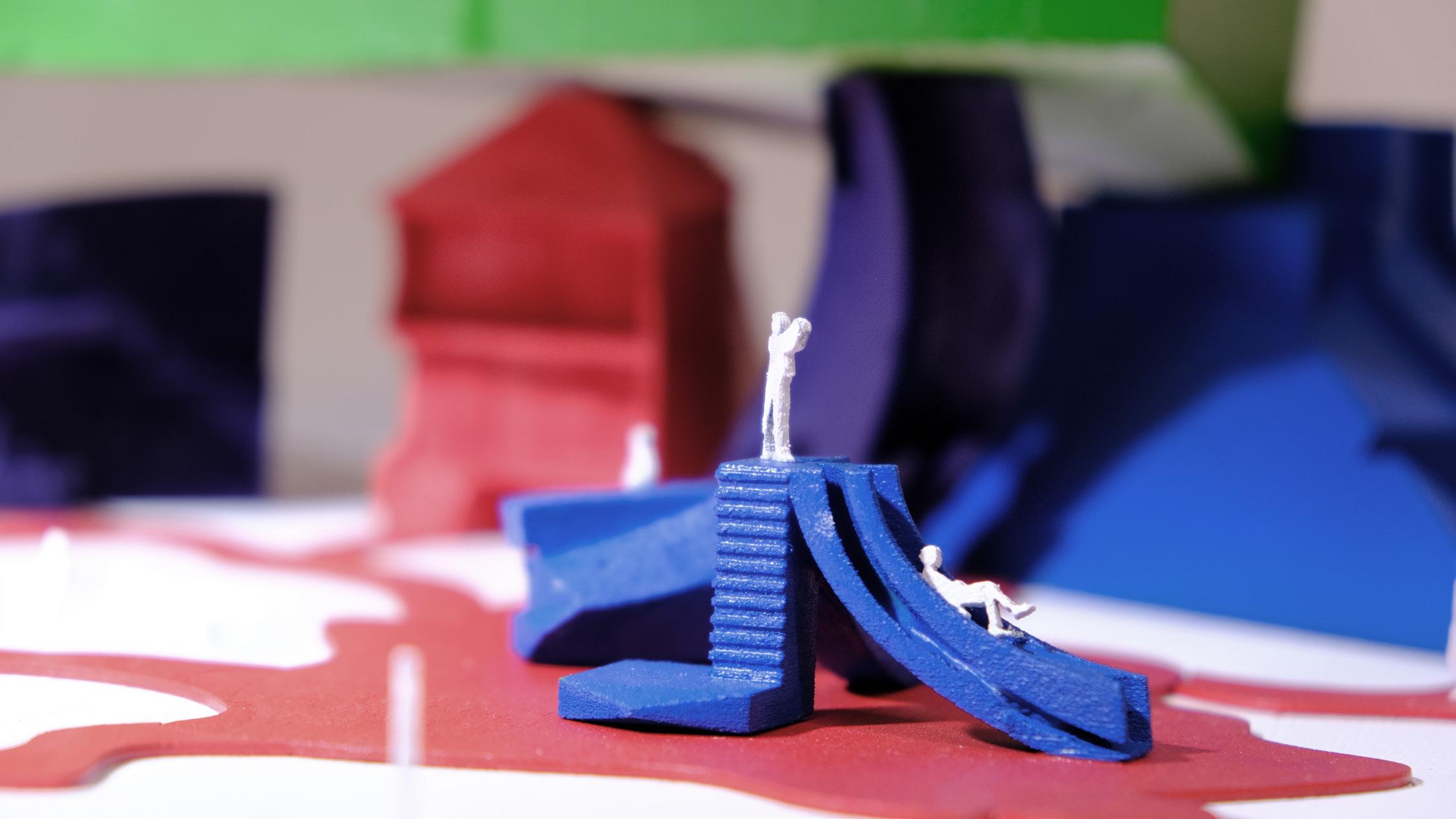
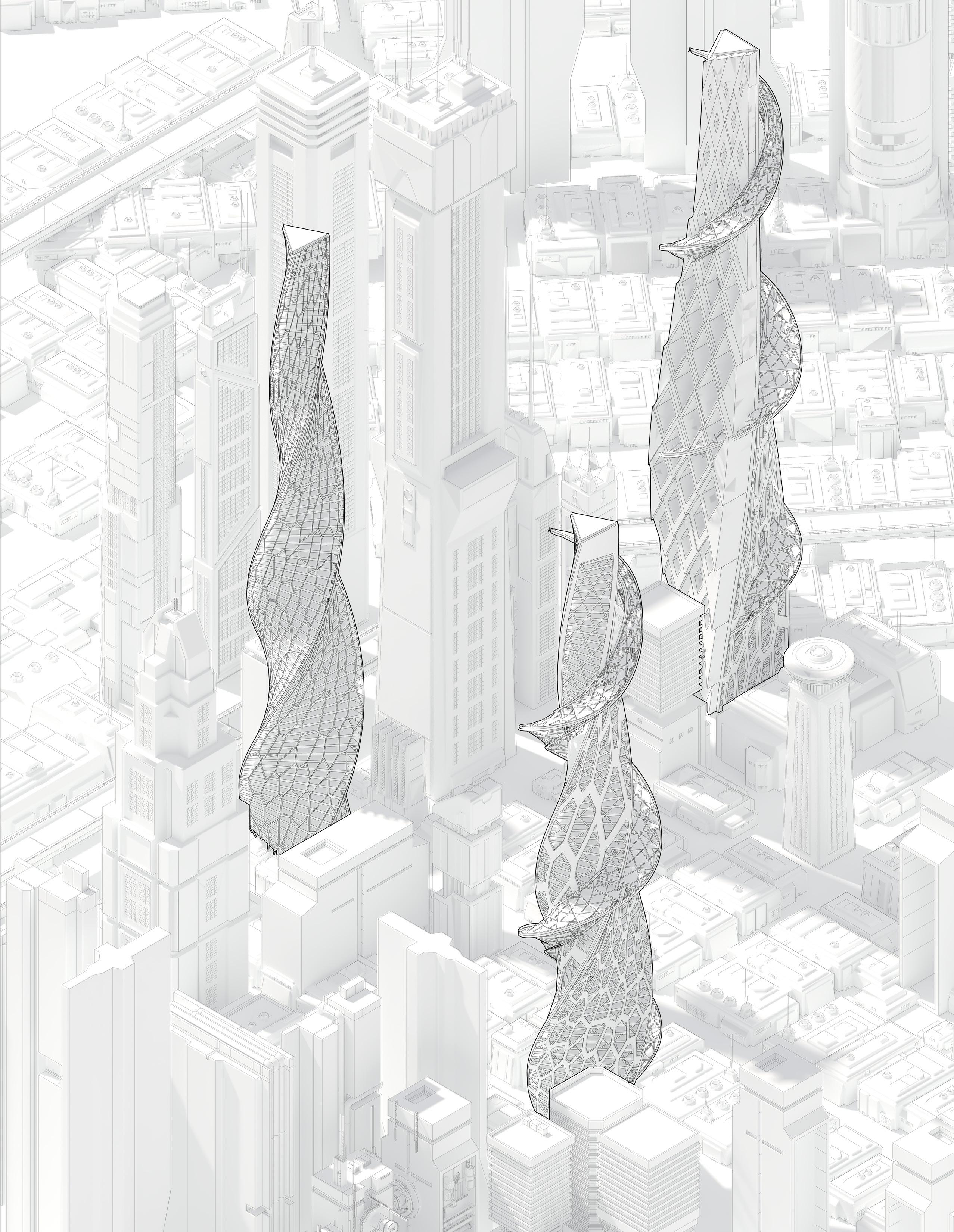
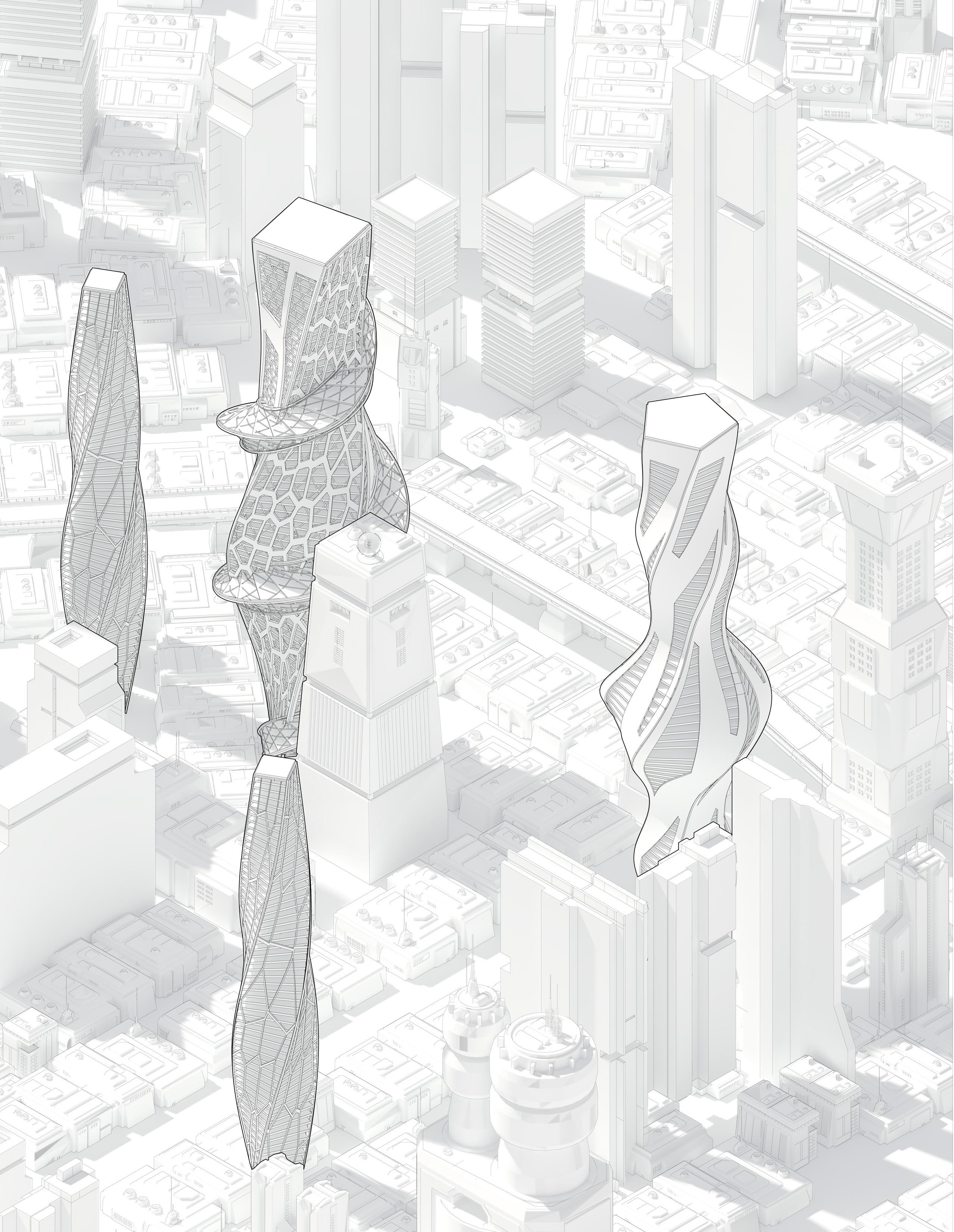
Year: 2021 Location: Toronto
This project consisted of the creation of multiple parametric tower iterations through grasshopper's parametric design capabilities. Ultimately the tower design language and elements were propelled by the idea of a futuristic cyber-punk-like setting. This informed elements such as the diamond facade shaped openings on the tower's exterior as I envision a bustling metropolis of flying vehicles entering and exiting through the facade.
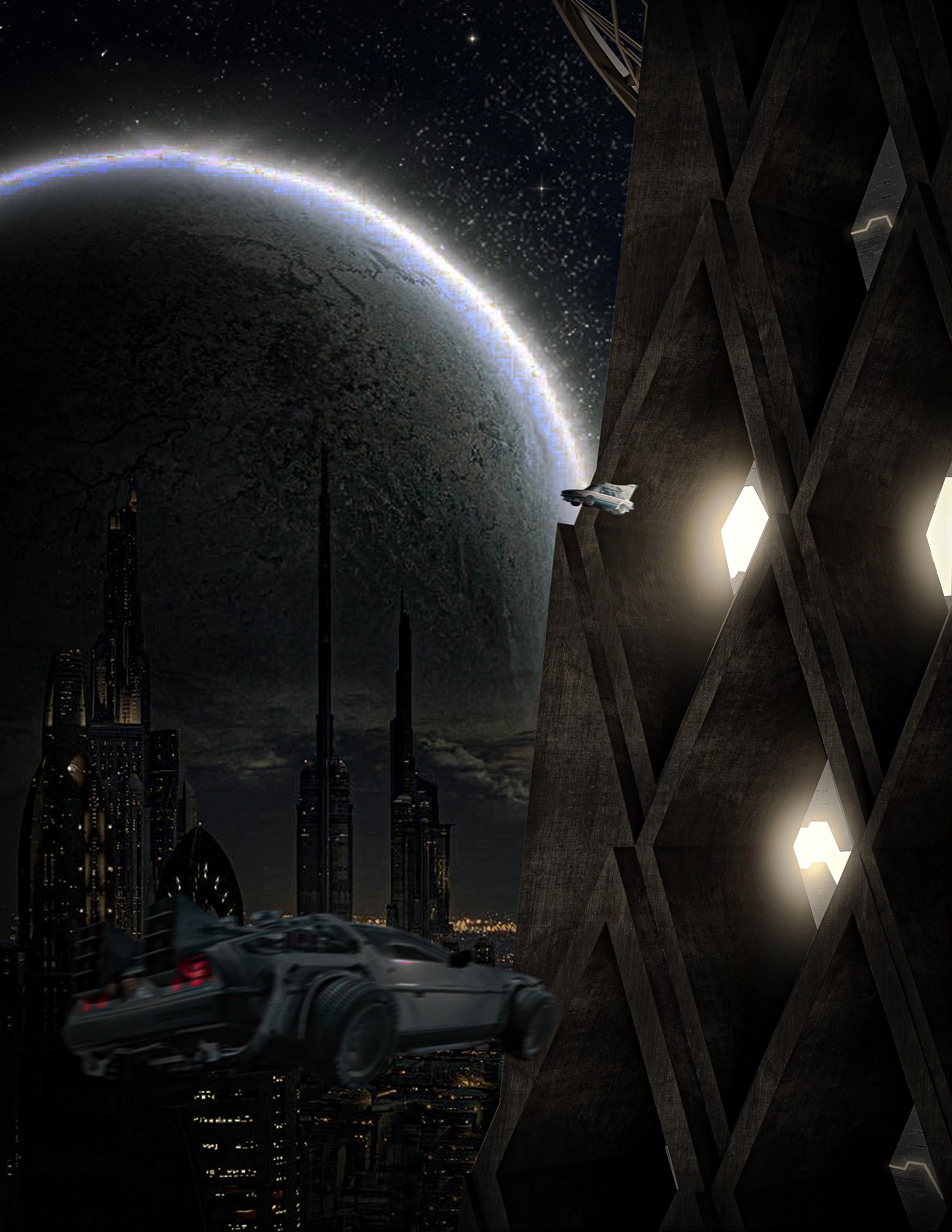
(A): Facade Component Assembly
(B): Tower Geometry Method Diagram
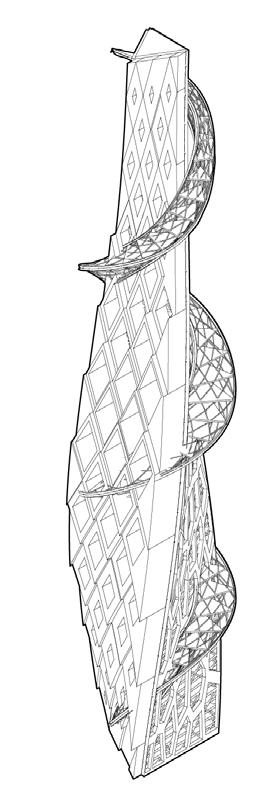
Final Step: Repeat steps 1-5 for spiral secondary tower
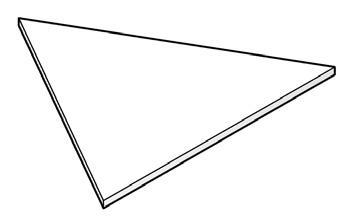
Step 1: Extruded polygon floor plate



Step 2: Increased floor plate number vertically through the z-axis and rotated structure



Step 3: Implemented graph mapper to distort tower structure









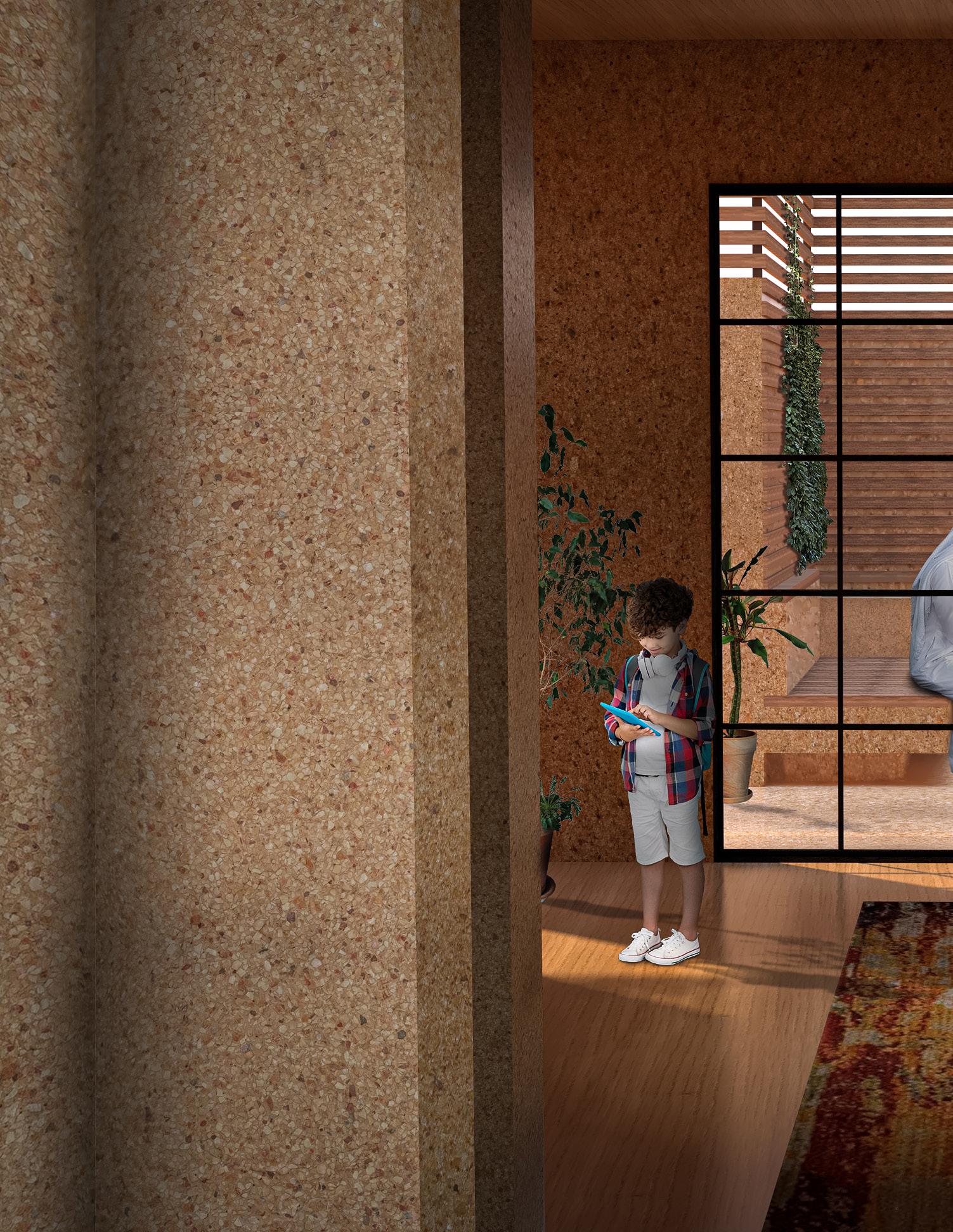
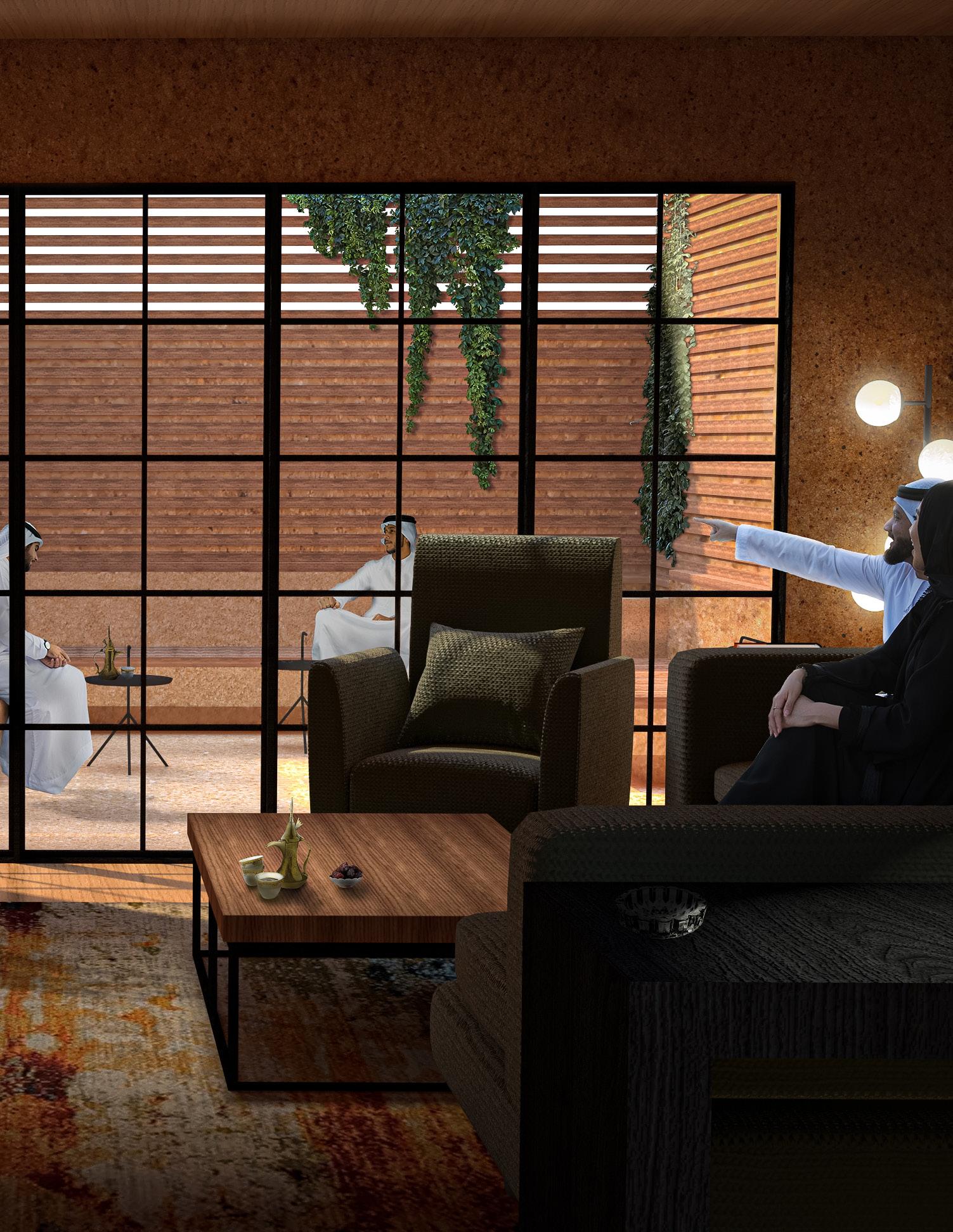
Year: 2022
Location: Riyadh, Saudi Arabia
Type: Professional
The 'Dewaniya' is a social gathering space and a key aspect of traditional Gulf Arab culture. It is a space where guests are received to socialize, play cards, debate or conduct business, however, it can also be used as a gathering space for the family. Typically, seating is often on the floor with cushions arranged in a square. For that reason we incorporated an outdoor seating bench square akin to a 'Dewaniya' sitdown. A Dewaniya is also typically, a room or tent, however, this project extends the idea of the 'Dewaniya' to an entire floor. As a Saudi-Arabian, most of memories and great times with my family and friends were based in my grandmother's 'Dewaniya'.
*All renderings/drawings in this project were done by me and the design process/proposal of the dewaniya was done in collaboration with firm '3N Jeddah'.
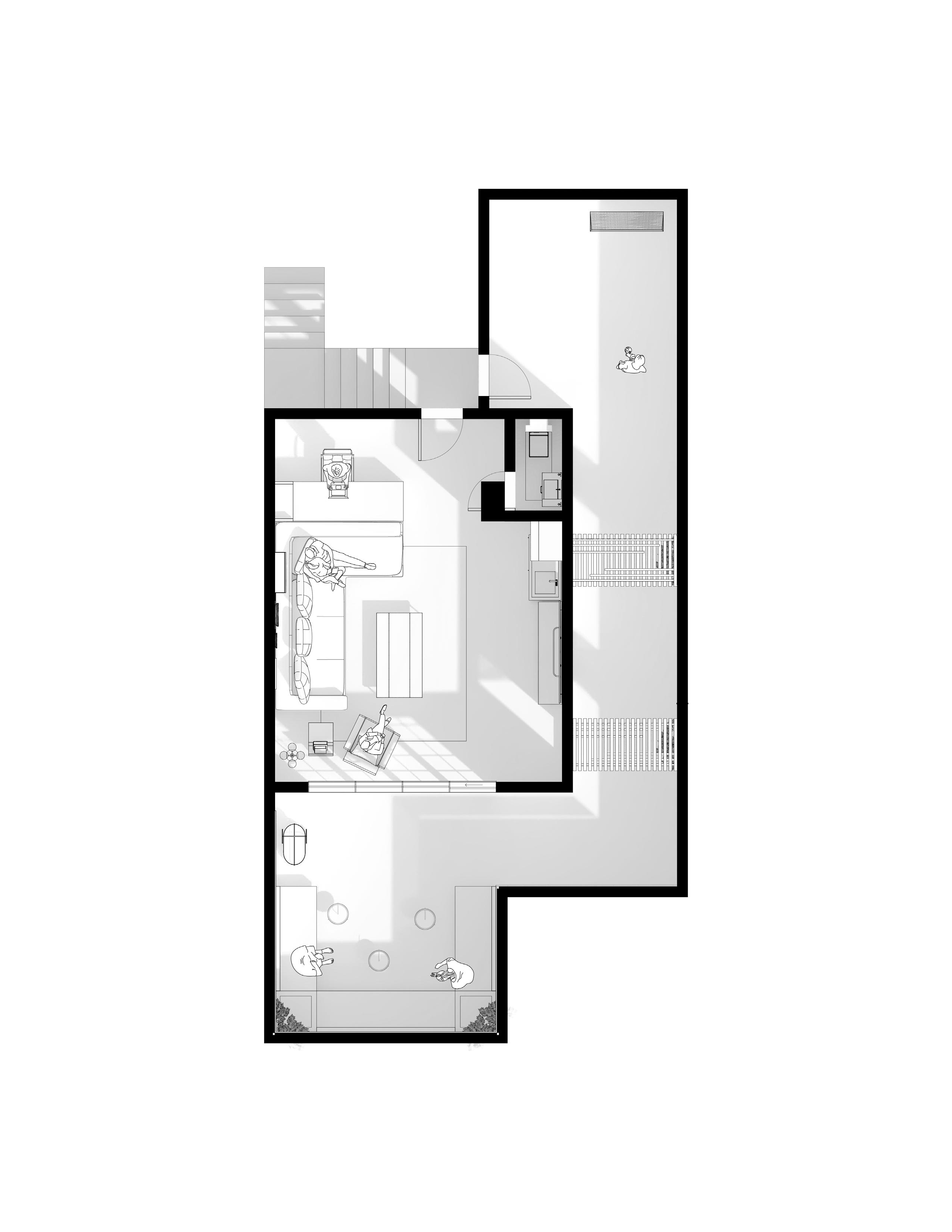
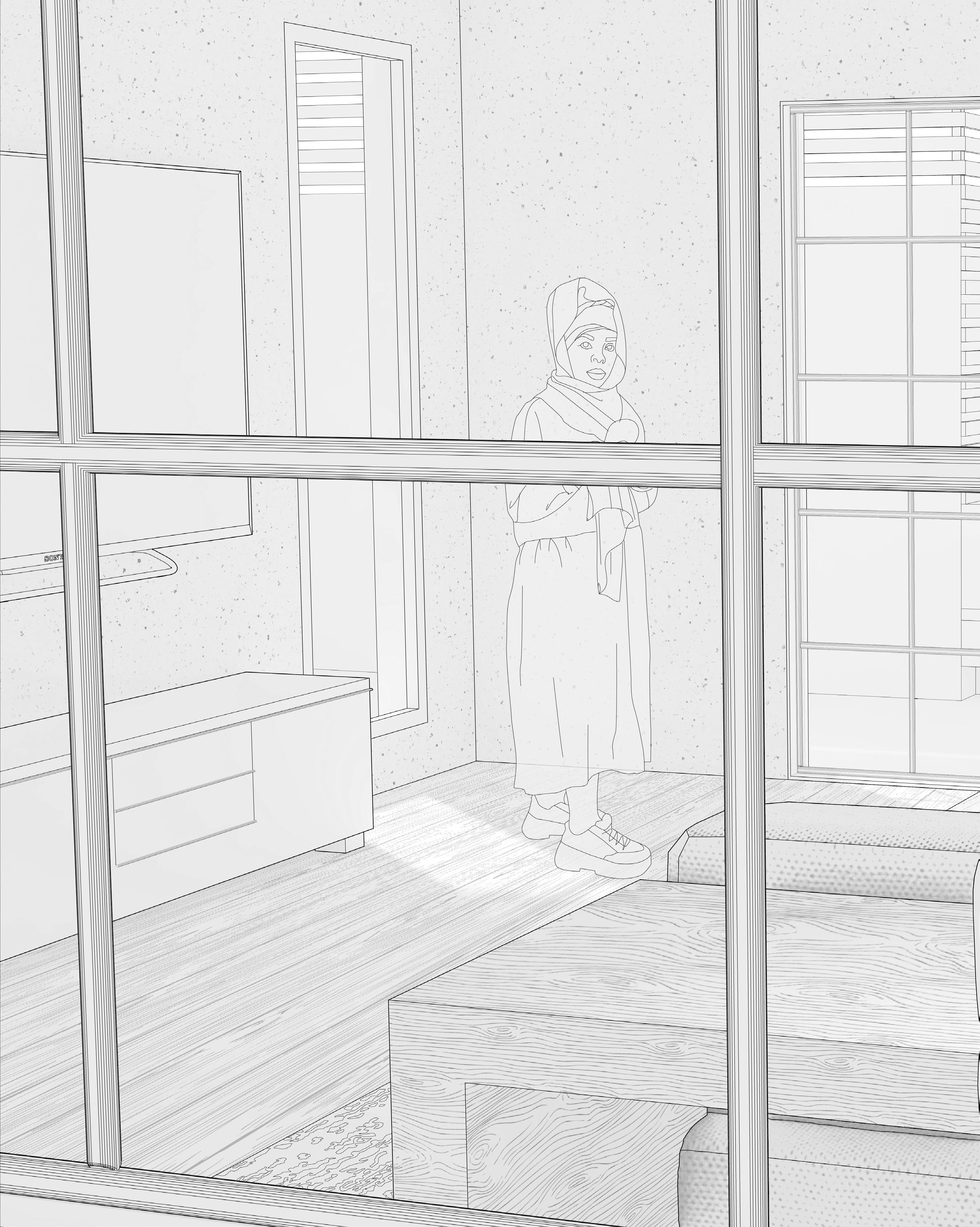
"The space, where fond memories
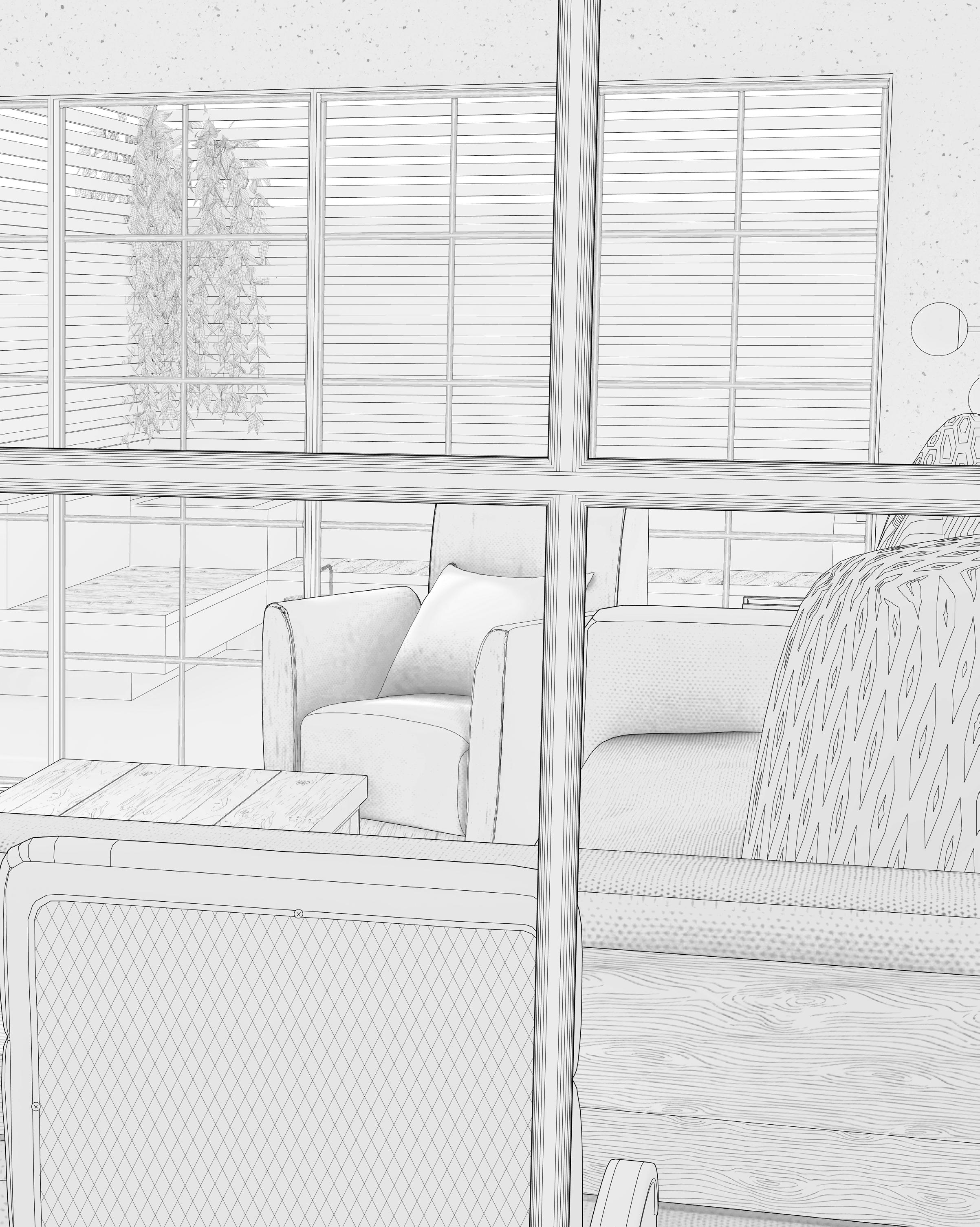
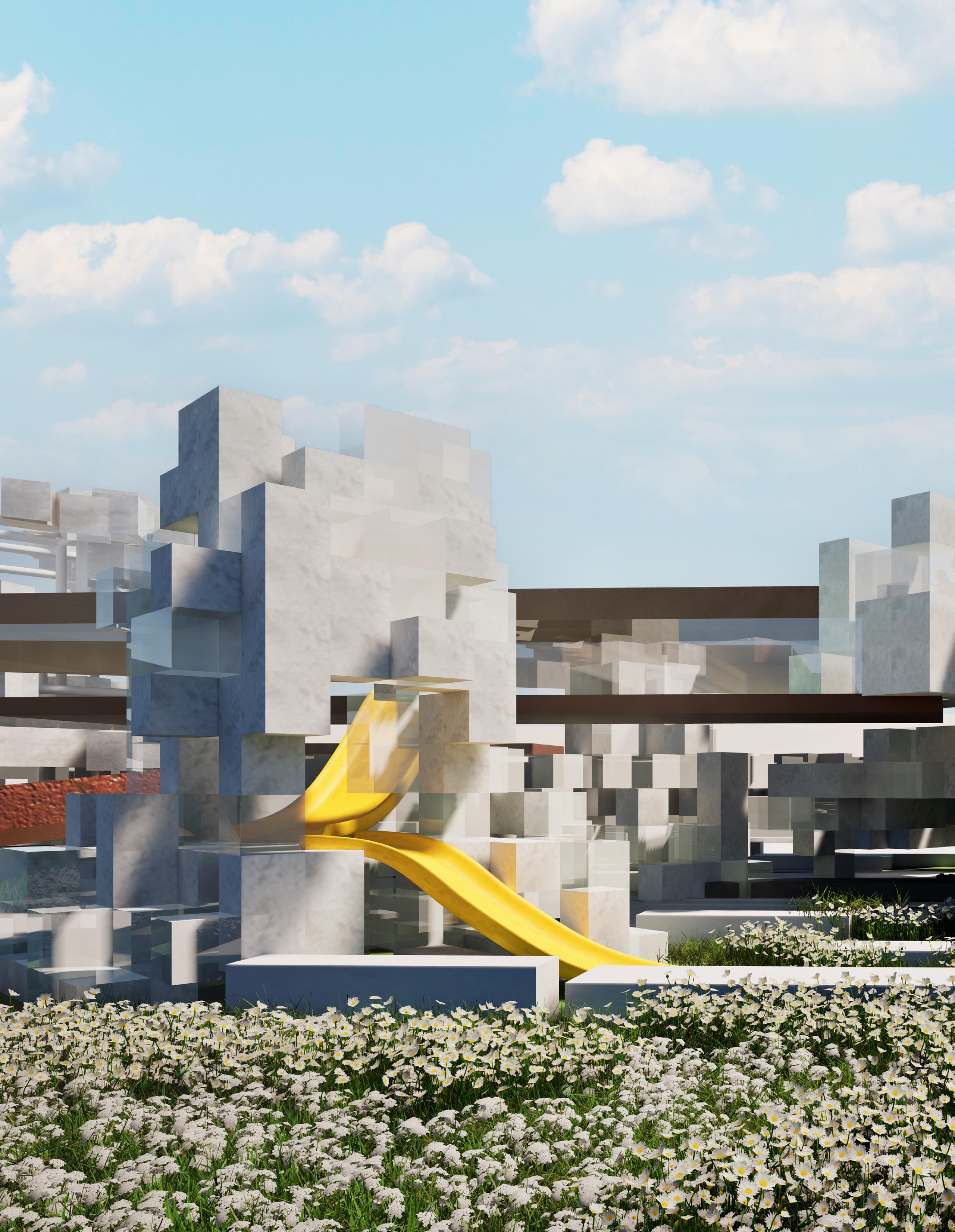
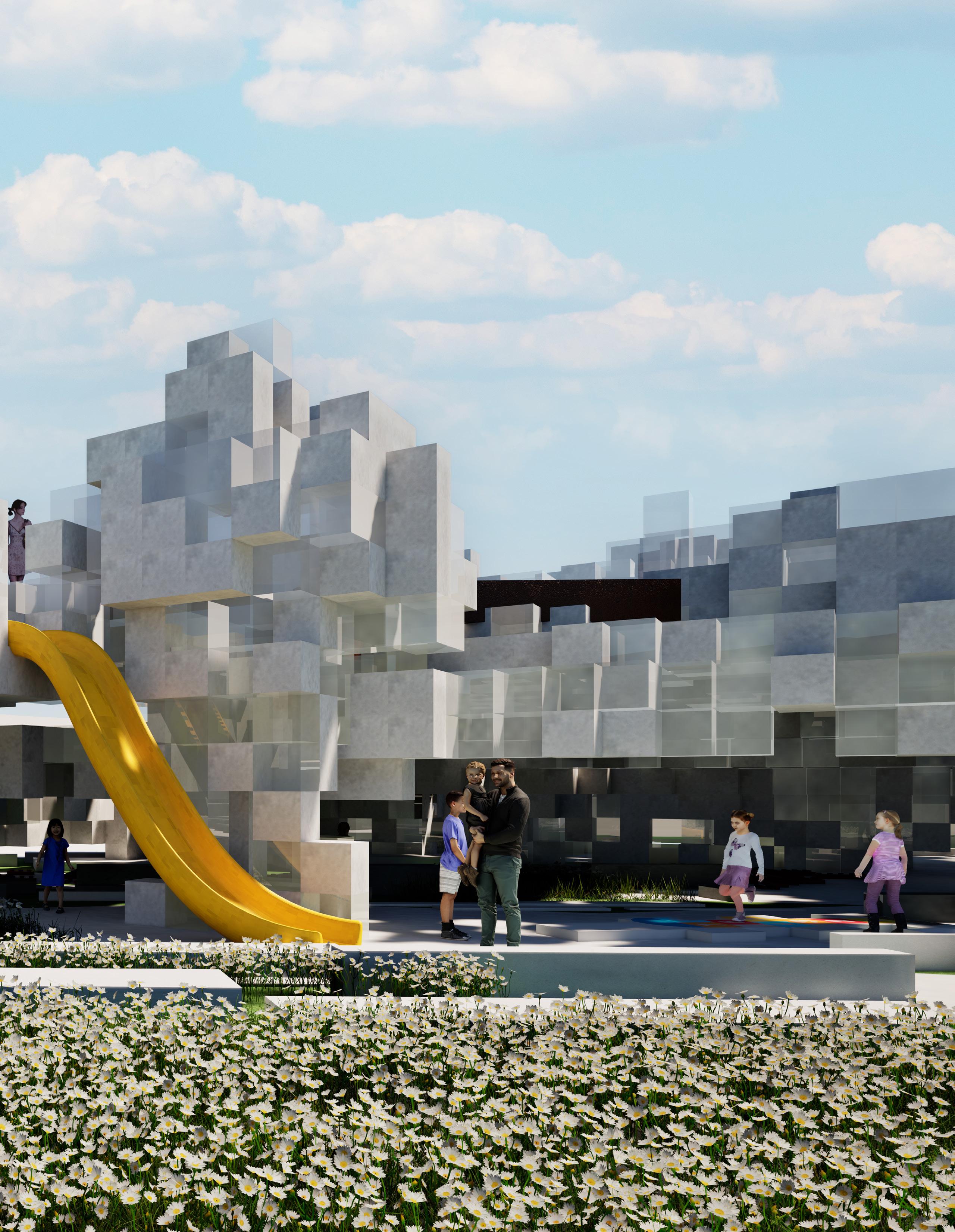
Year: 2024 Location: London, UK
Type: Academic Collaboration
MACHINE LEARNING DATA-DRIVEN URBAN PROJECT
Urban environments often cater primarily to adults, with limited spaces designed specifically for children. Additionally, traditional educational institutions such as schools, while important, may not fully support the holistic development of children, especially when considering the alarming 25% increase in child school absences in the UK over the past year. There is a growing need to reimagine urban spaces to create integrated environments that serve as alternative learning spaces for children. The idea is to concentrate on the trajectory between the house and the school in Brent borough to transform the journey with physical, emotional, social, and cognitive growth that go beyond academic learning. By applying spatial analytics based on data and machine learning models, I aim to remove factors inhibiting children’s development while innovatively addressing the urgent social, accessibility, educational, and healthrelated issues faced by children in London. Miniminds Metropolis rethinks the school-home journey as an experience that facilitate holistic development in children by fostering self-directed exploration and providing rich experiential learning opportunities.
*Work done in collaboration with Praphulla Thaliyakkattil consists of renders and masterplan diagram. Model making, diagrams and drawings were done by myself.
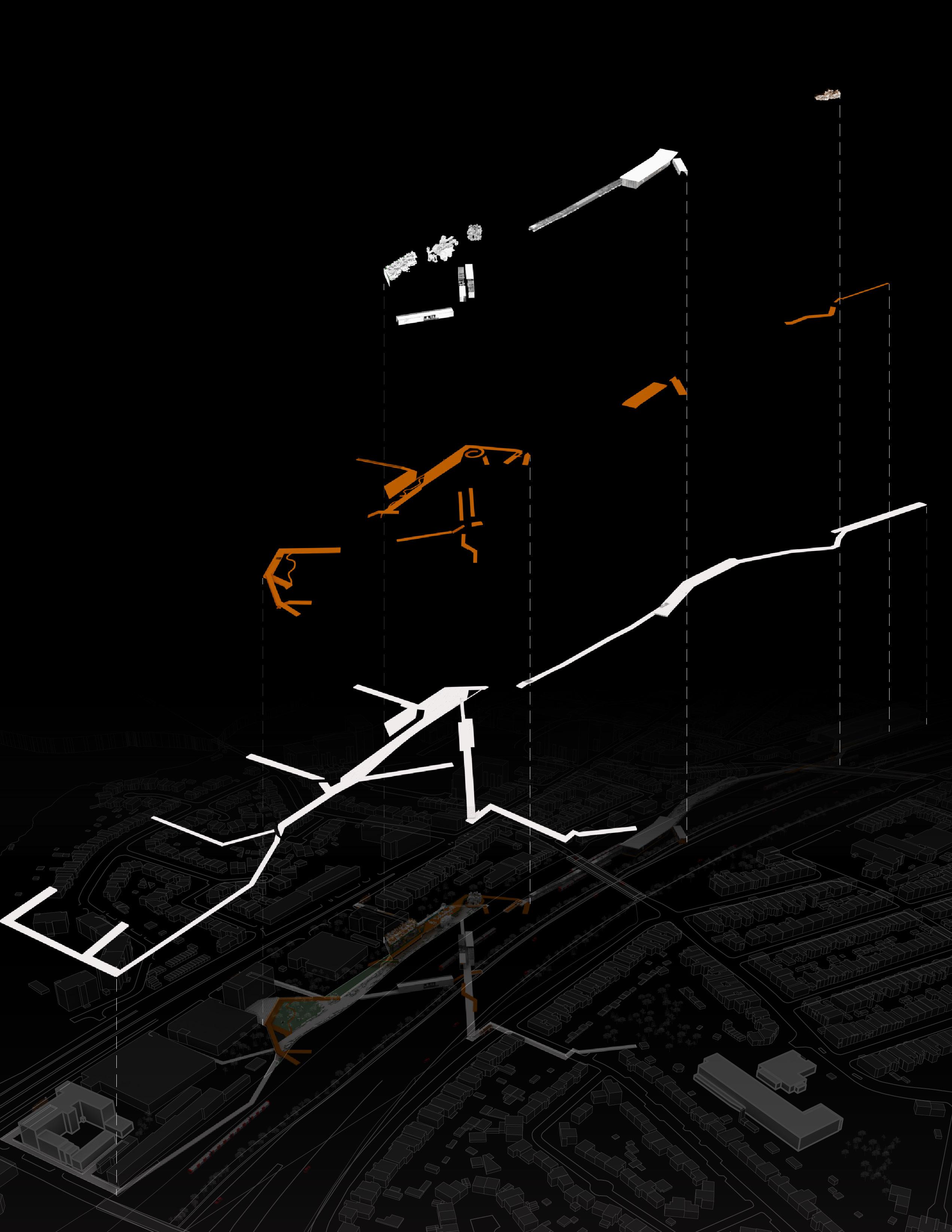
Our site can be segmented into two pathways and the intevrentions integrated throughout them. The main pathway is designed to provide safe and accessible circulation, connecting key educational areas while ensuring ease of movement. In contrast, the secondary pathway offers alternative routes and specialized functions that encourage exploration, play, and interaction with the natural environment.
Secondary Pathway
Provides different functions and programs
Main Pathway
Provides Main Circulation throughout site
Data Proposed Cantilevered Pathways
Data Proposed Neighborhood Pathways
PRIMARY SCHOOL
DESIGNED PATHWAYS
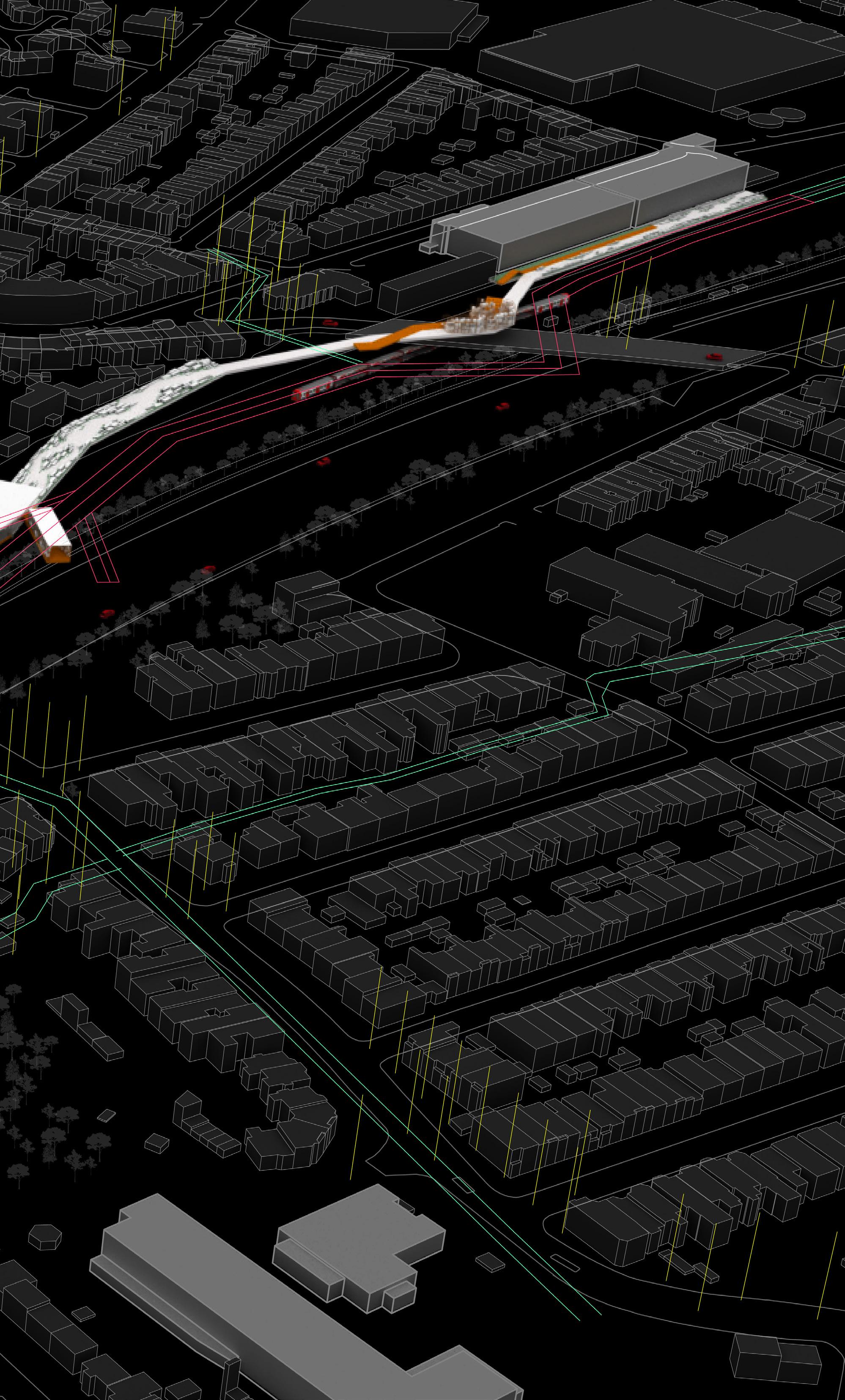
K-MEANS POINTS
DATA PROPOSED CANTILEVERED PATHWAYS

BEIS
PRIMARY SCHOOL
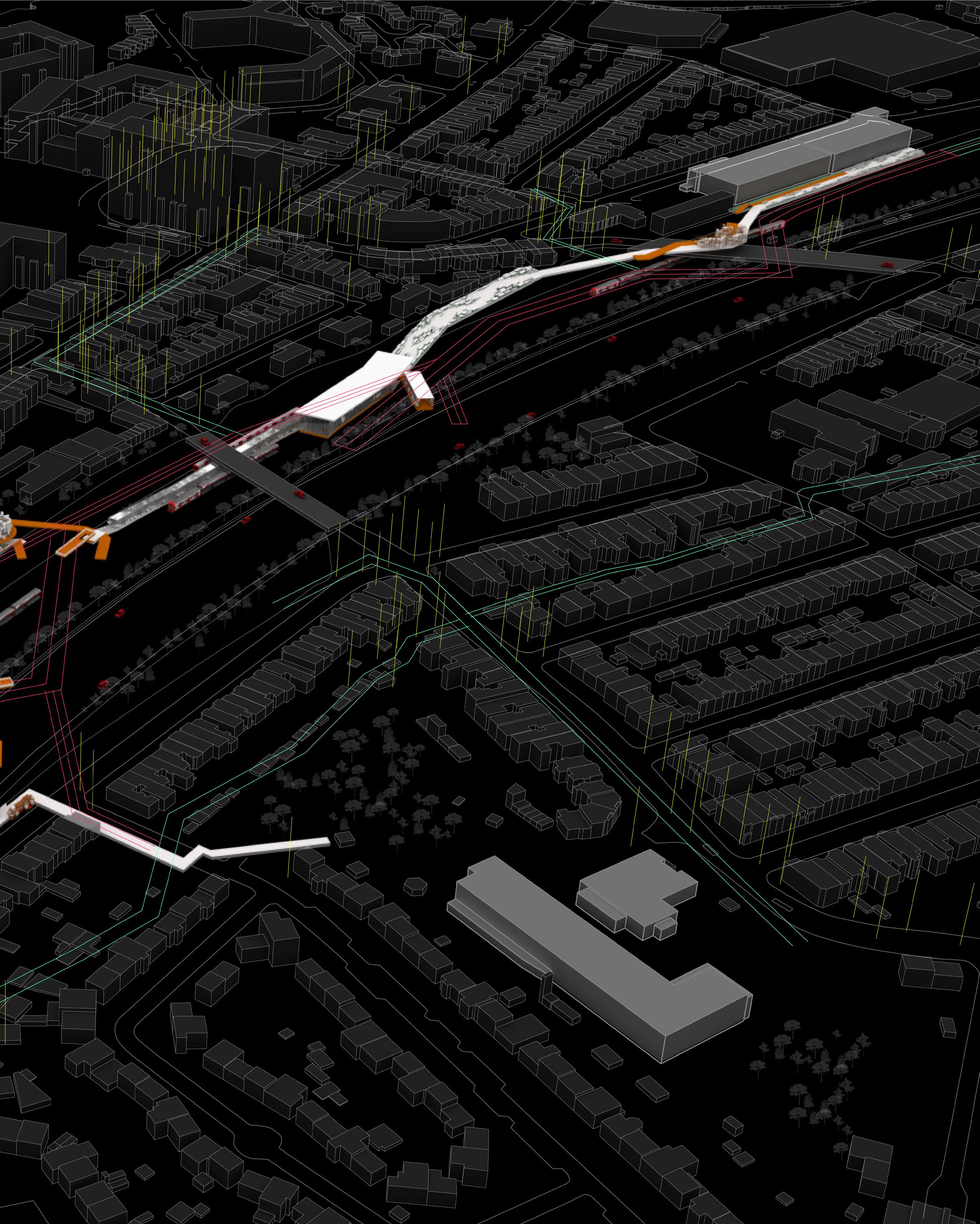
ALL-AGE INCLUSIVE ZONE 1
DATA PROPOSED NEIGHBORHOOD PATHWAYS
ALL-AGE INCLUSIVE ZONE 2
These are the placements of our interventions in the context of our site. The interventions and spaces are placed throughout our site in a balanced manner to mimic the concept of experiencing a day in school as one progresses through the site.
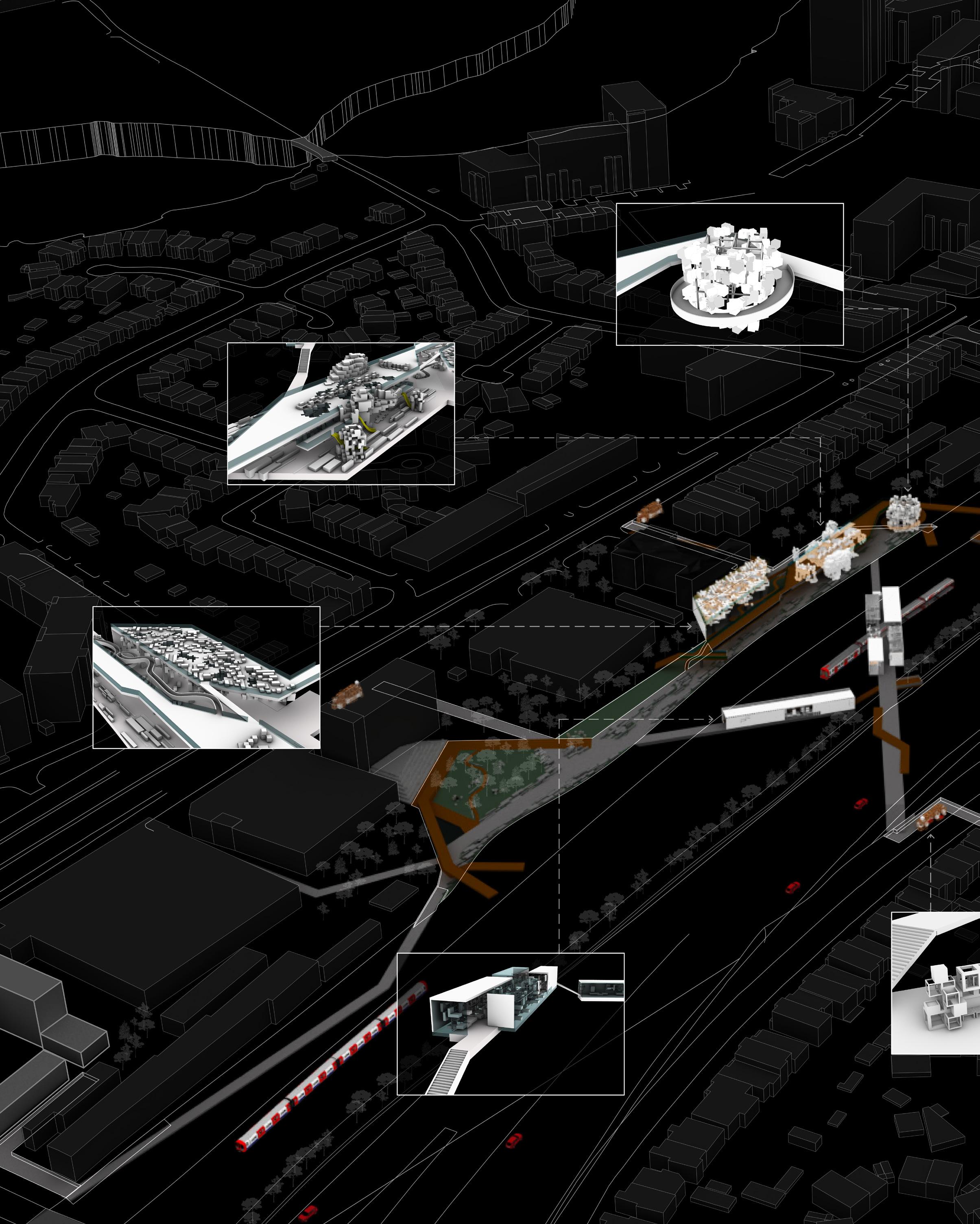
PLAYGROUND
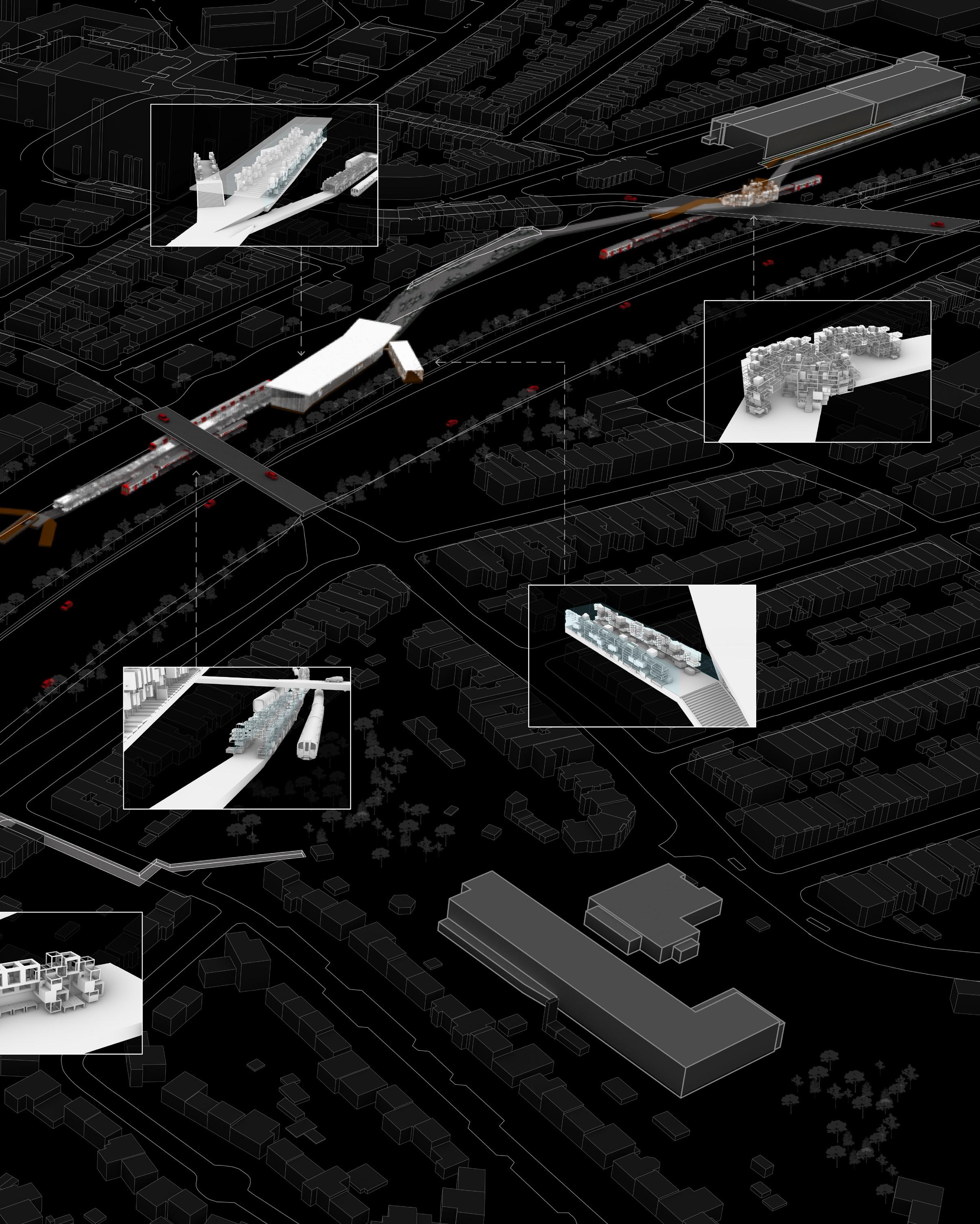
The first all-age inclusive zone consists of the:
• Tropical Garden
• Sensory Sanctuary
• Farming Tunnel
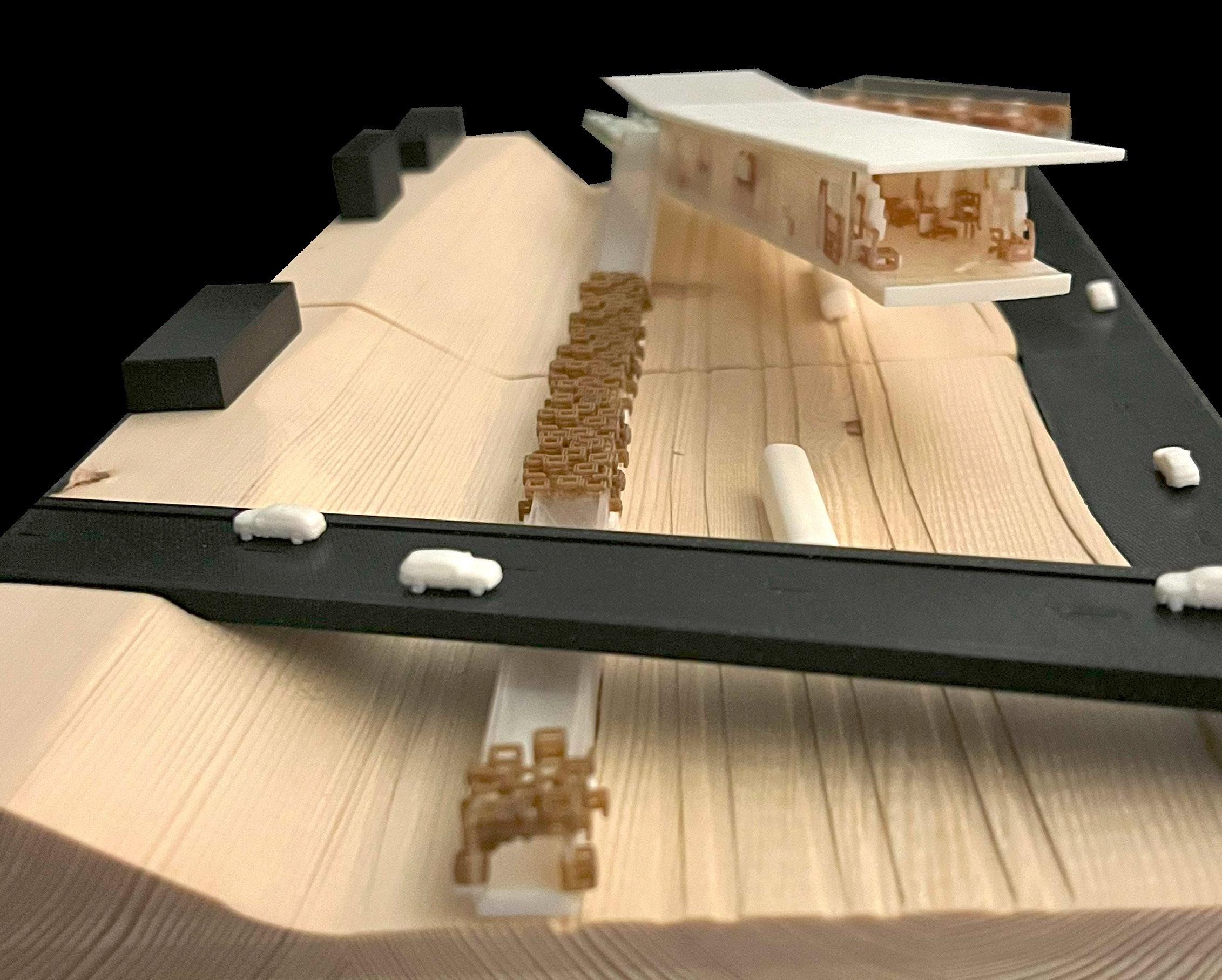
This zone is suited to all age groups due to the environmental, social, and agricultural educational aspects.

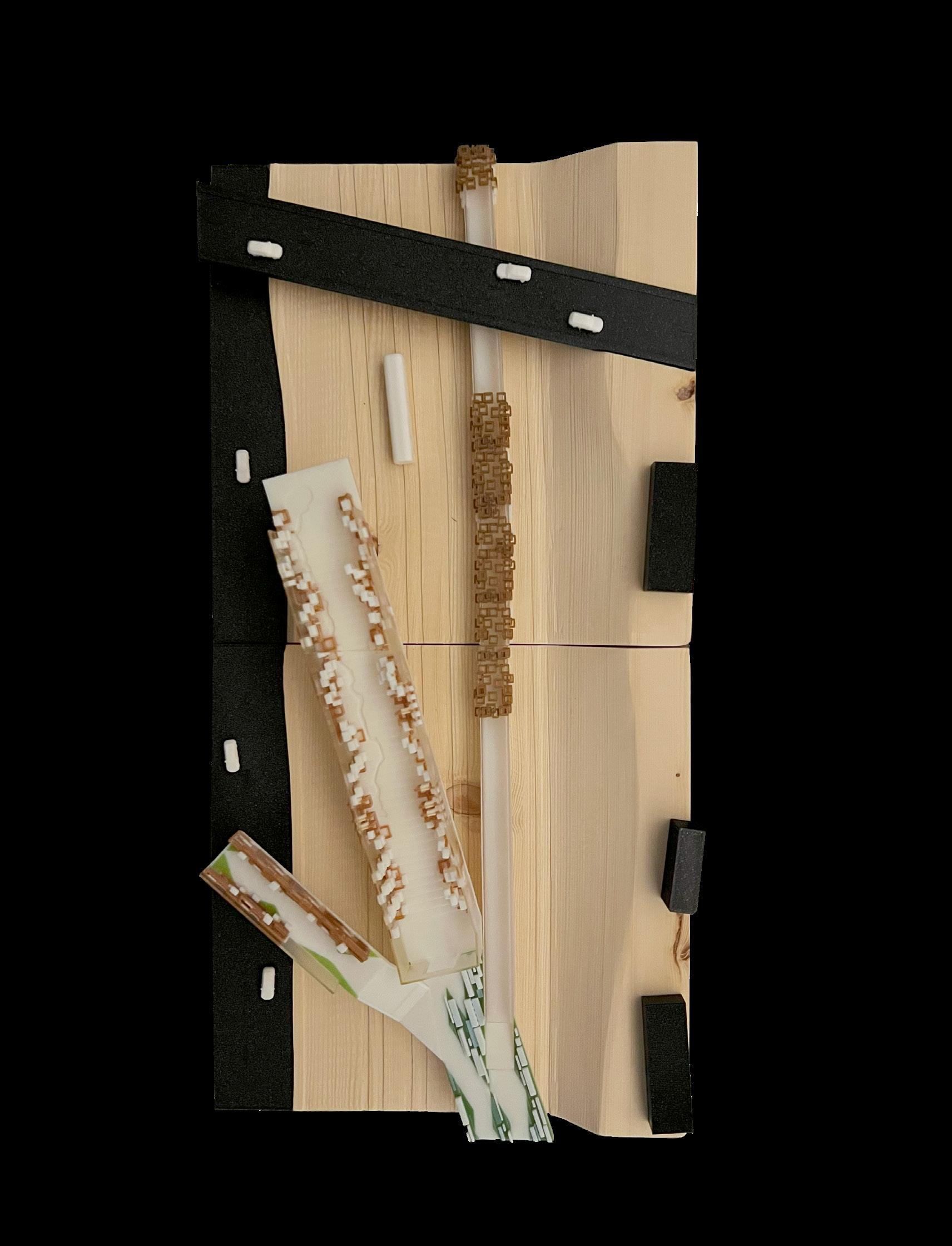
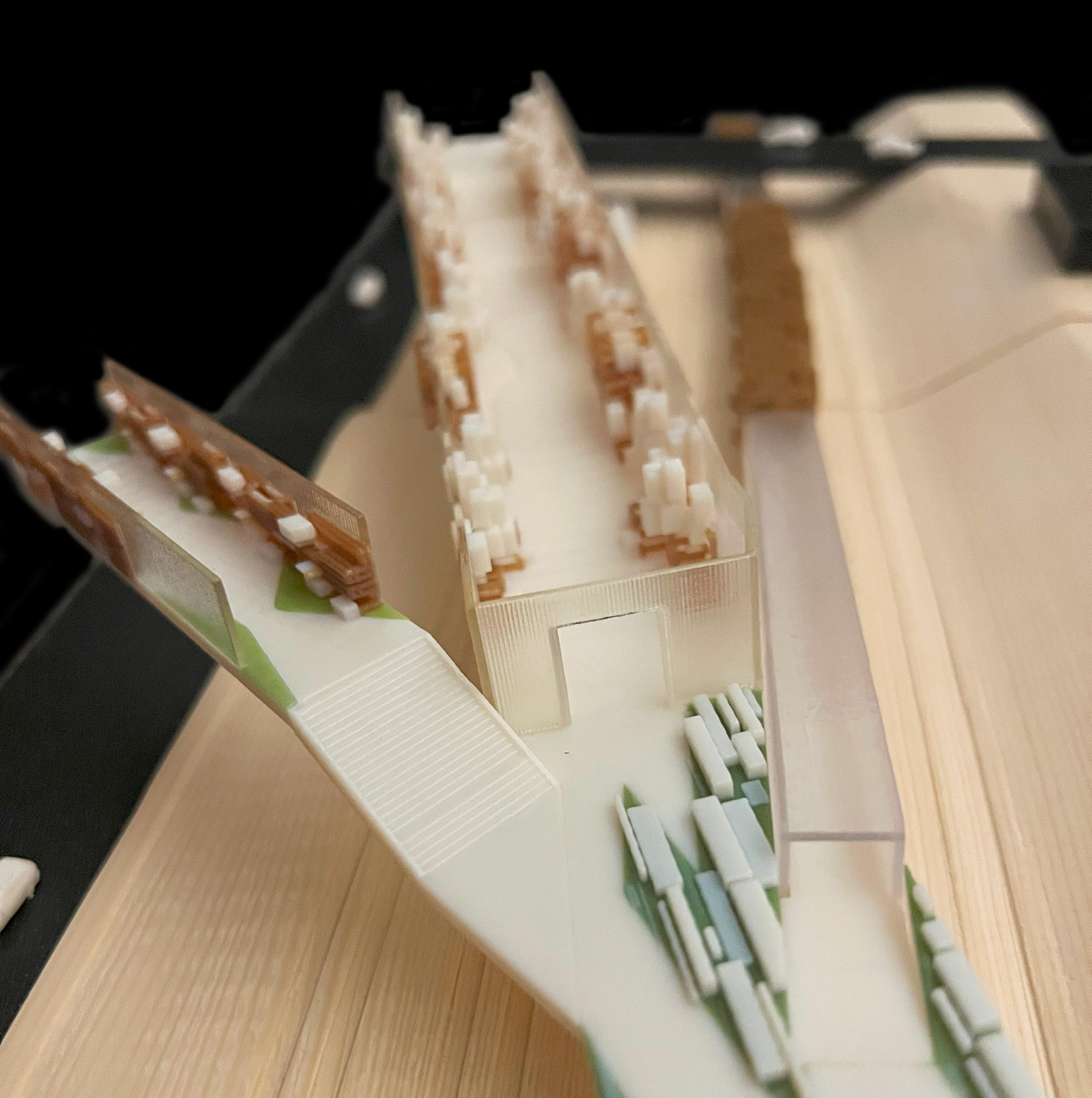
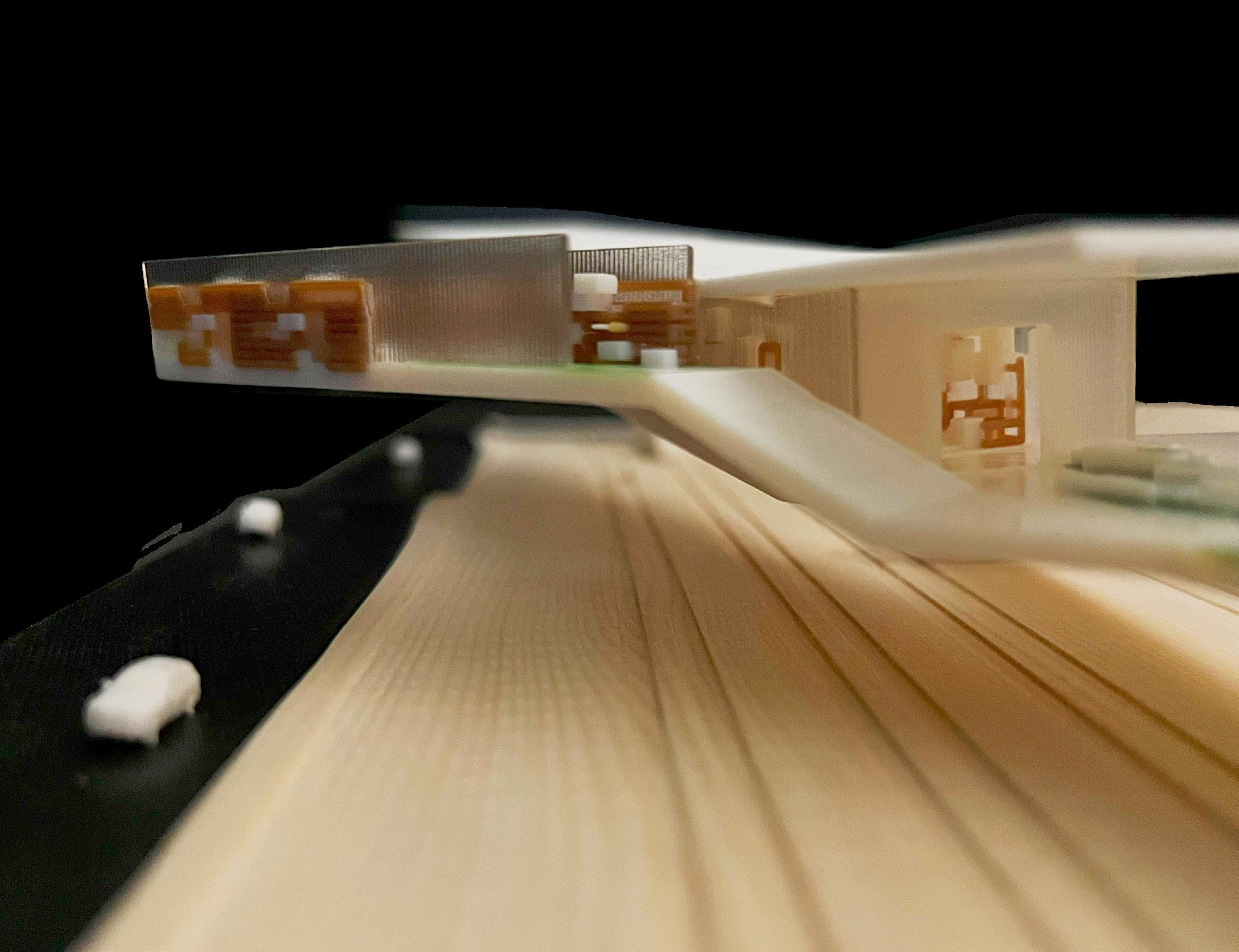
The second all-age inclusive zone consists of the:
• Social Gathering Space
• Emotional Interactive Tower
• Playground
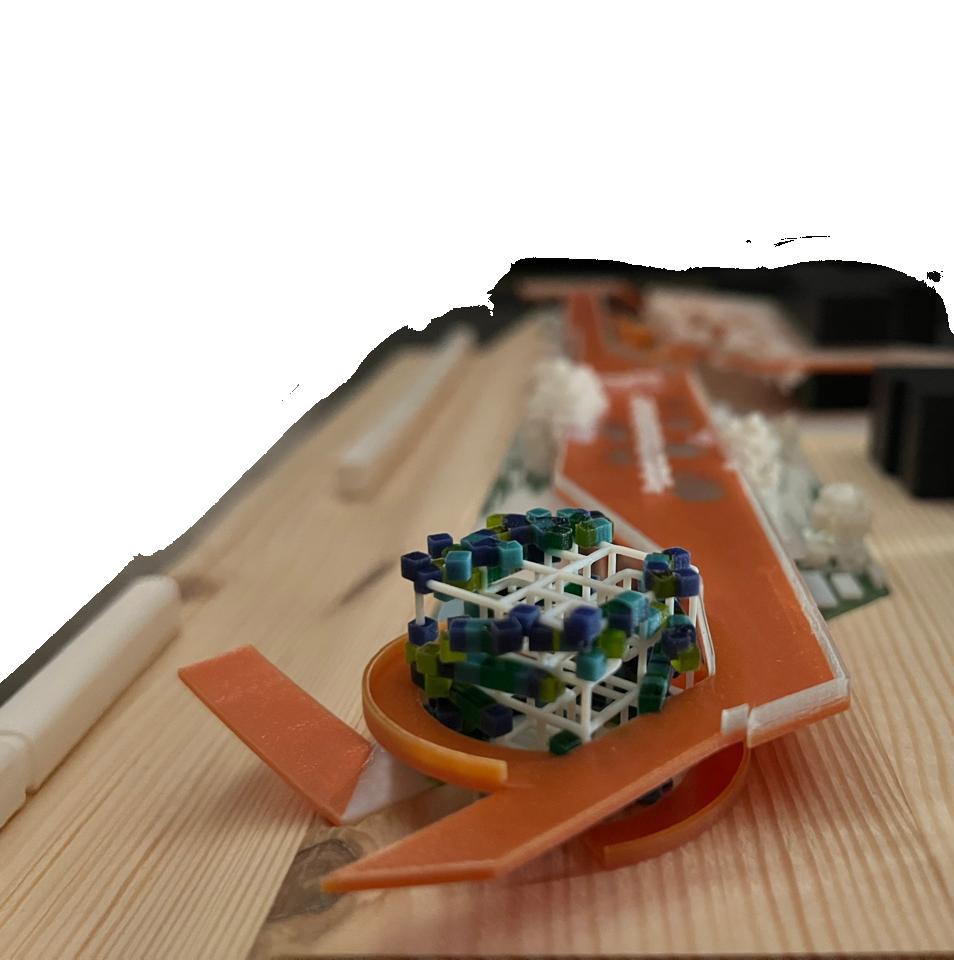
This zone is suited to all age groups due to the environmental, social, and emotional educational aspects.
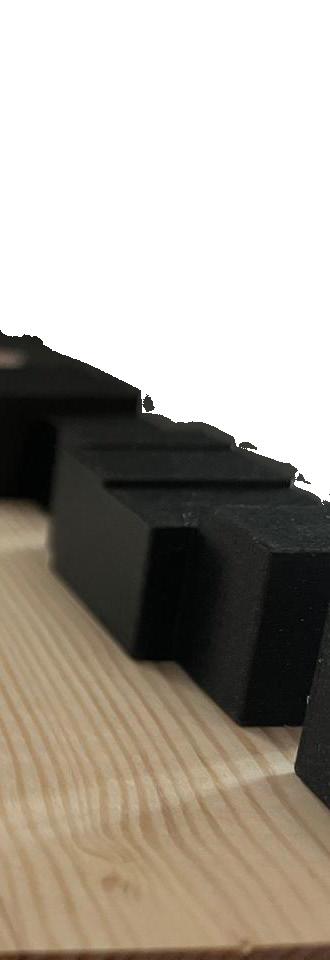
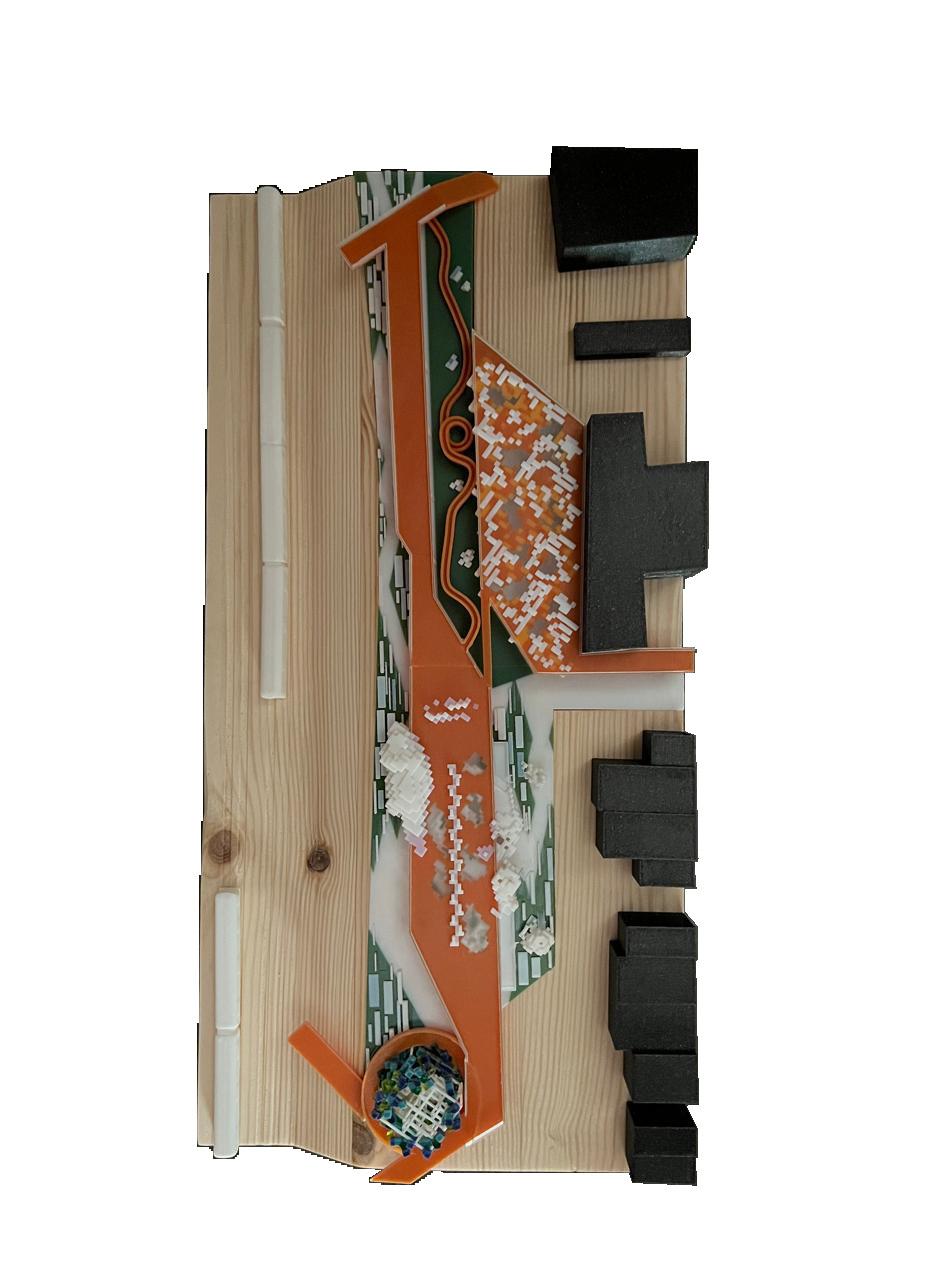

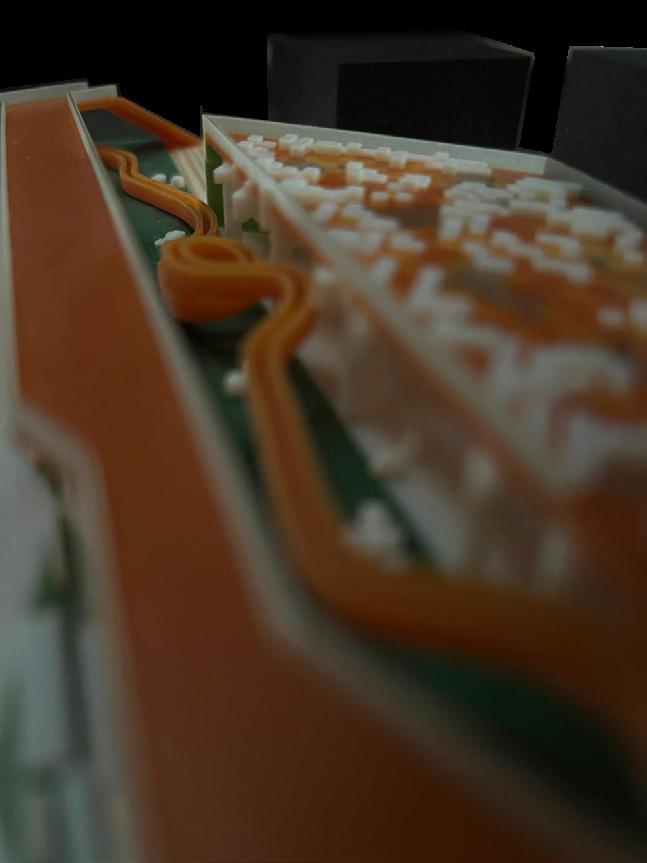
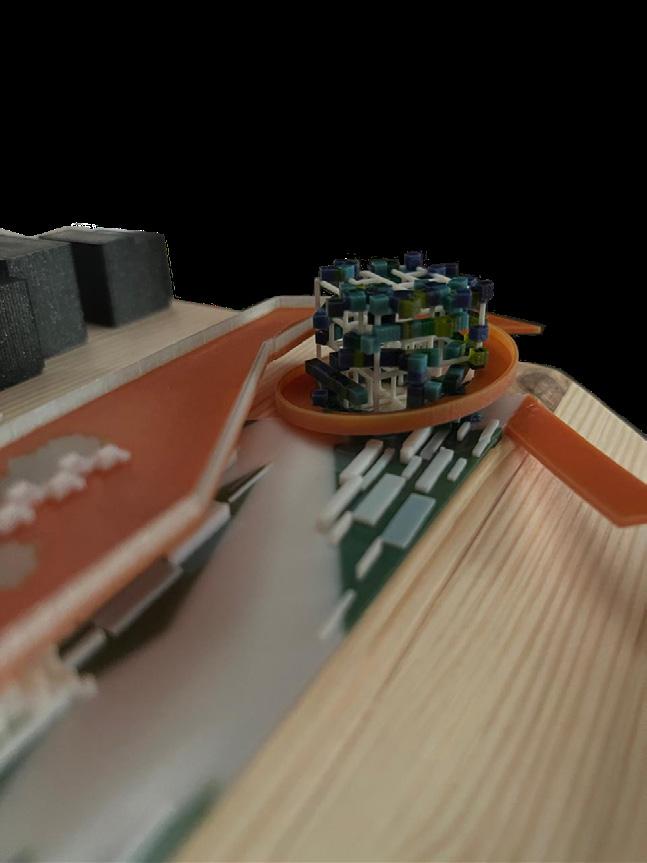
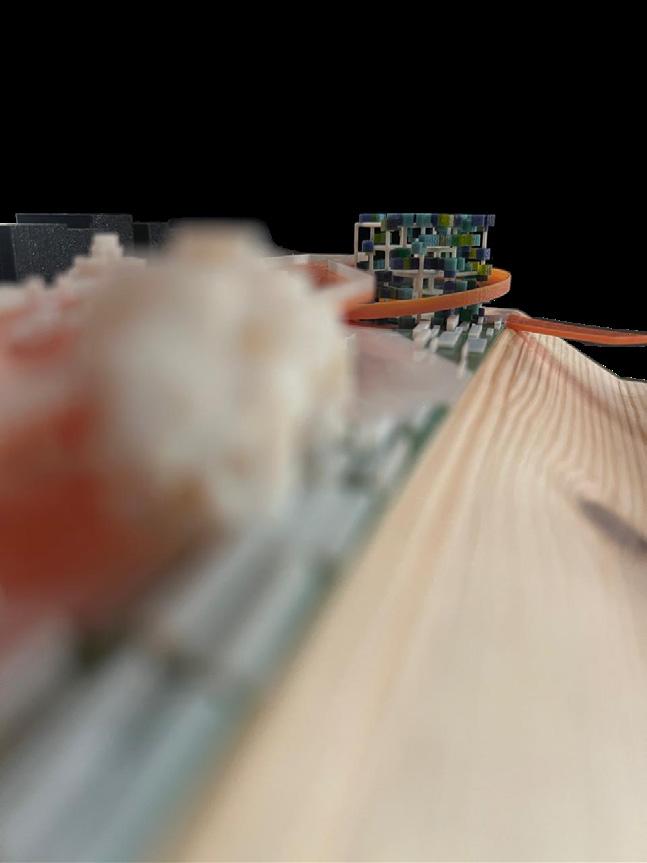
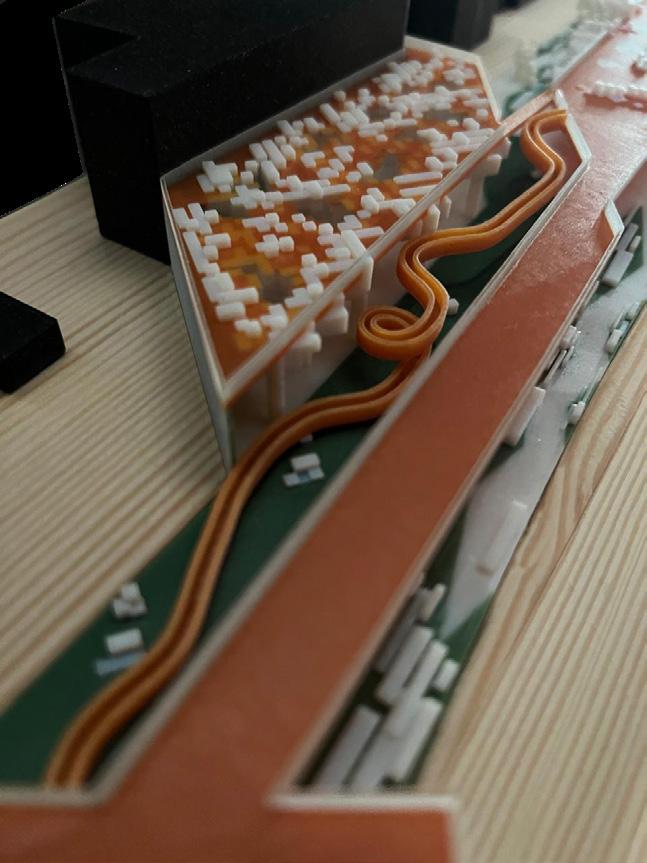
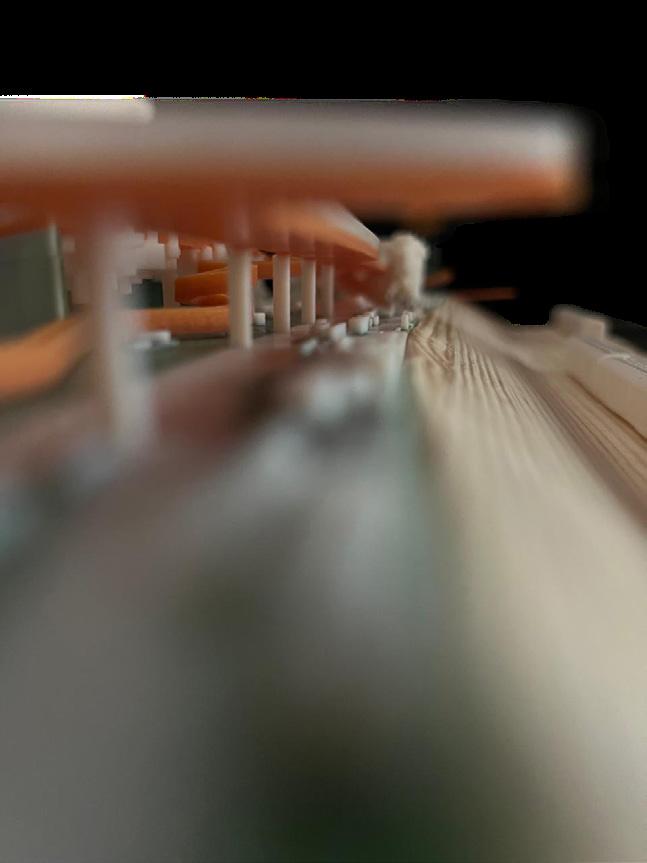
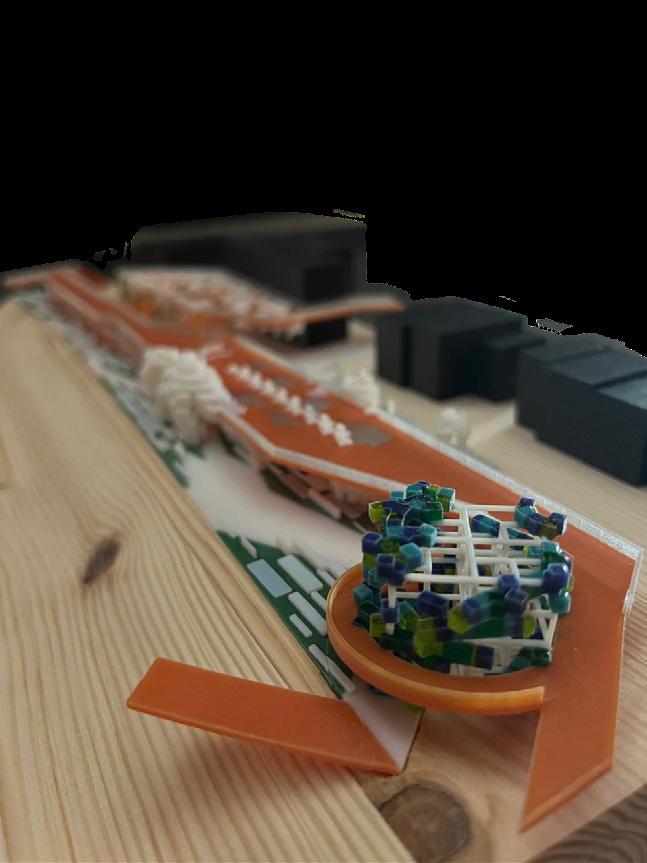
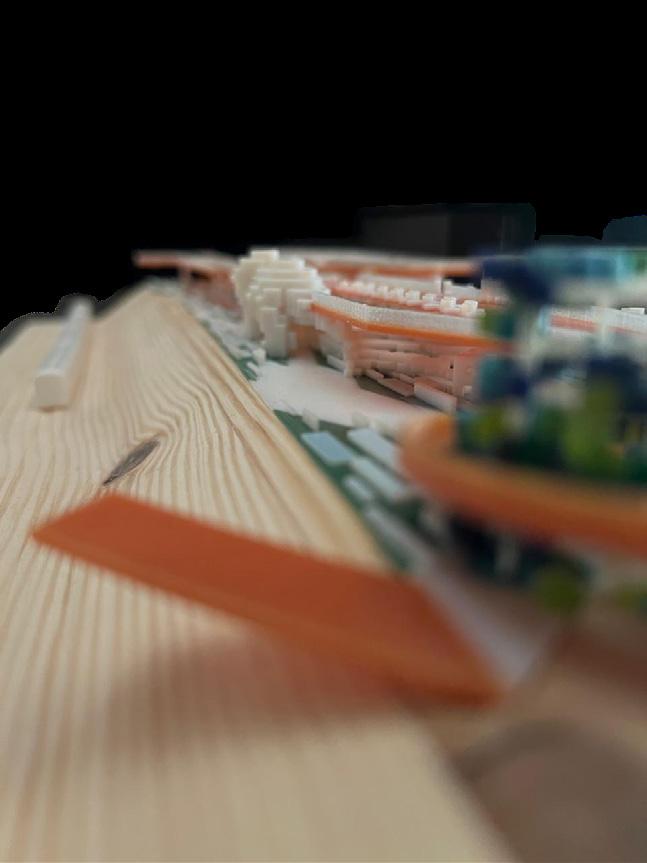
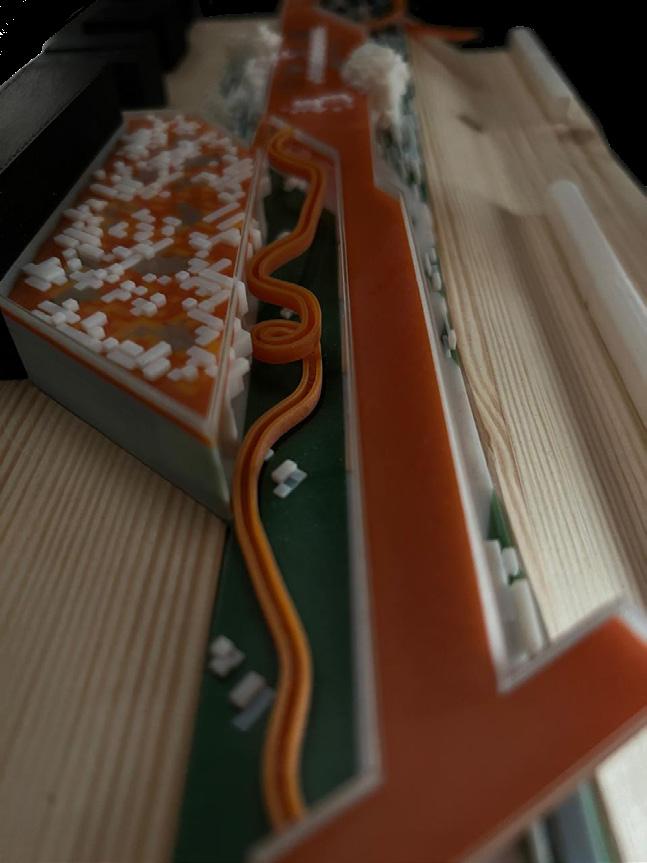
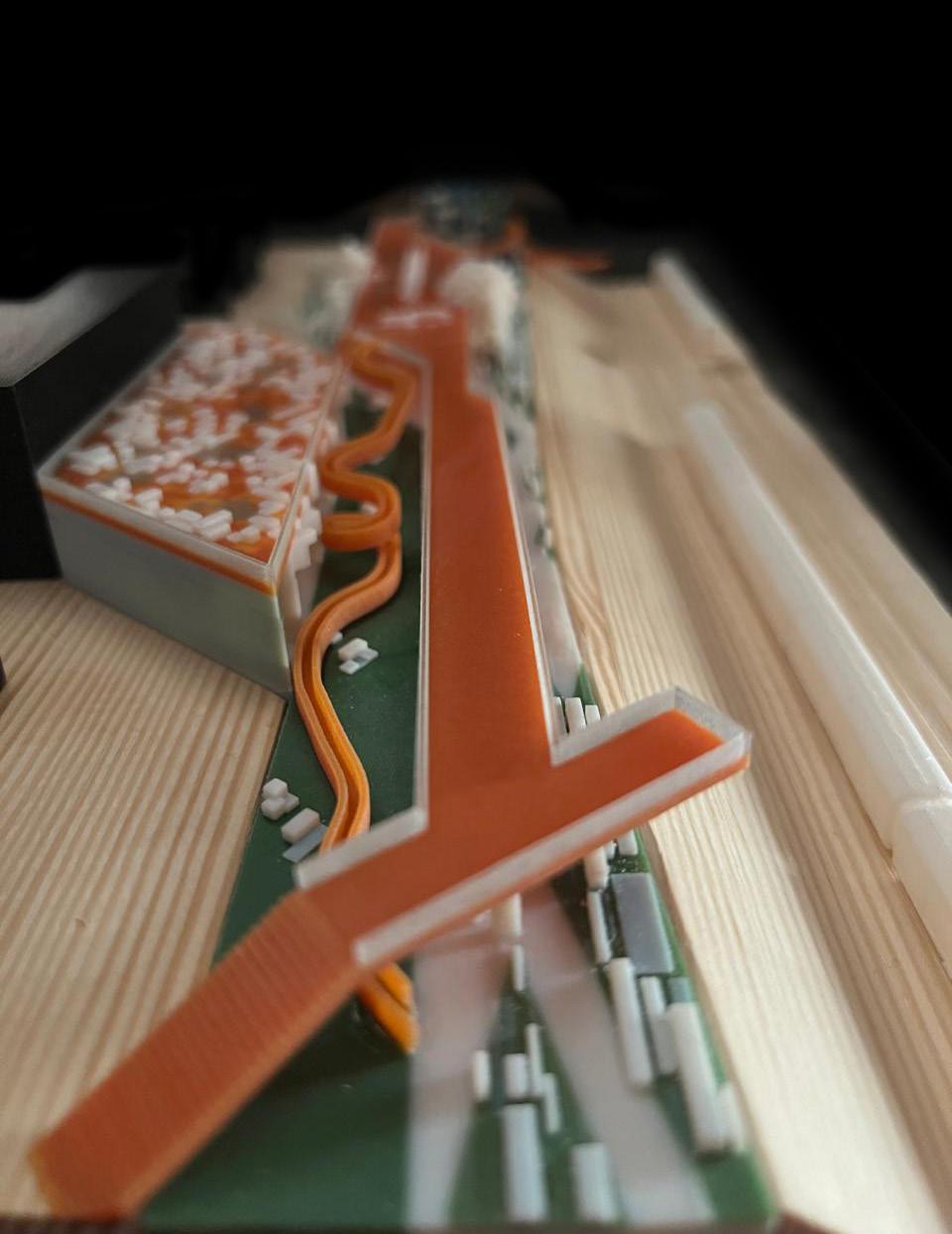
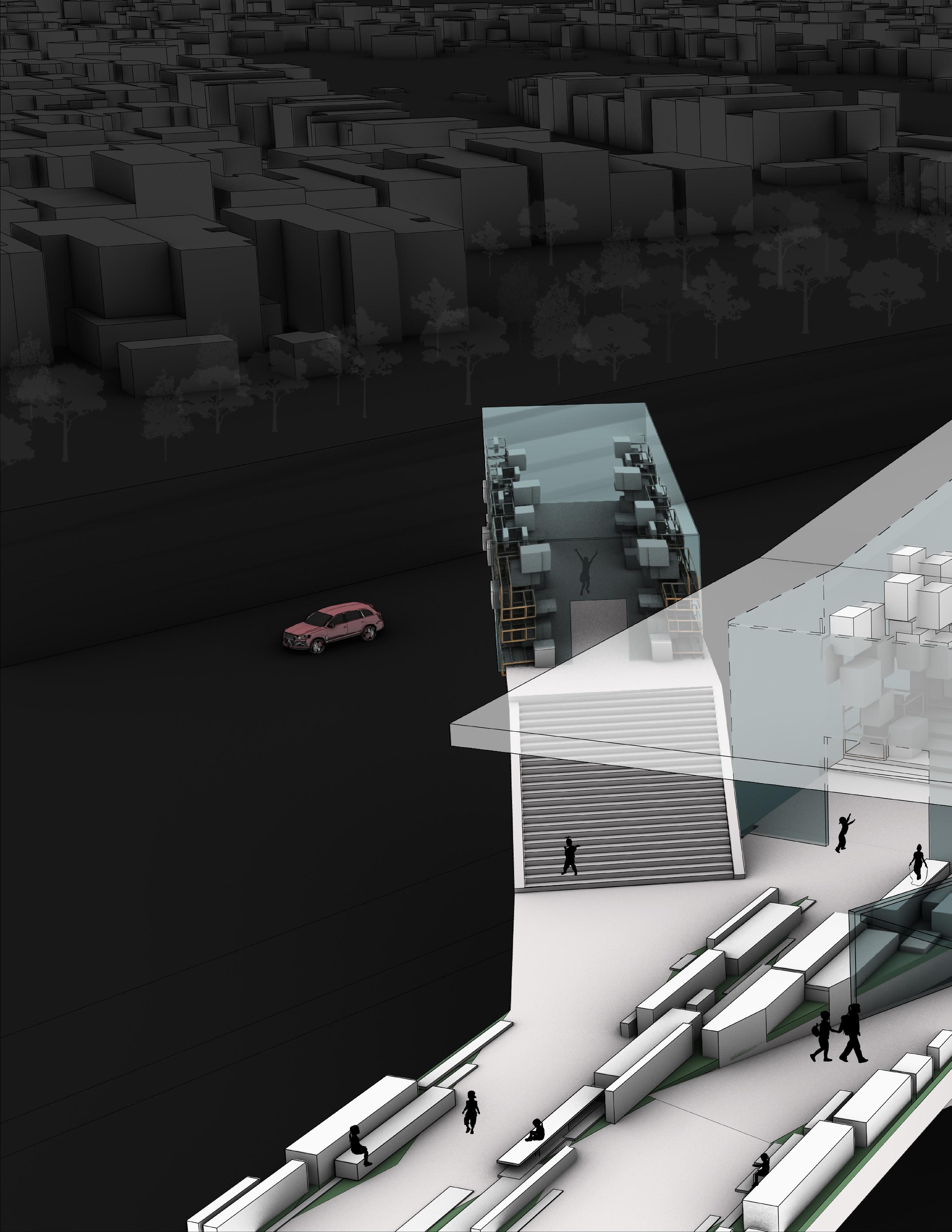
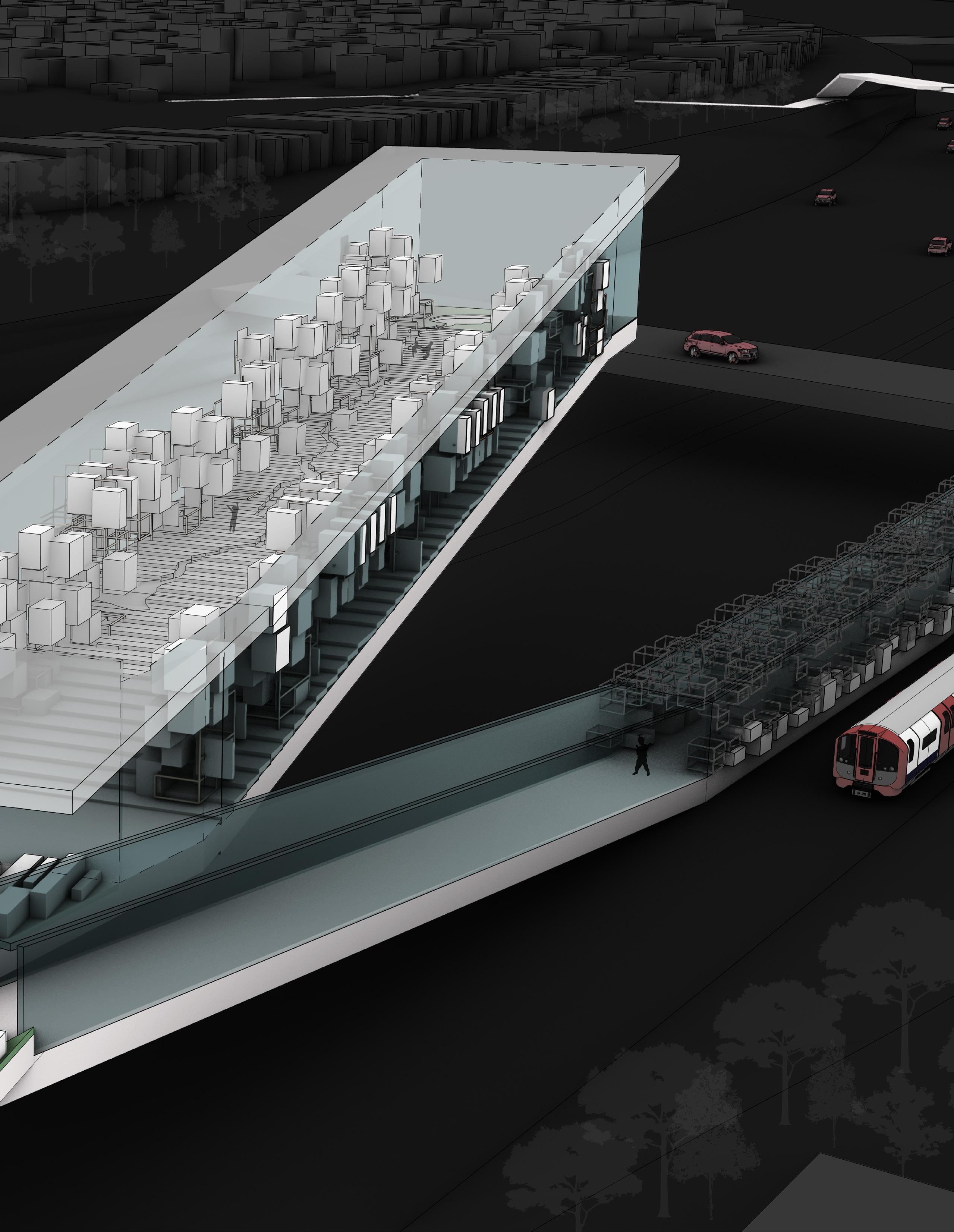
The masterplan starts off with the points from K-means Analysis, an unsupervised Machine Learning Data clustering algorithm
The points were filtered down by analyzing their proximity towards the schools in white
Integration values of the site (underlaid in red ) were to give a sense of the interconnectivity of the site within the context of the other data
1 2 3 Masterplan
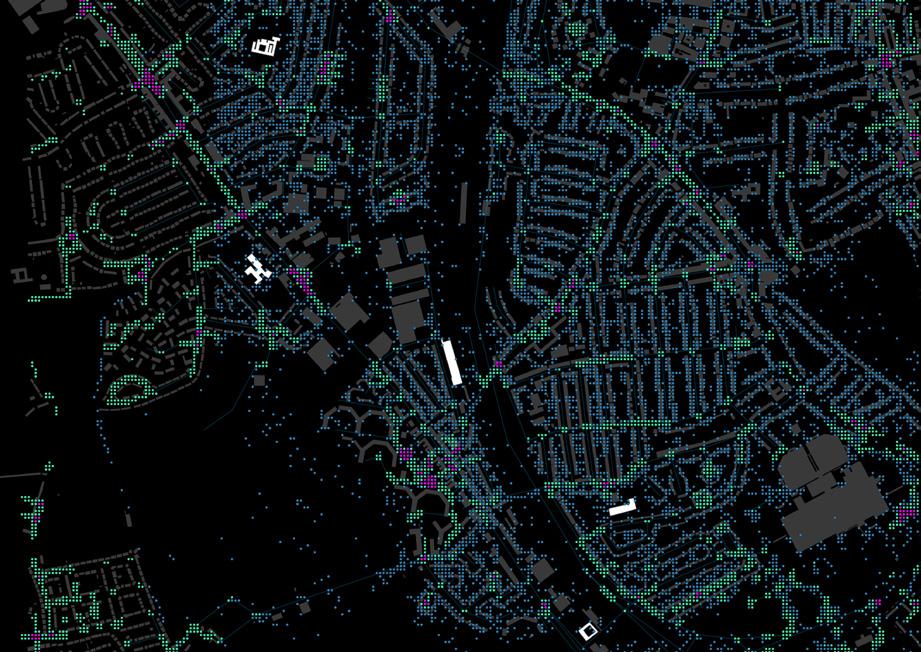

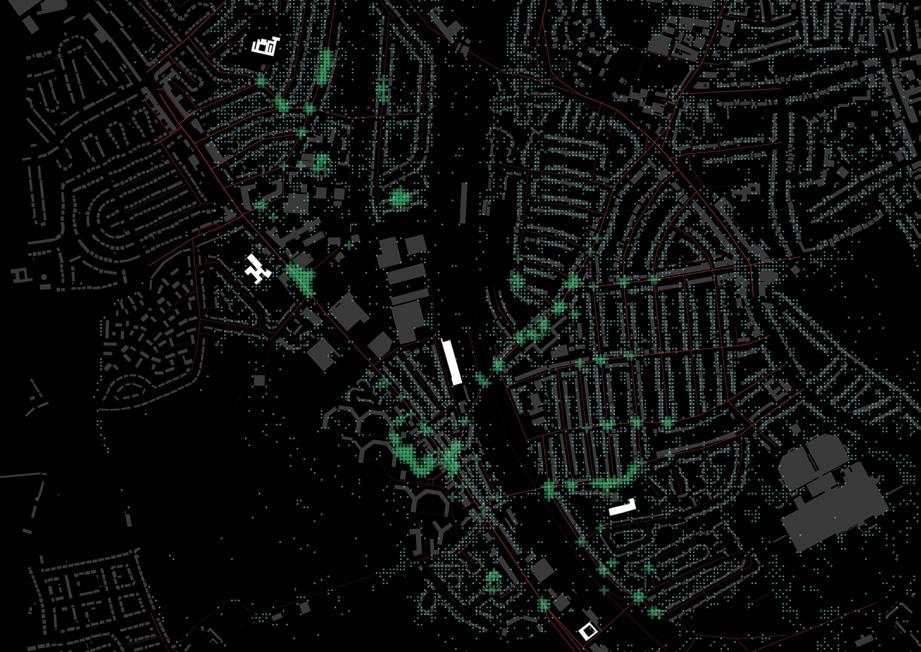
A proximity analysis was ran on a second more refined cluster of points from the K-Means analysis (in yellow)
4
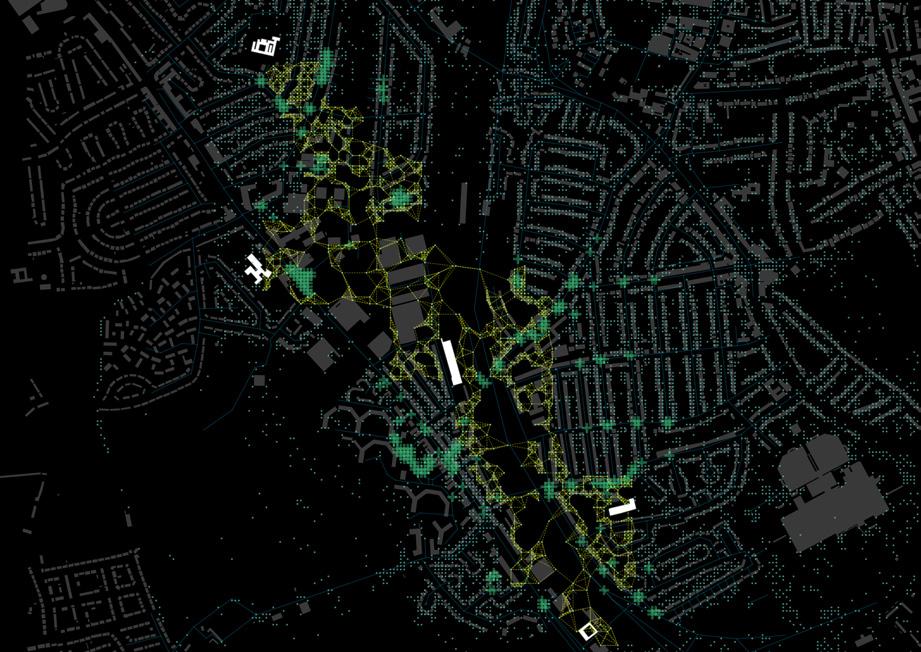
HIGH INTEGRATION & VEHICULAR MOVEMENT AT SCHOOL JUNCTION
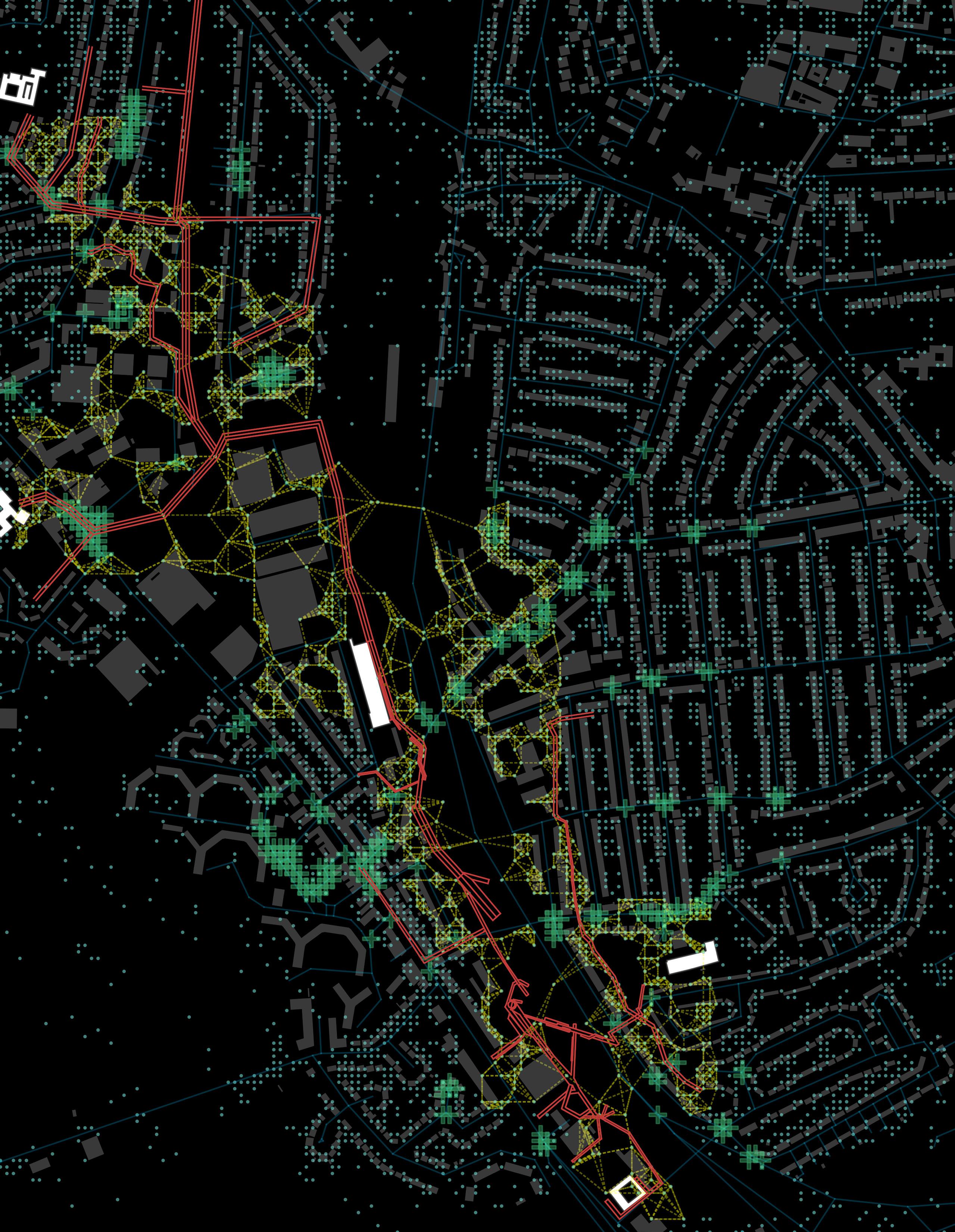
SCHOOLS SHARE 800 METER CATCHMENT AREA
COMBINATION OF HIGH INTEGRATION & MEDIUM INTEGRATION EVIDENT
NODE INTEGRATING NEIGHBORHOOD WITH RAILWAY BASIN
DATA ANALYSIS HELPED FORM THE BASIS OF THE PATH SHOWN (THICK RED LINES)
FOCUSED DESIGNED AREA
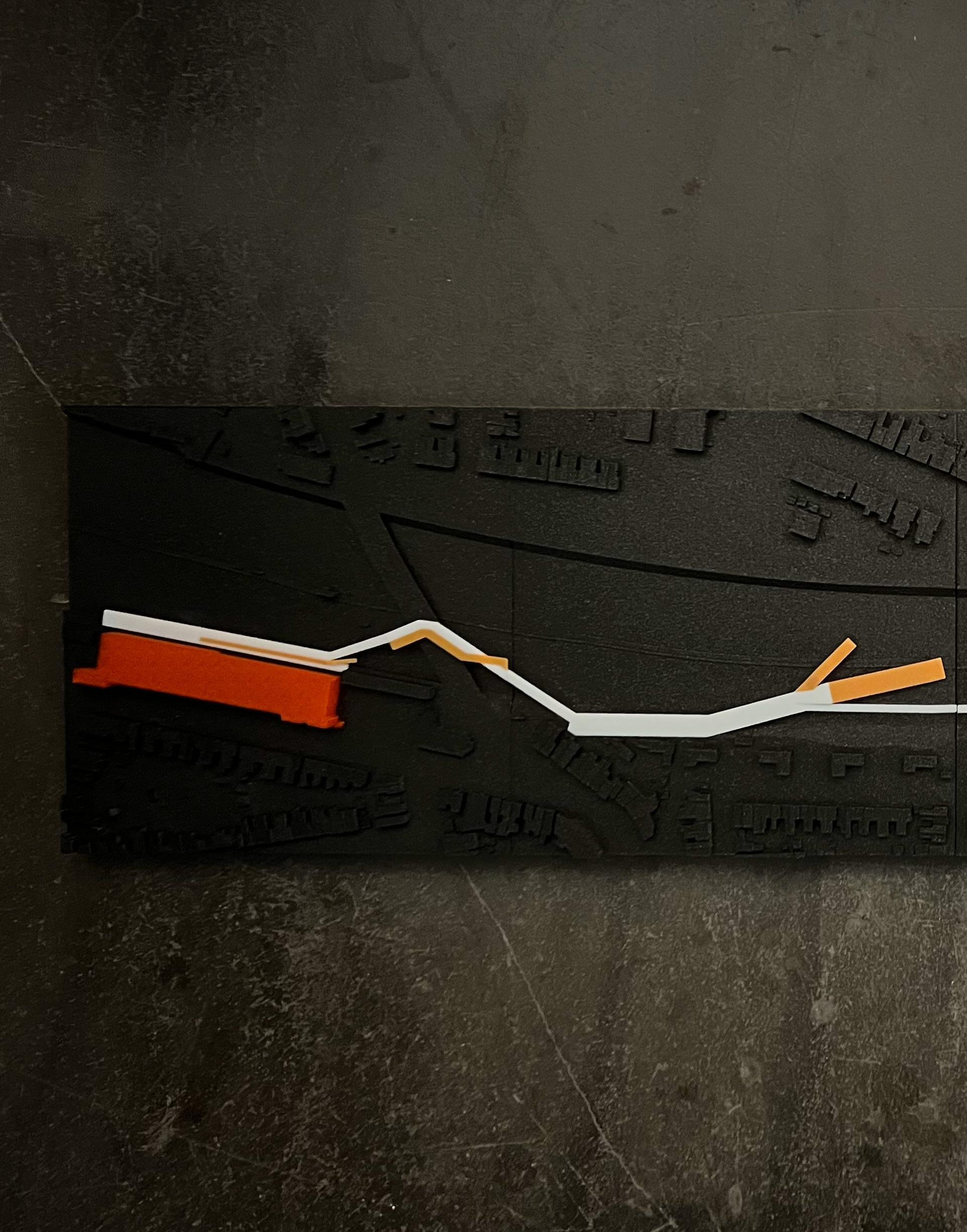

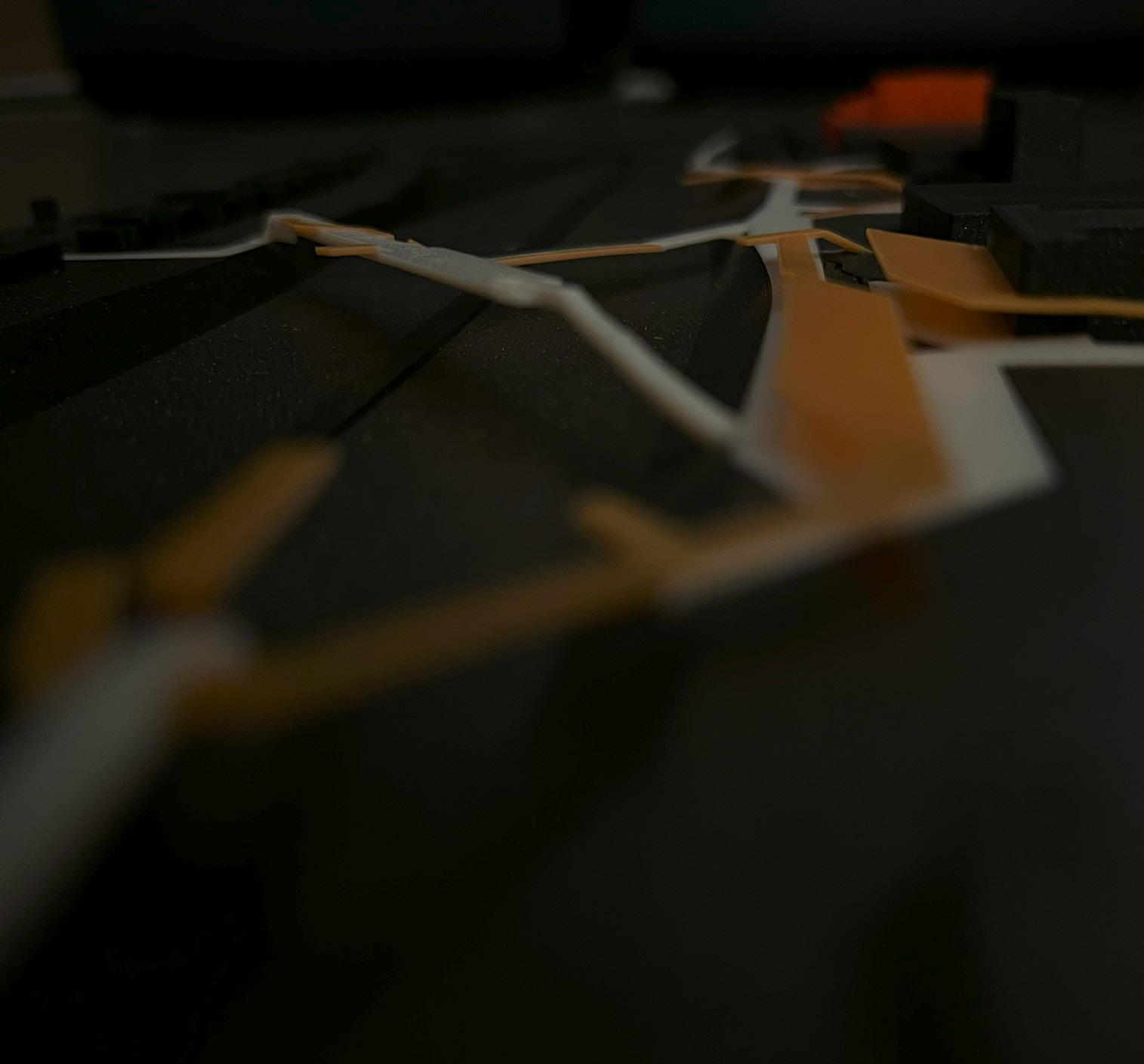
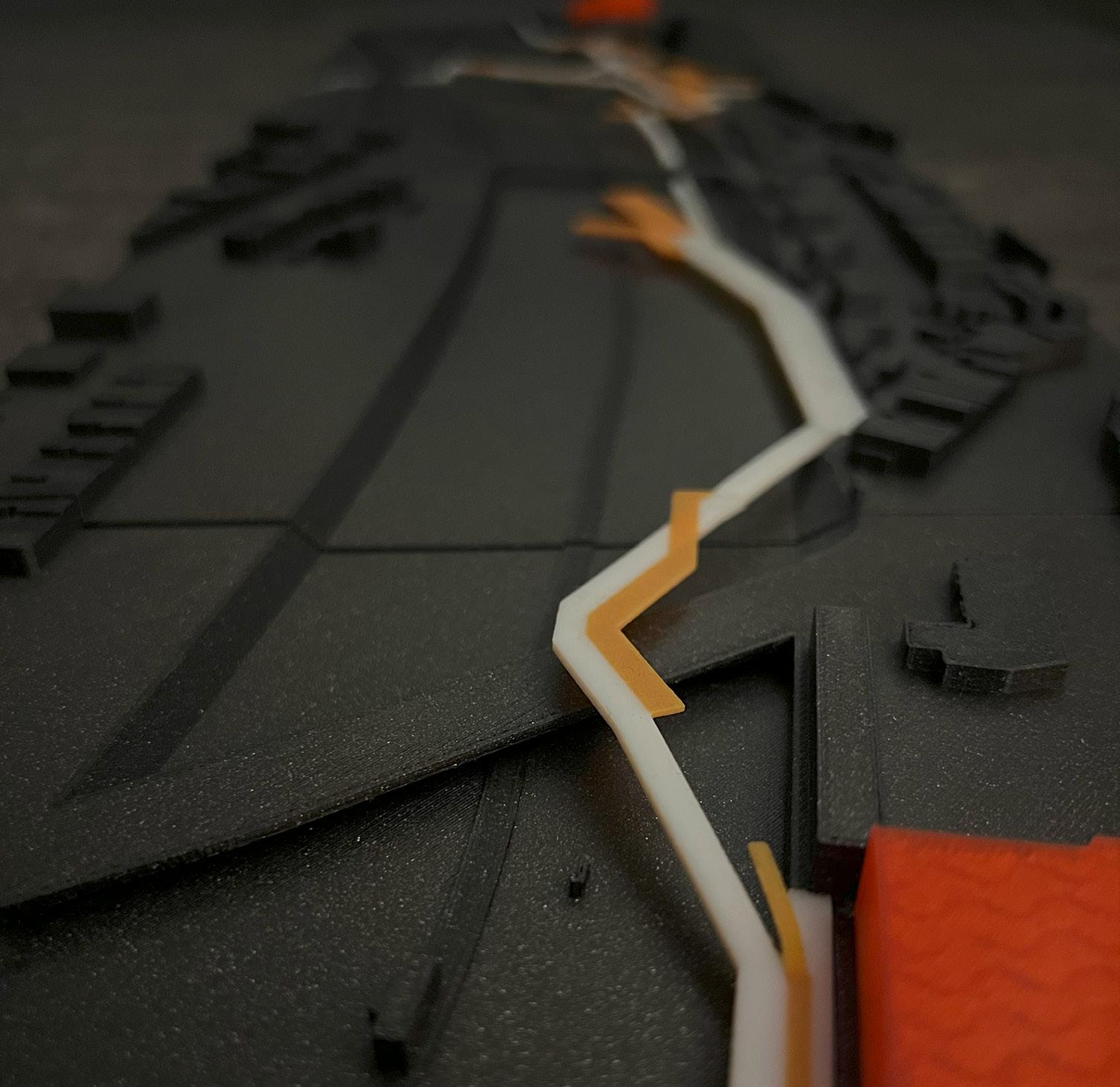

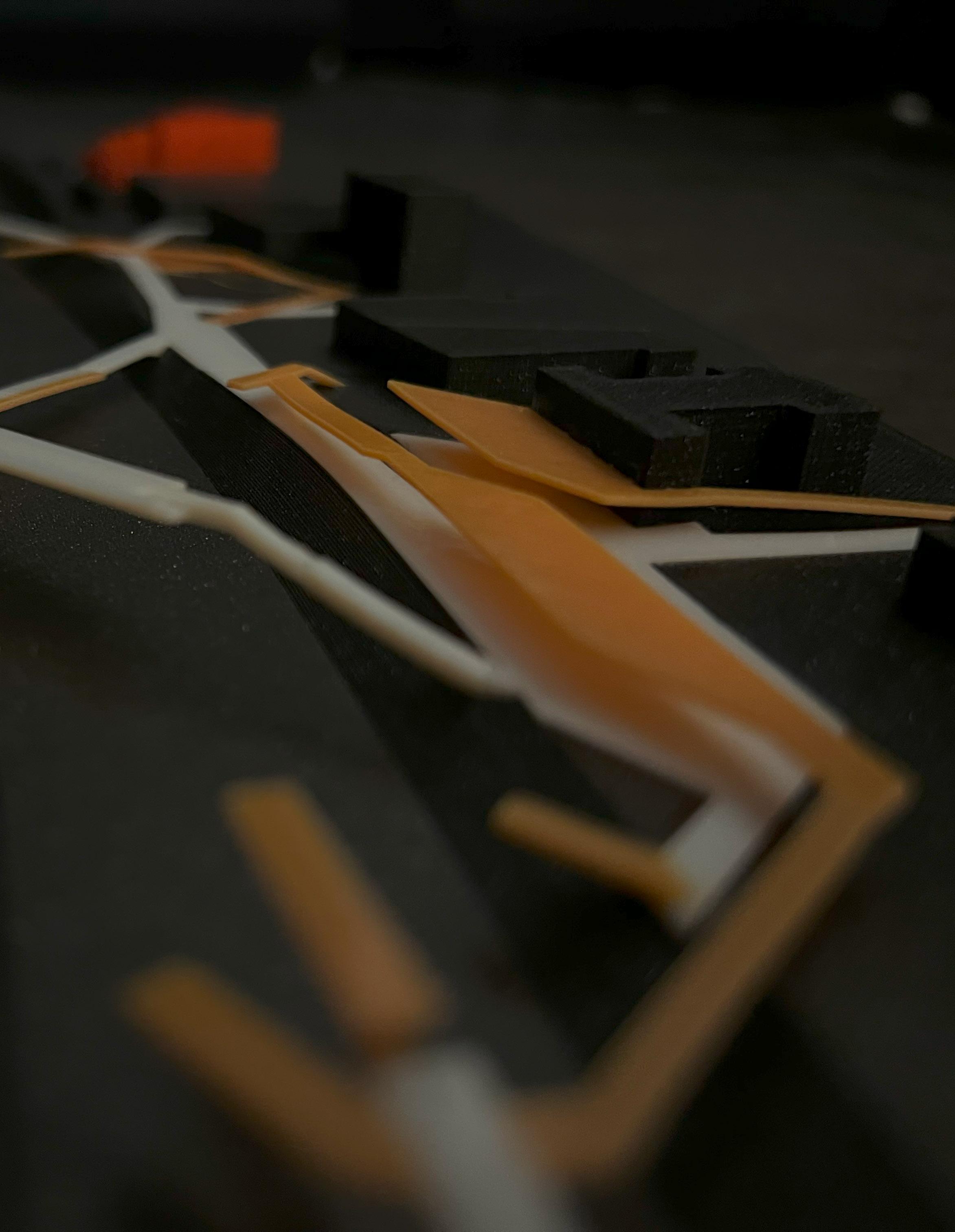
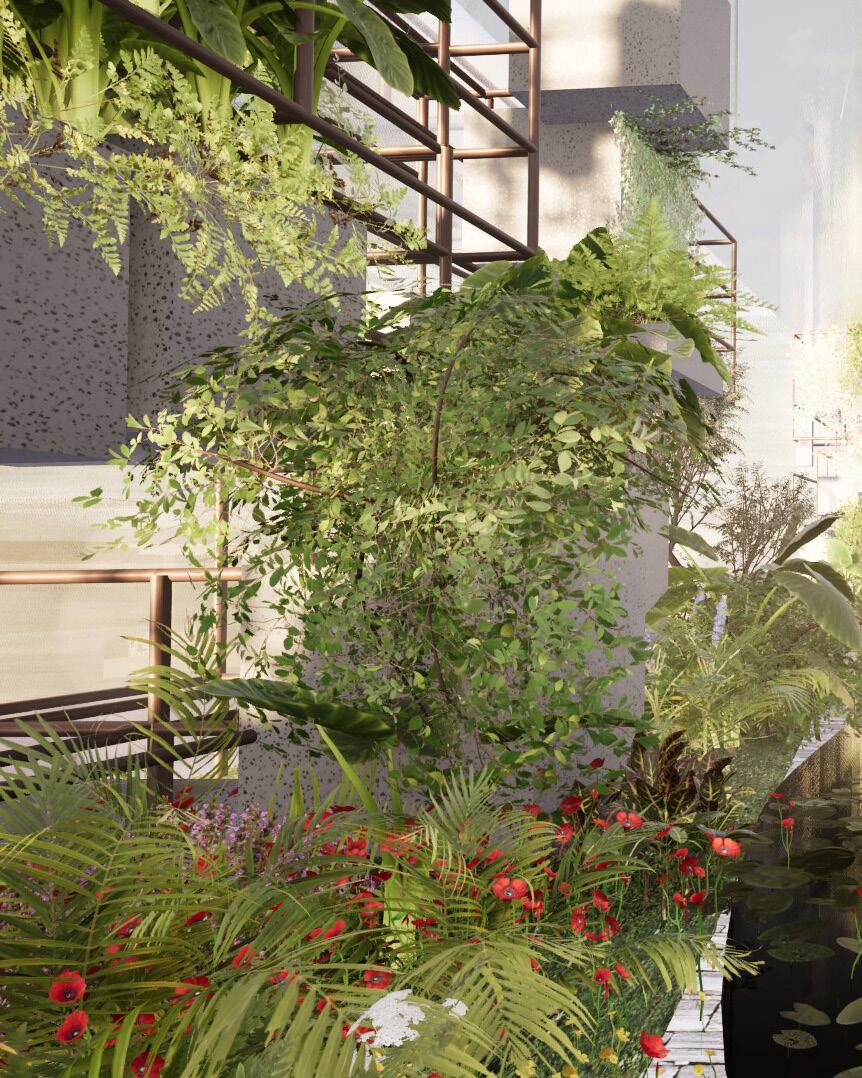
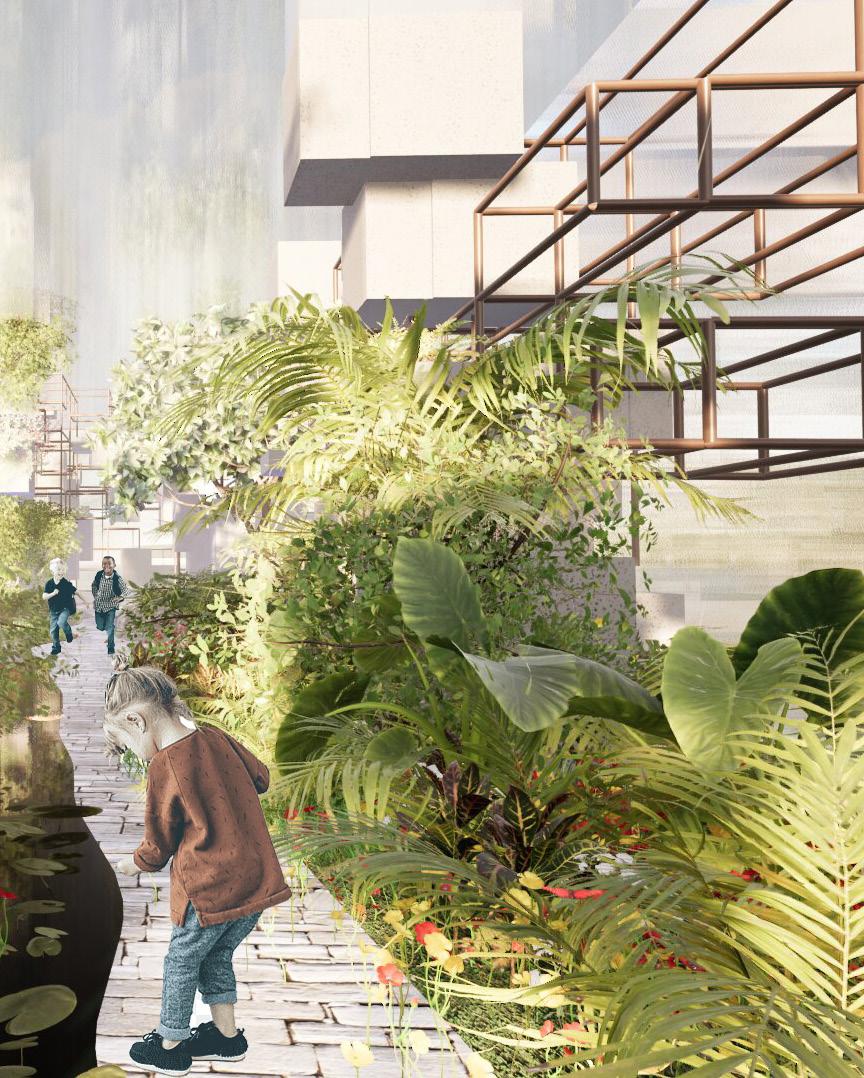
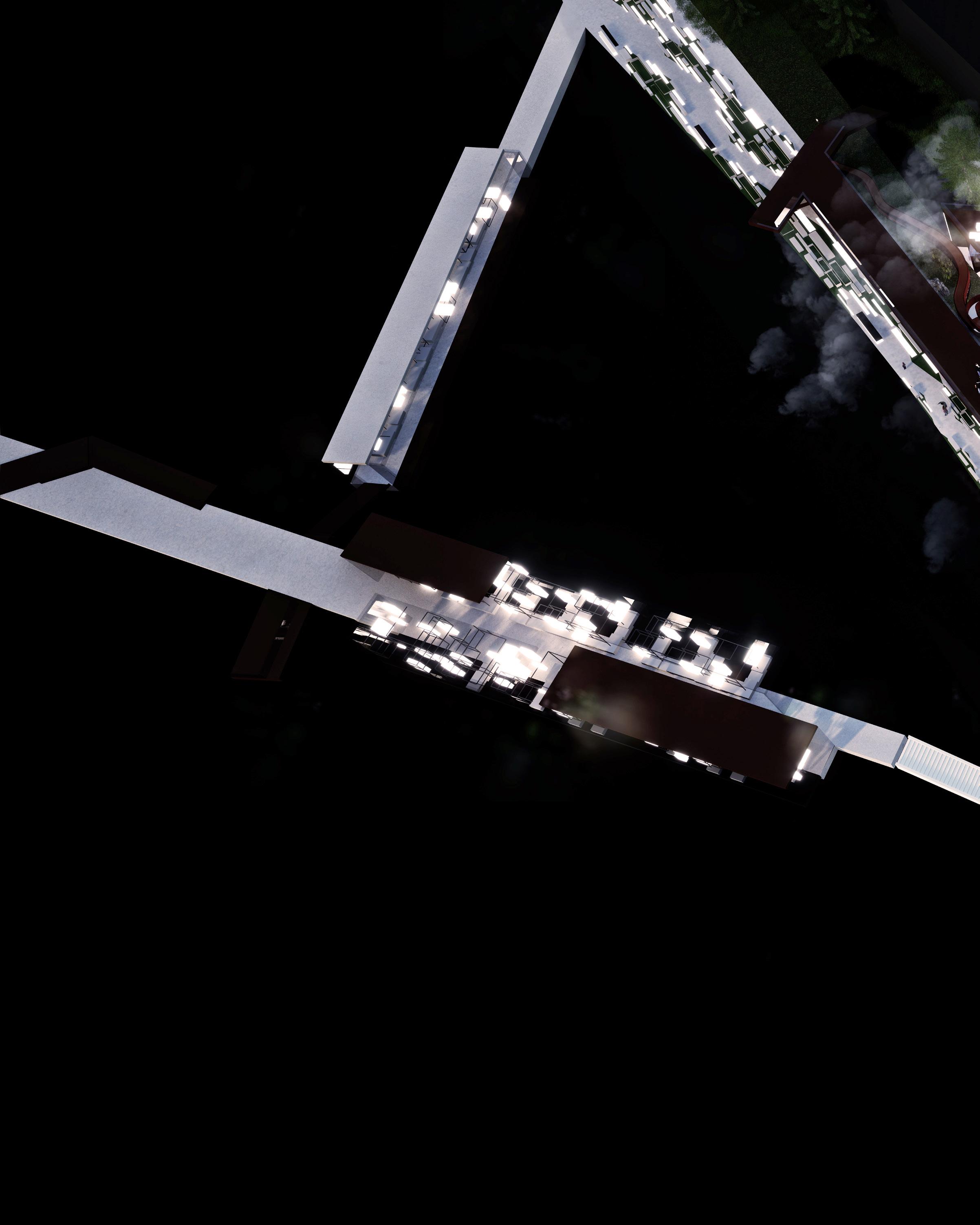

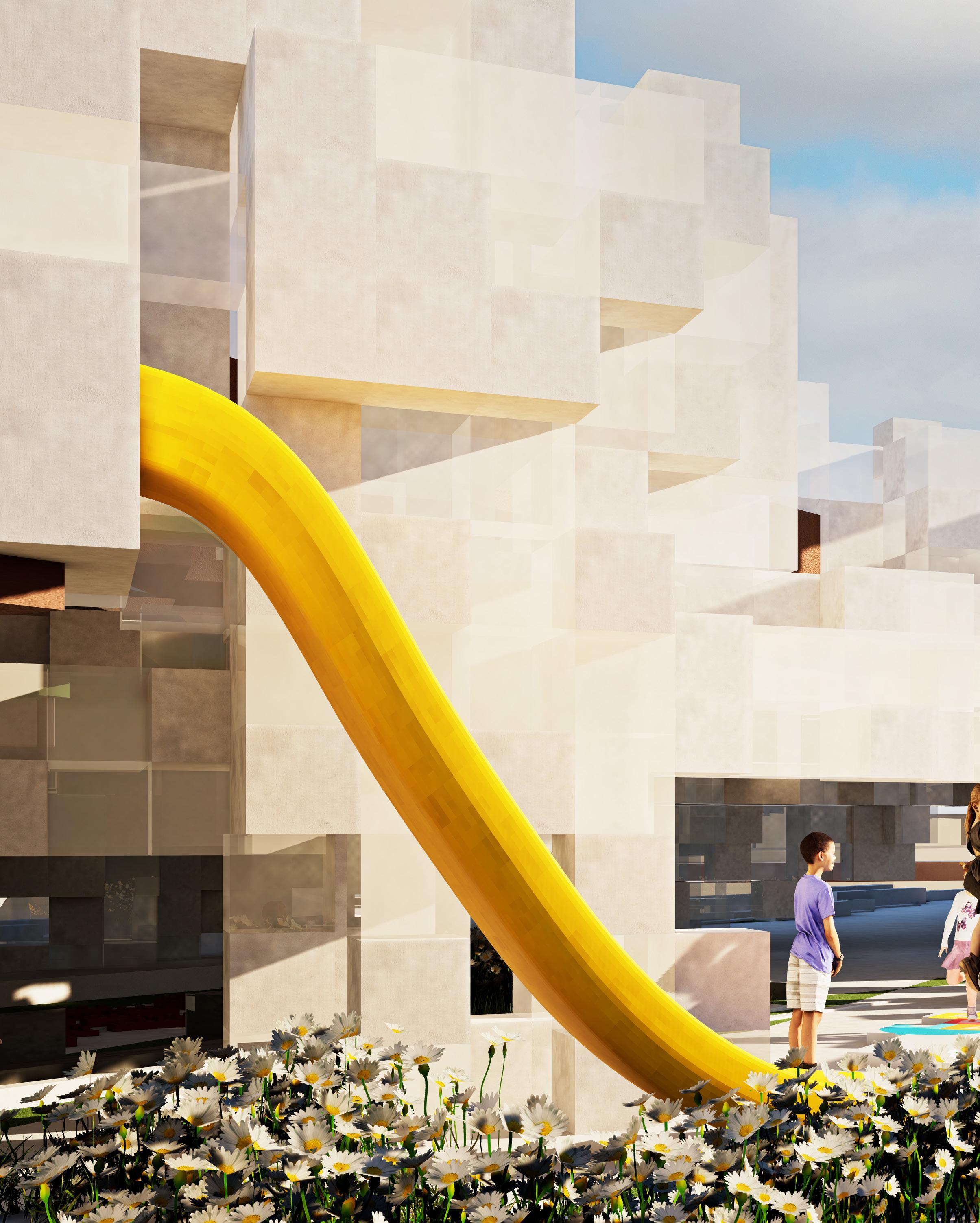
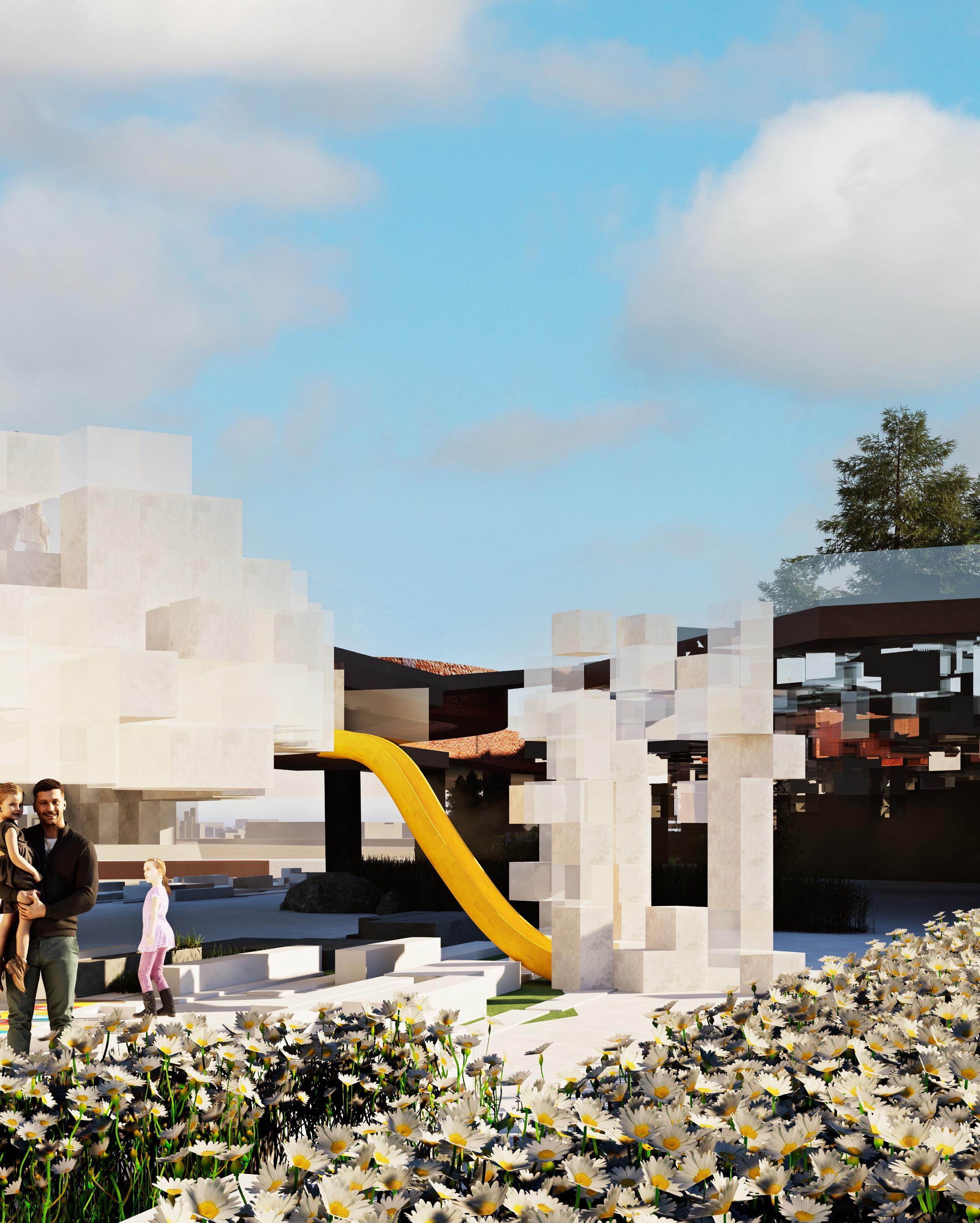
ABDULLAH HABABI
AbdullahArch18@gmail.com
Instagram: ab_archstudio